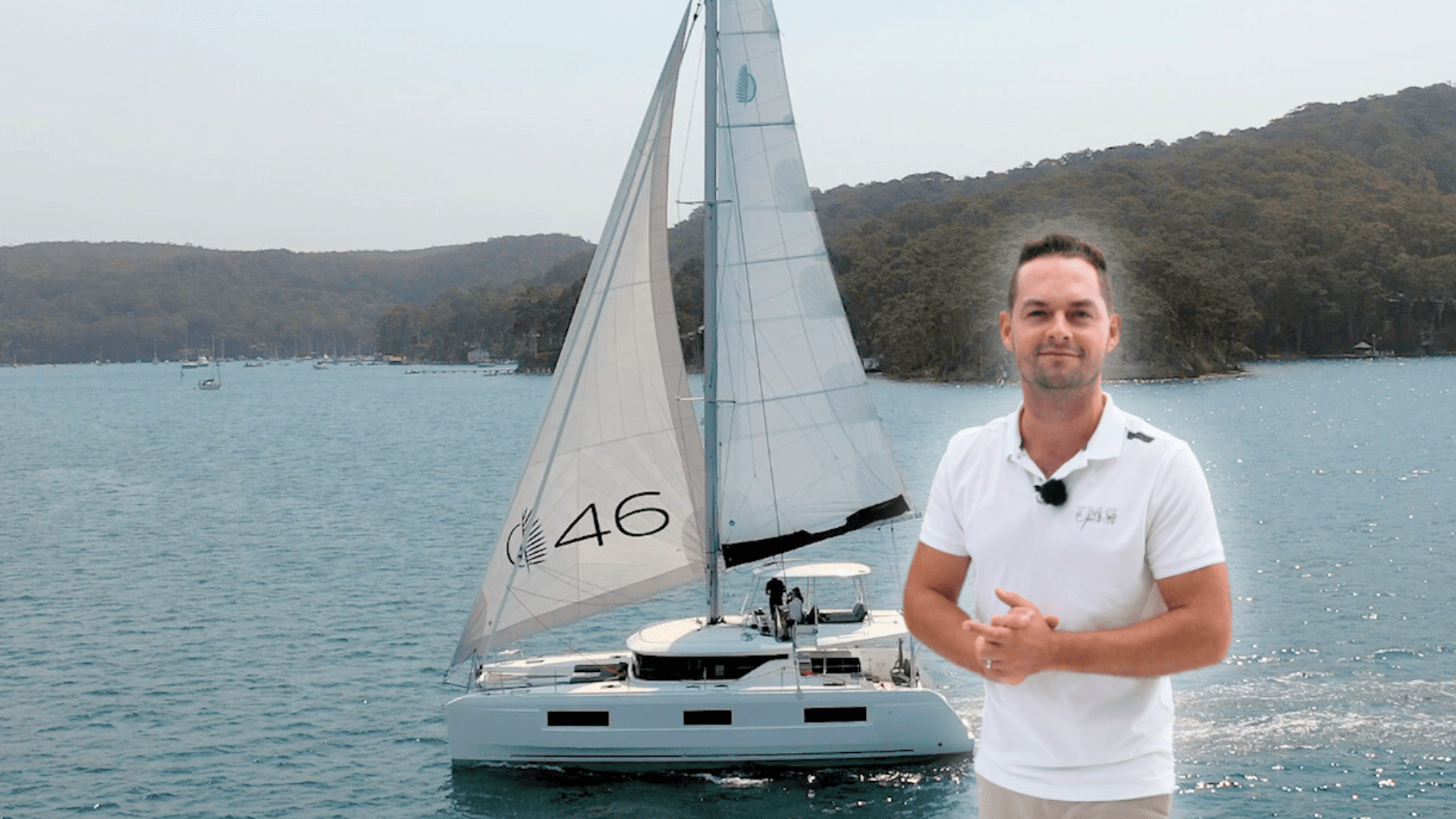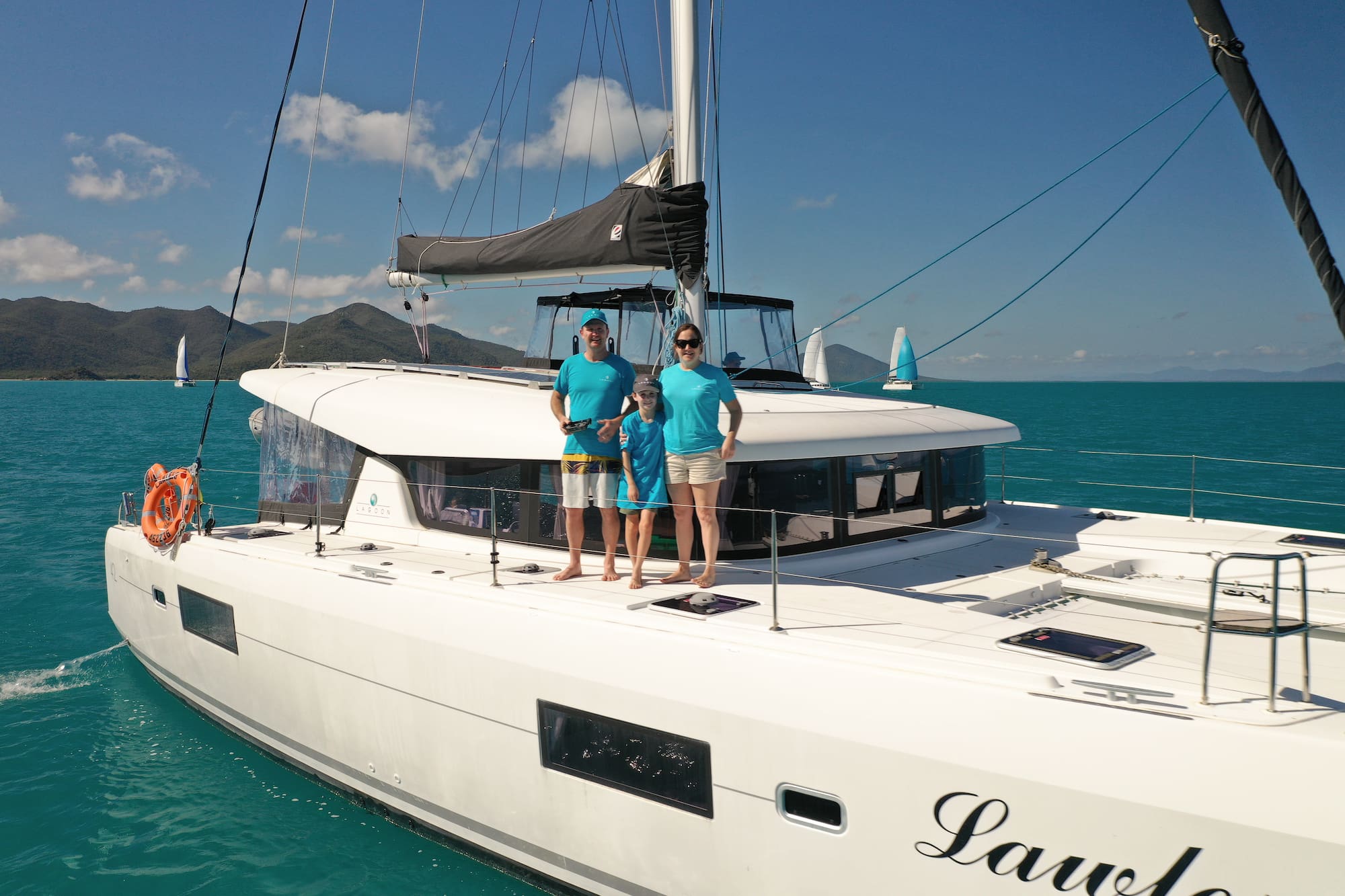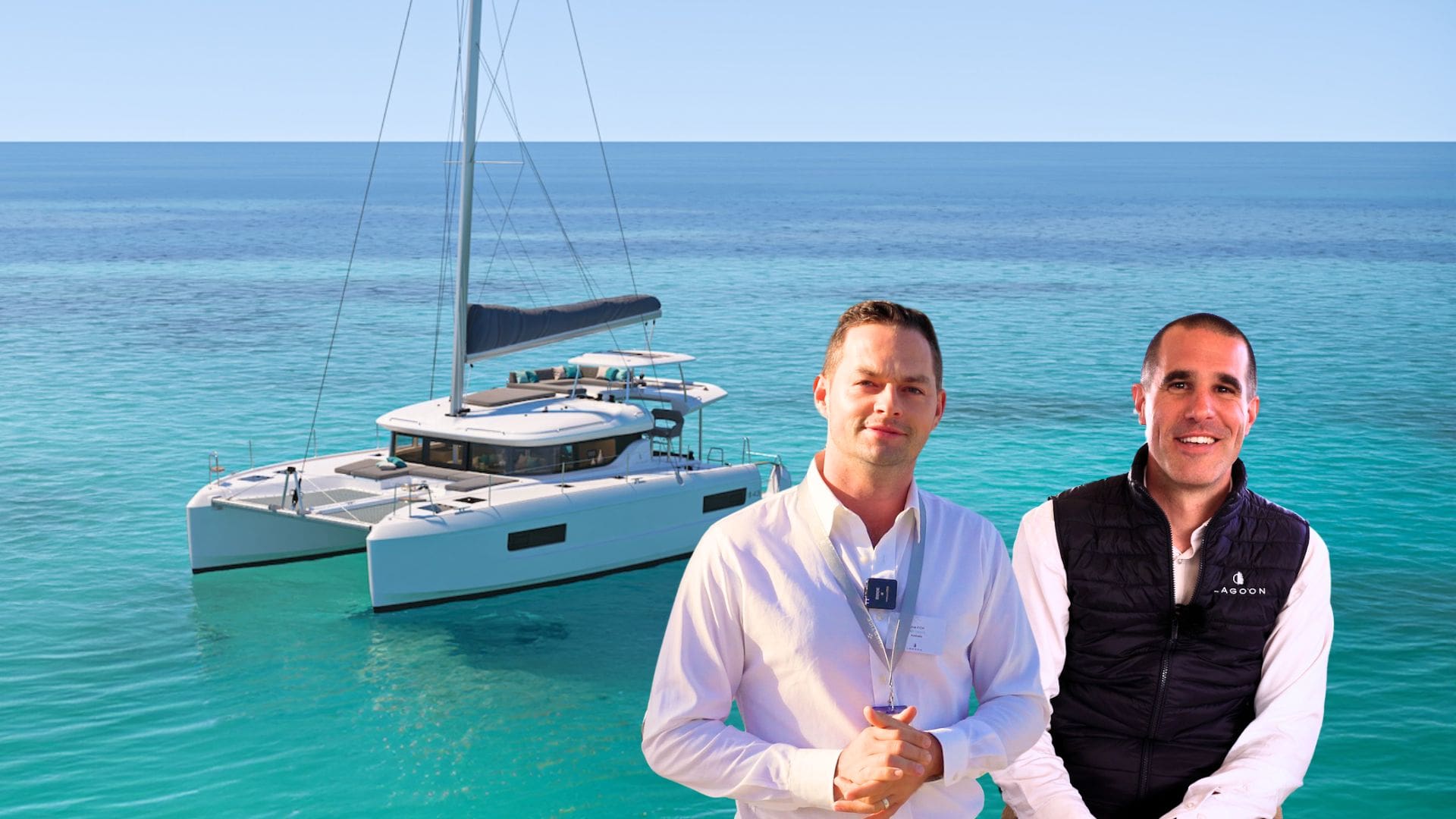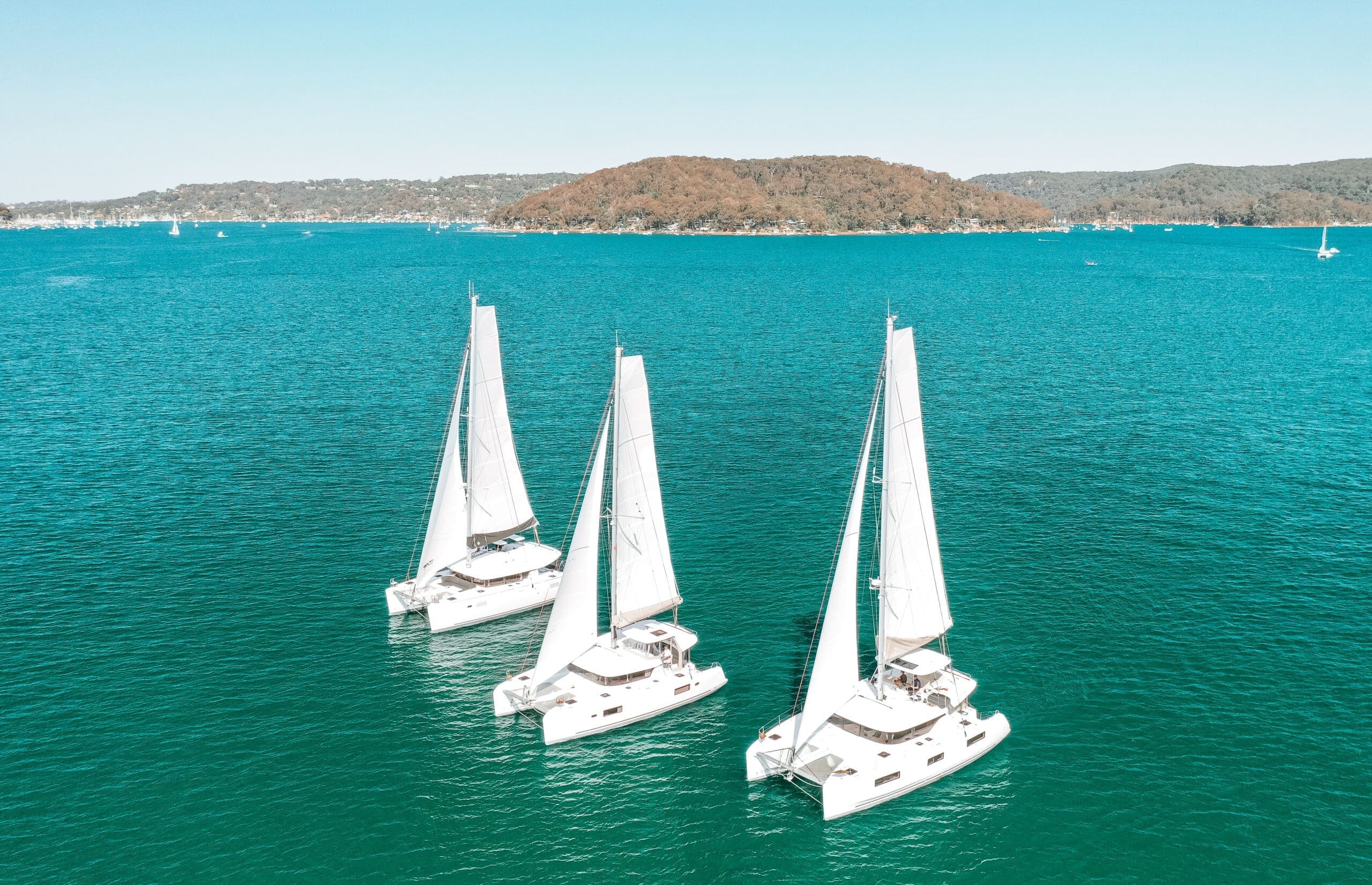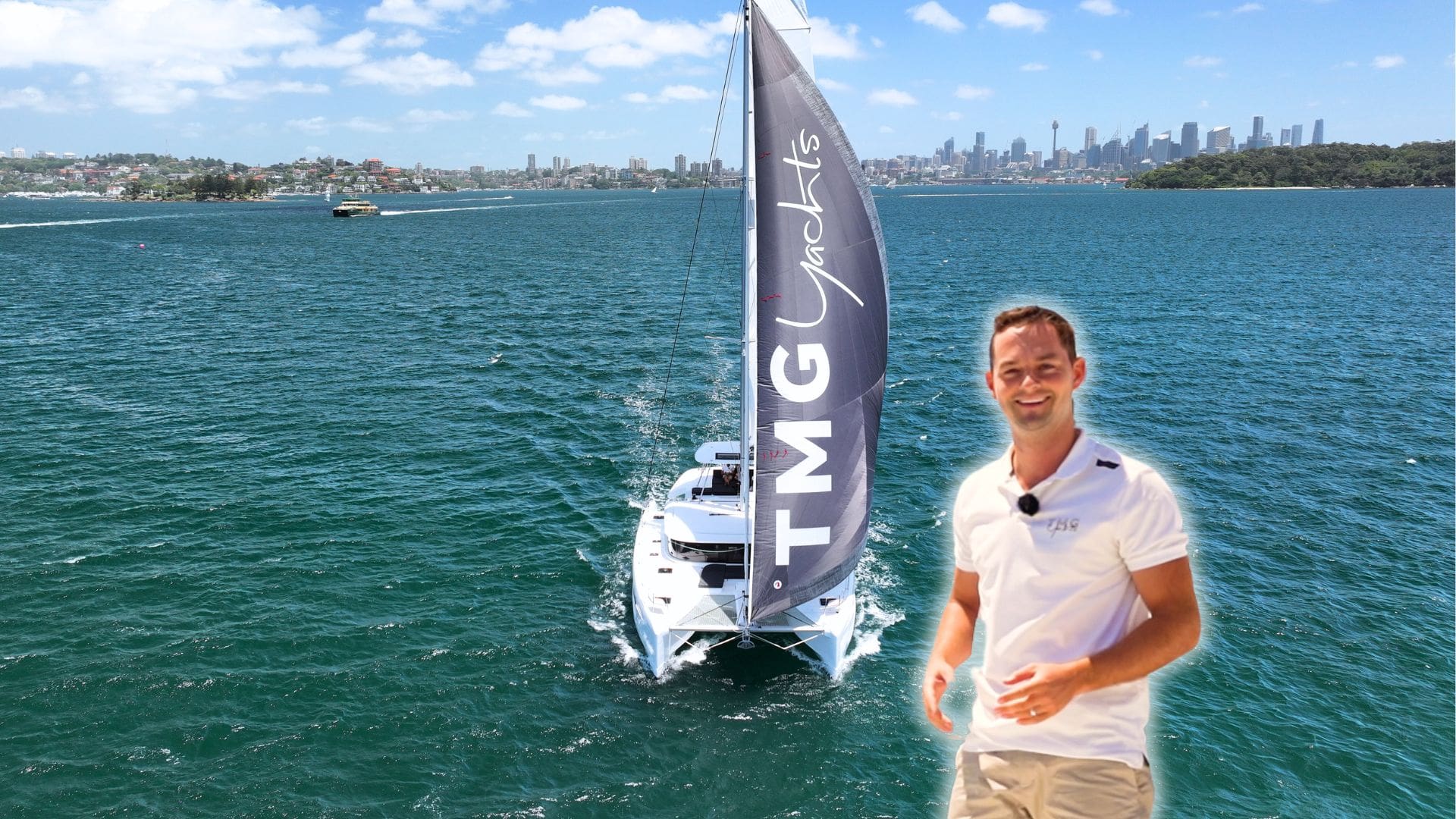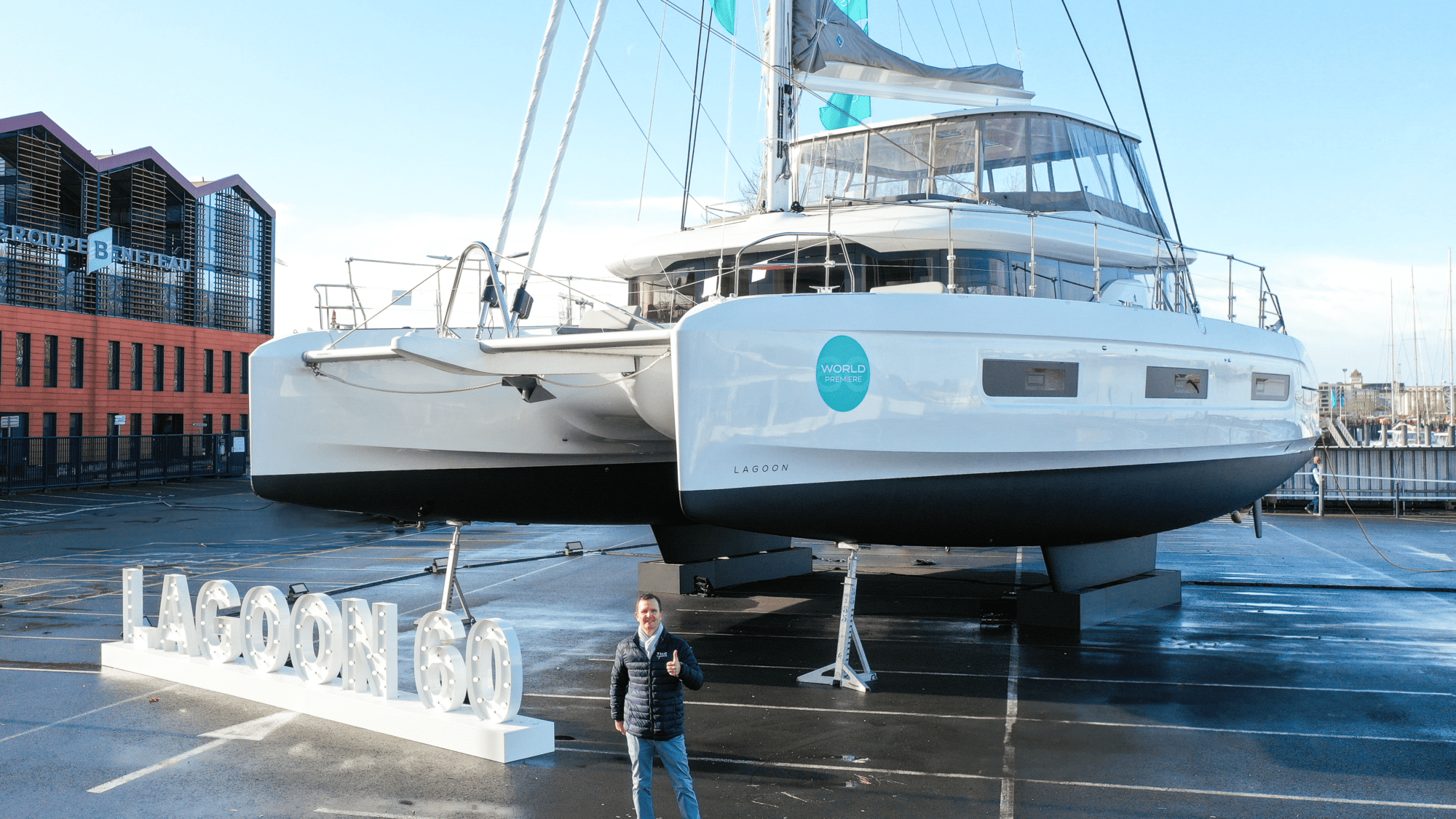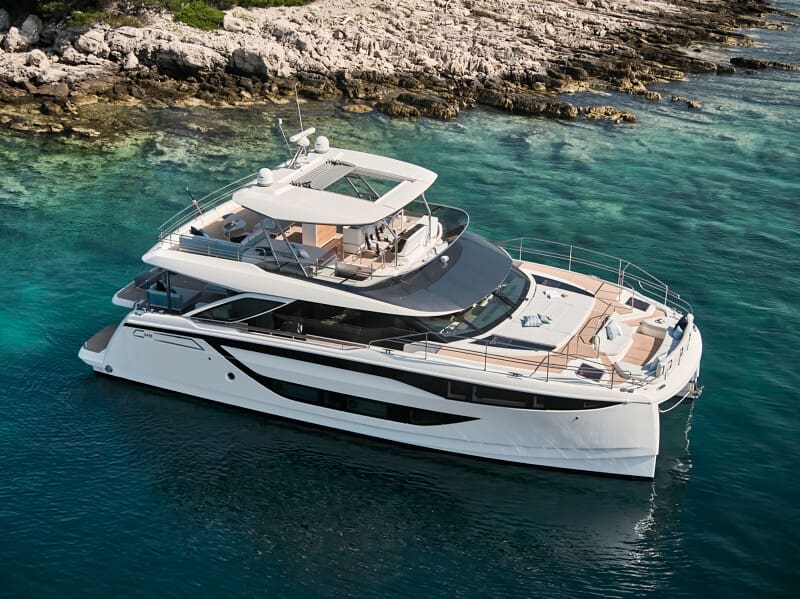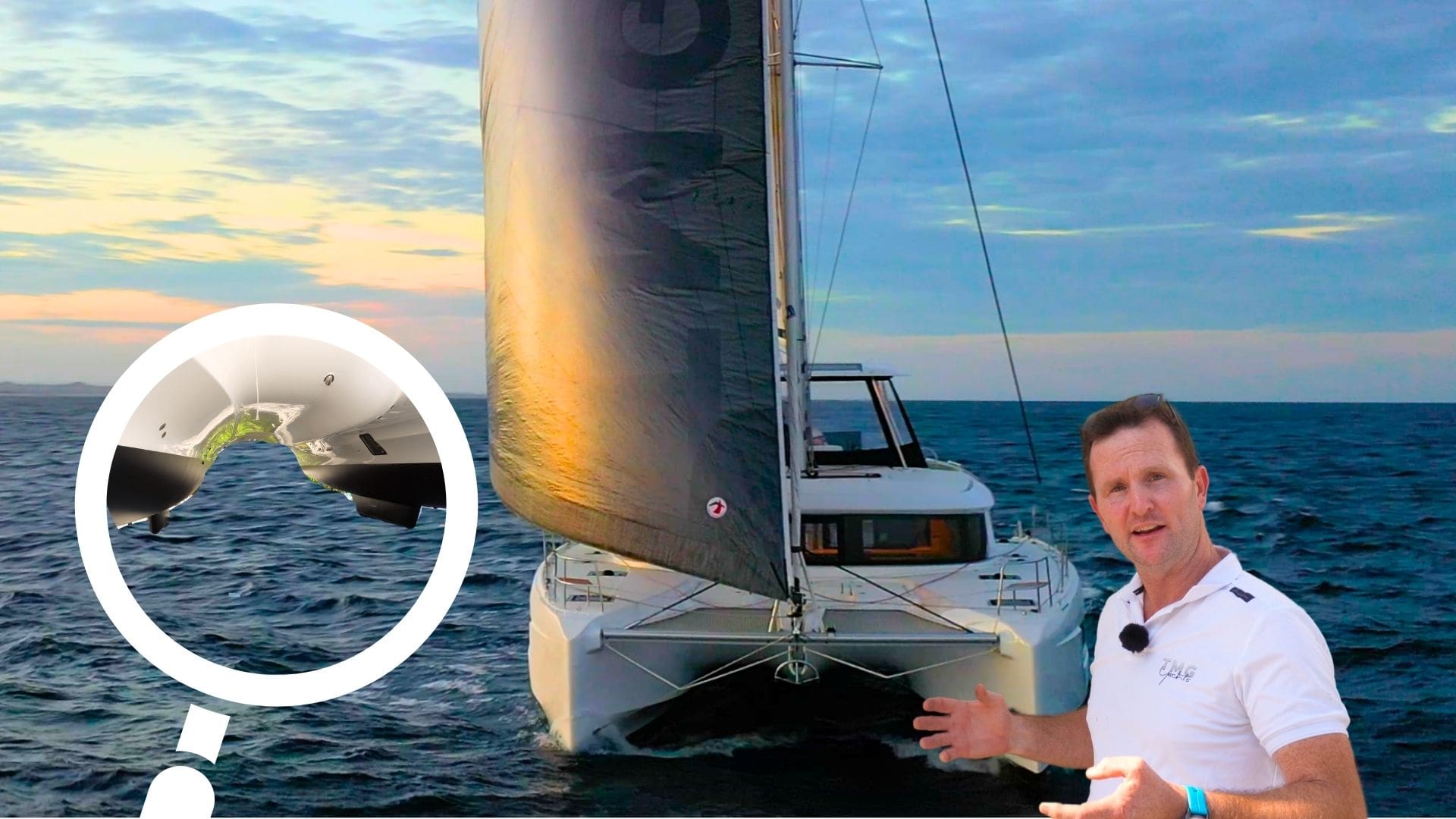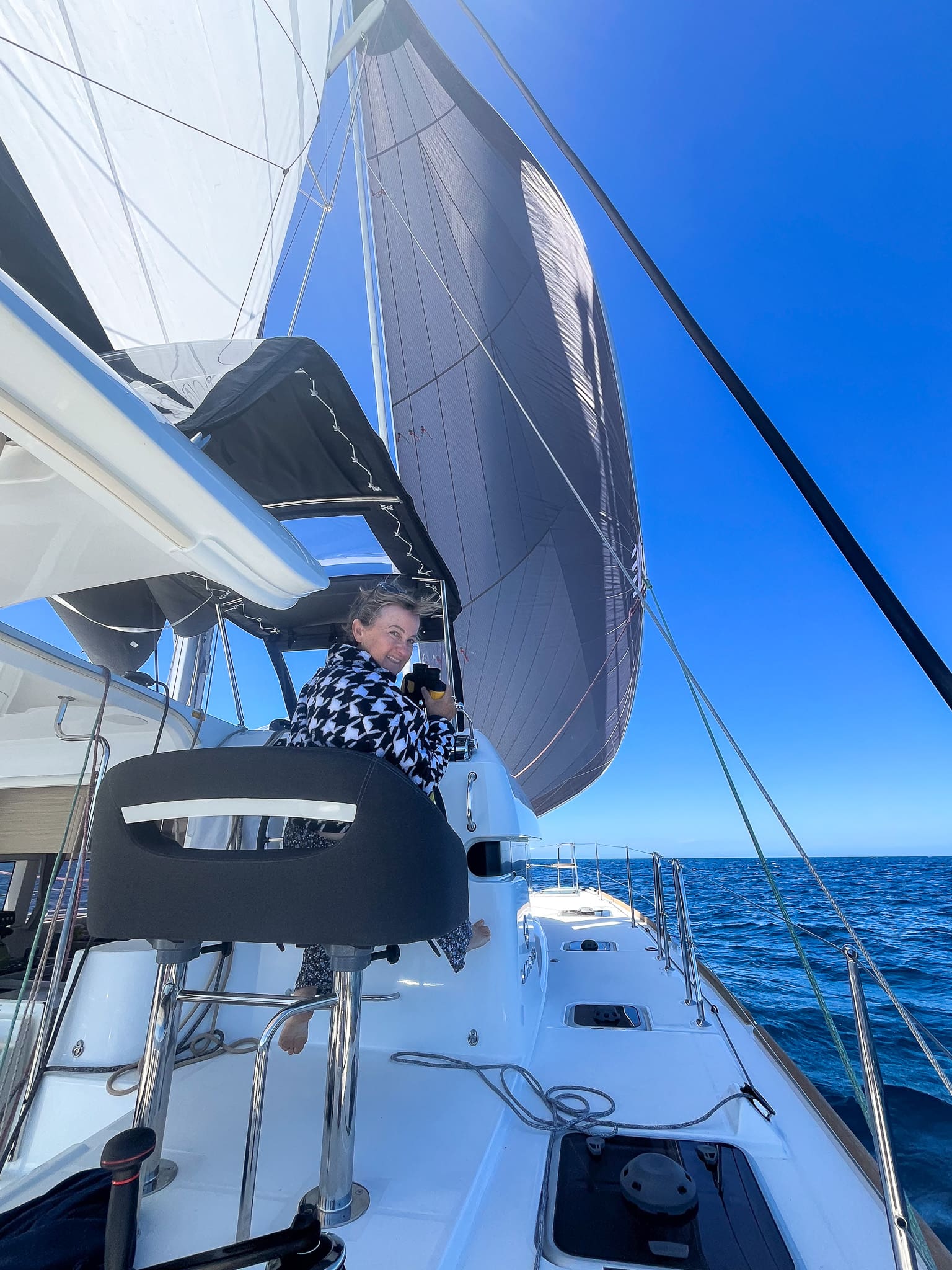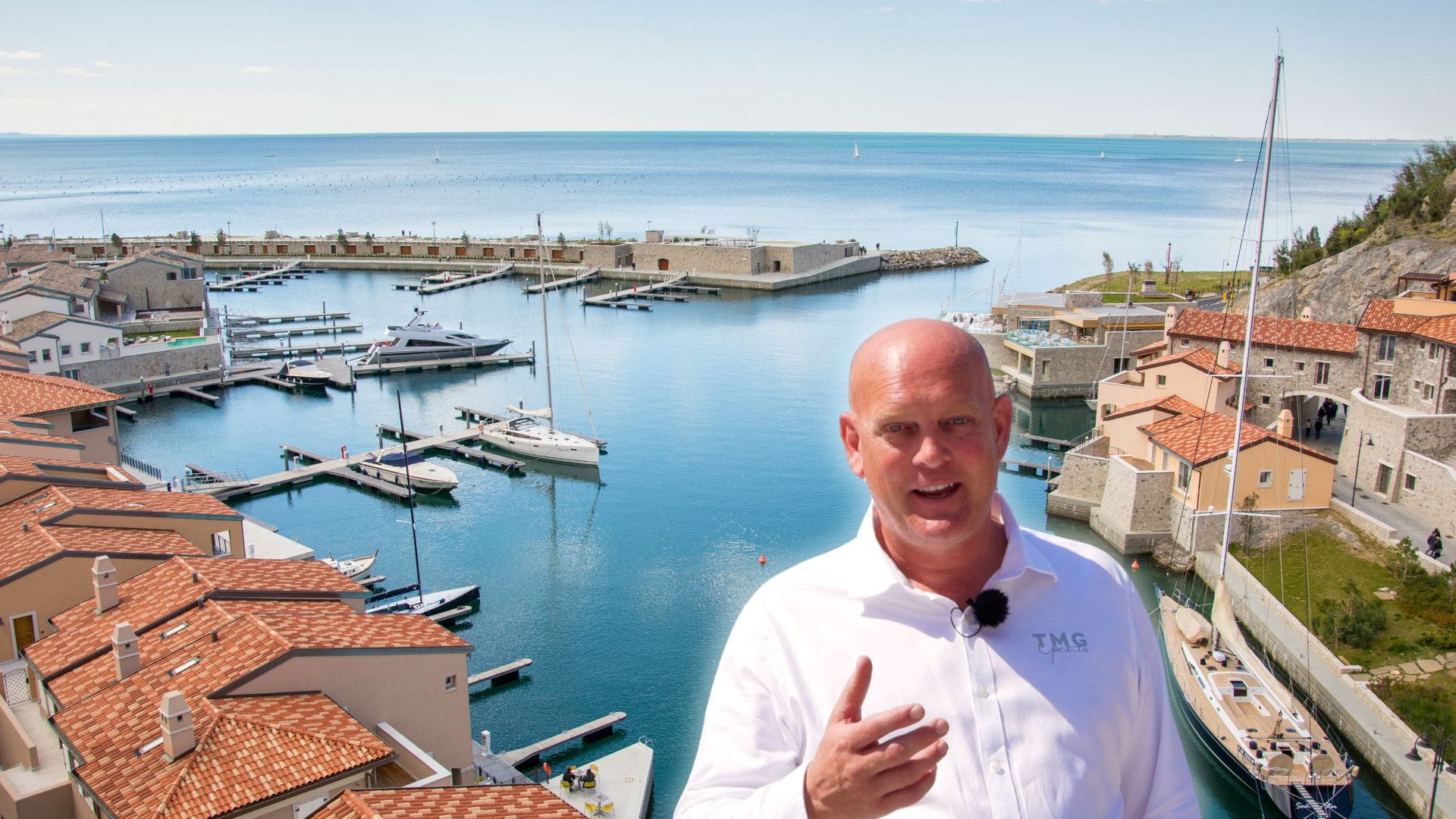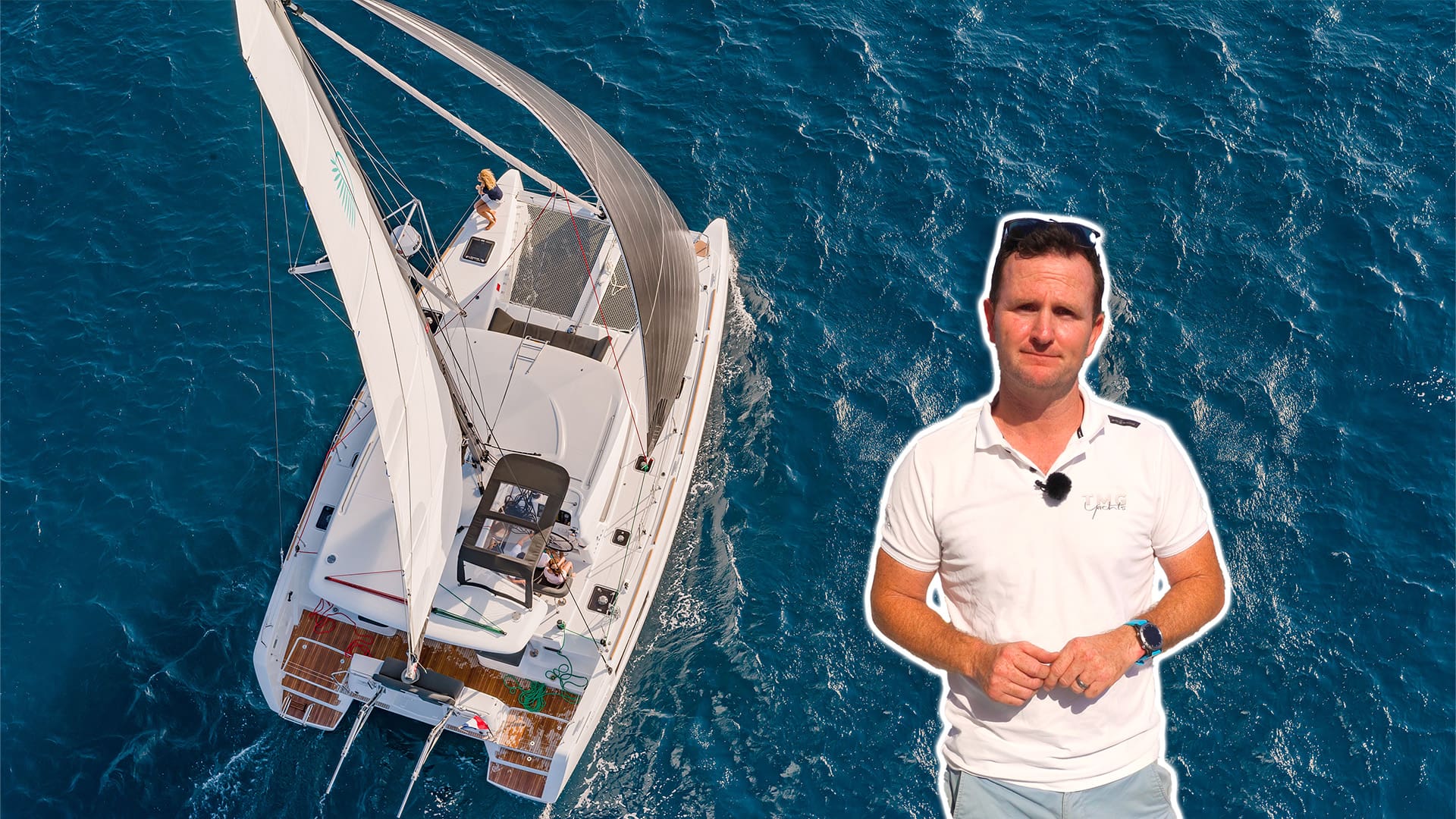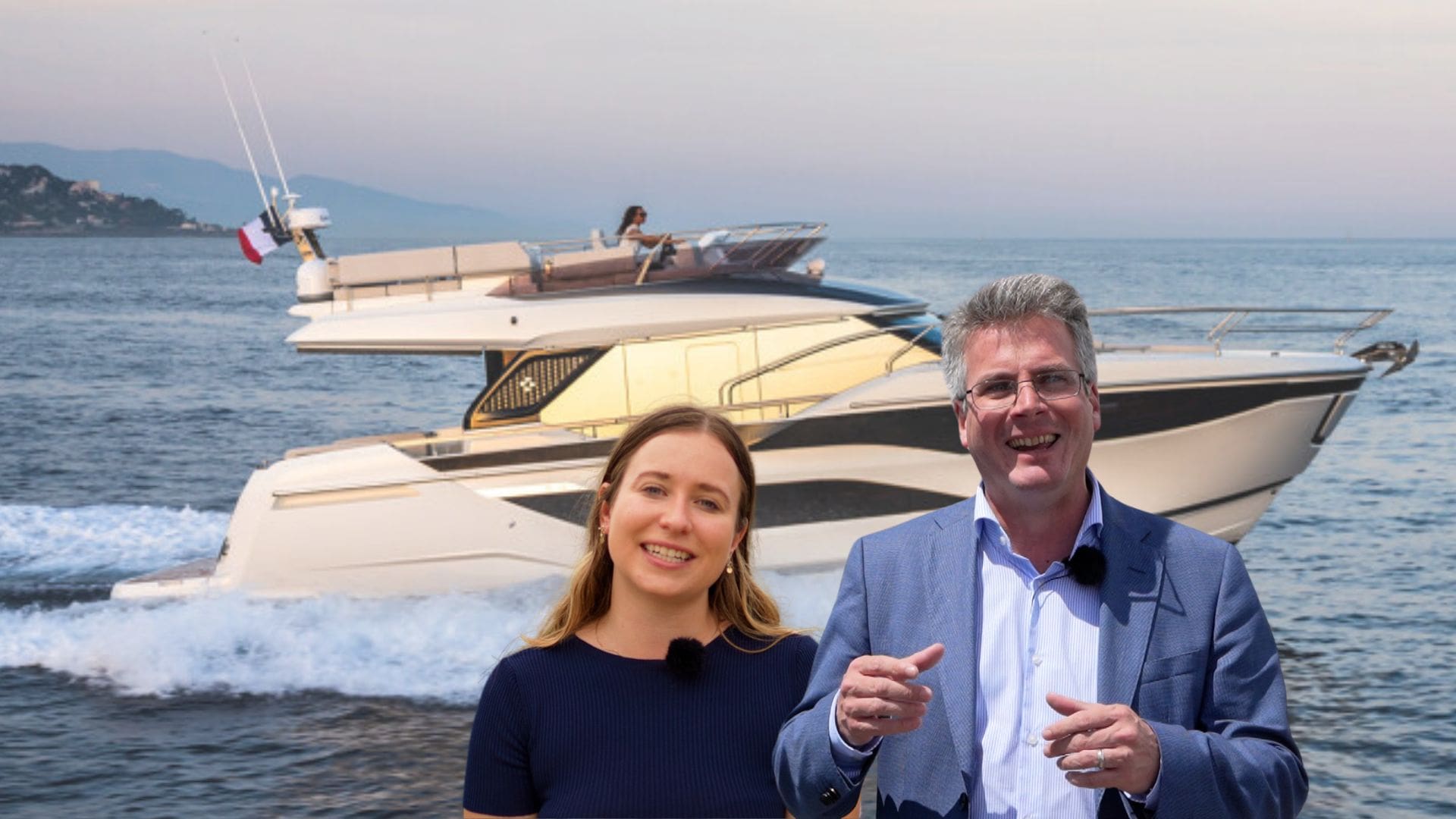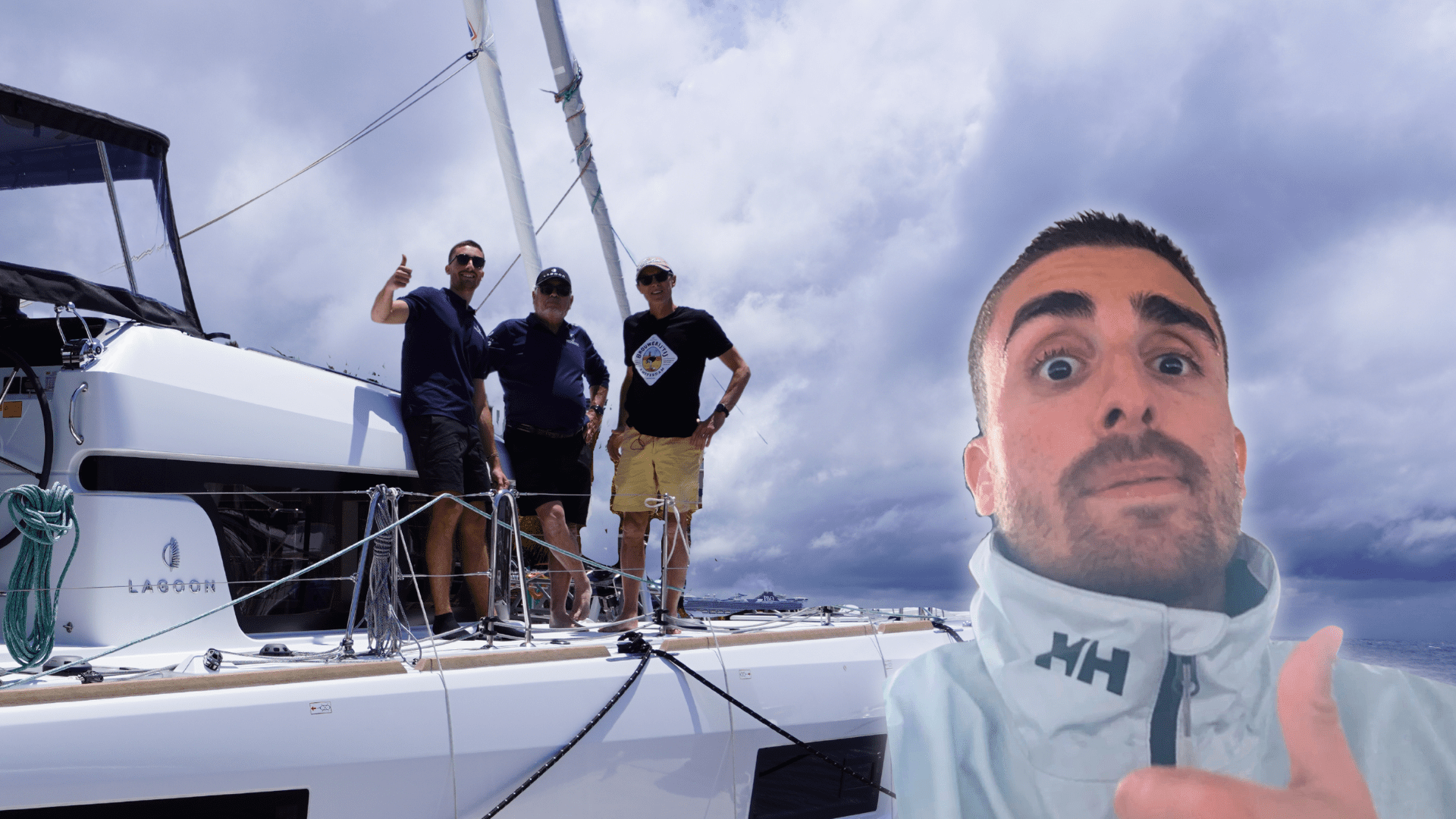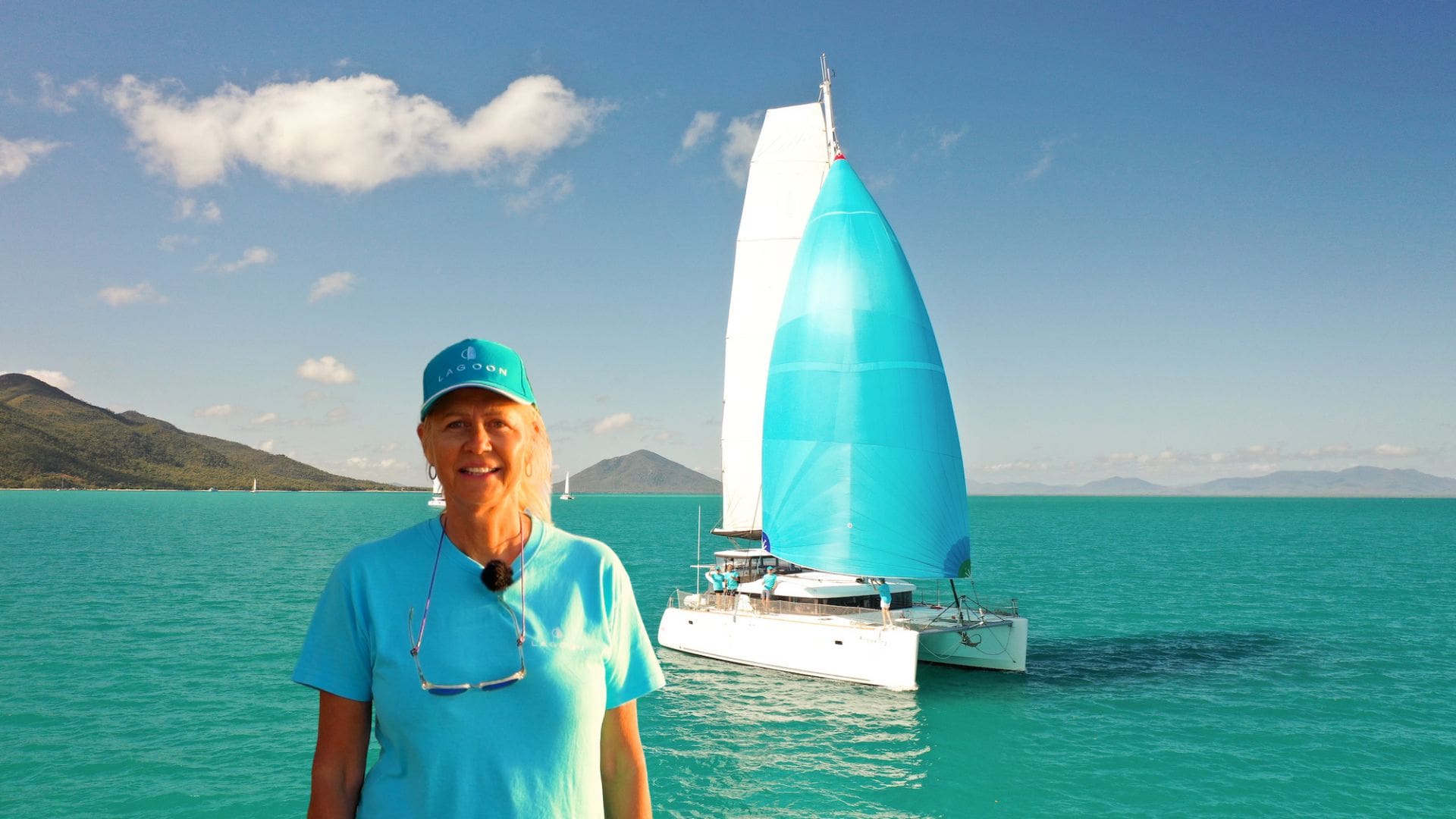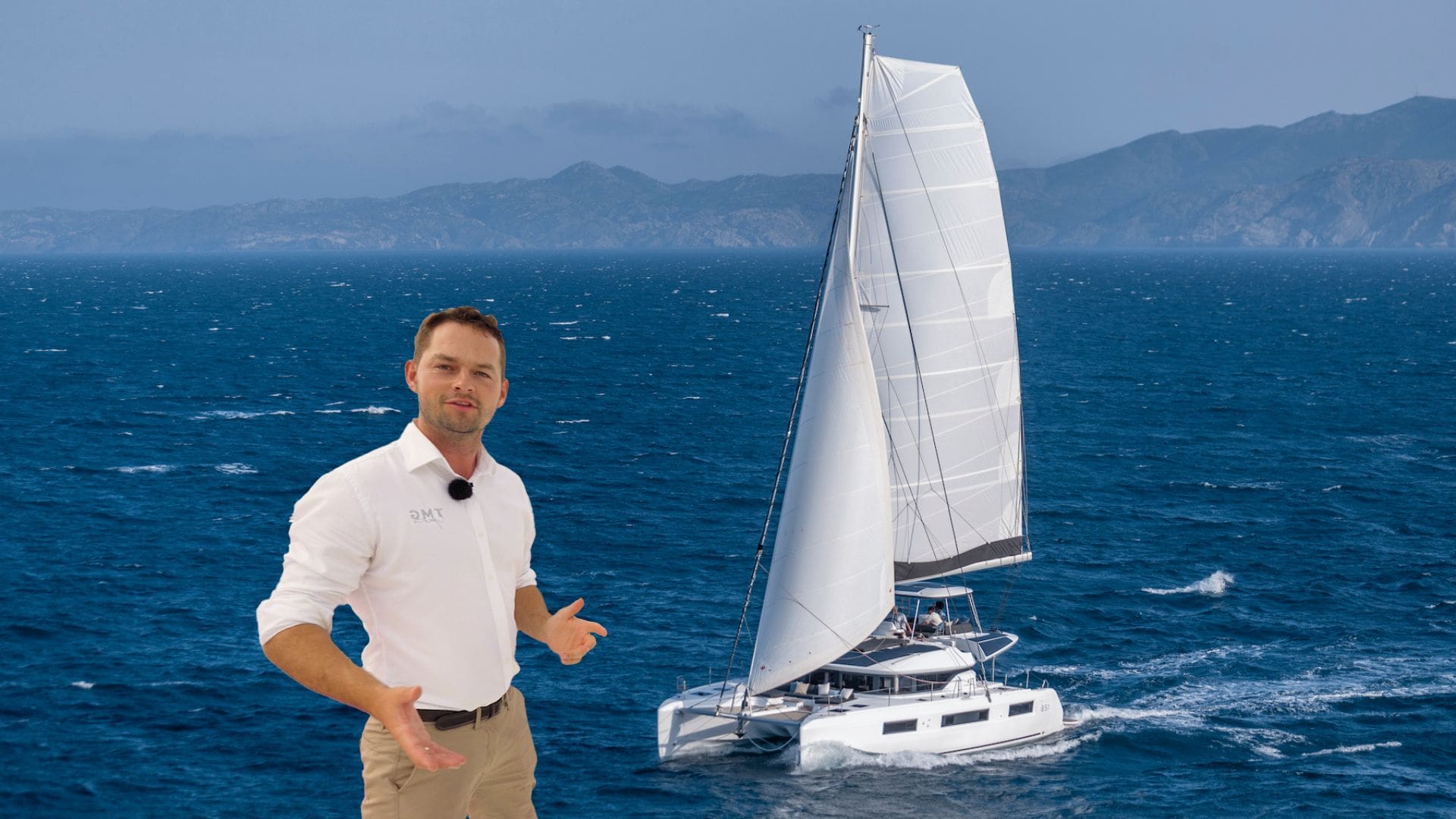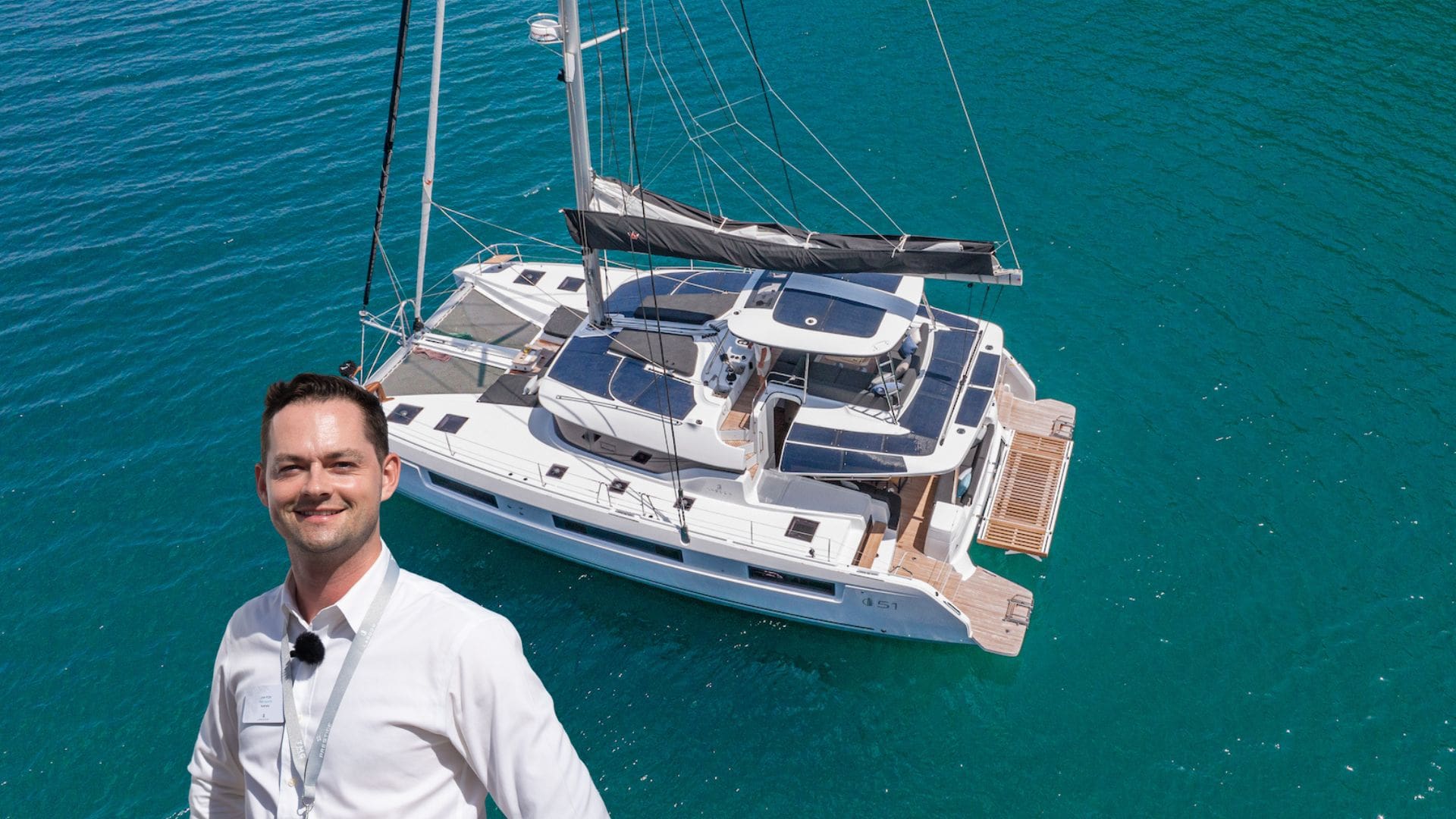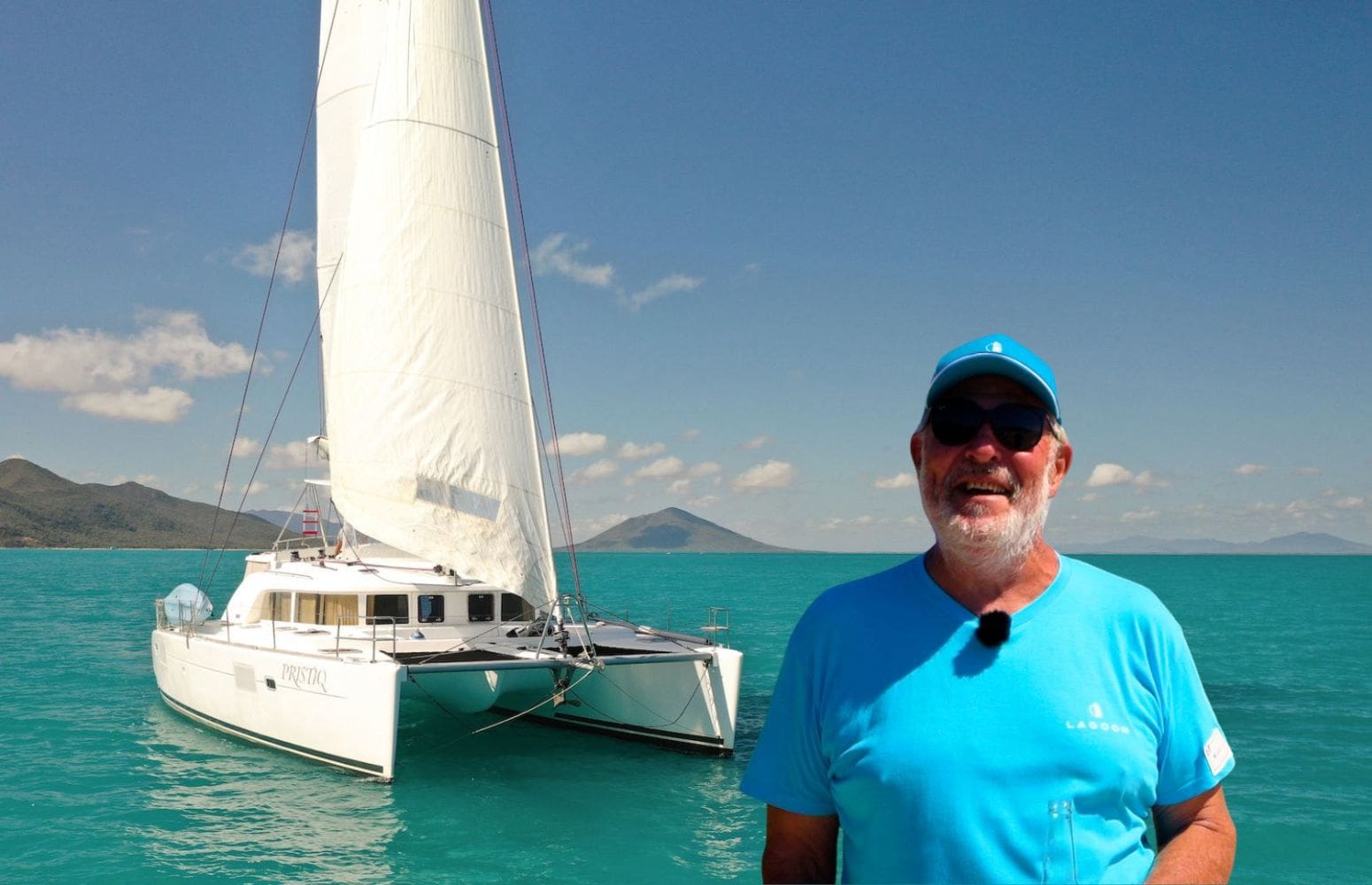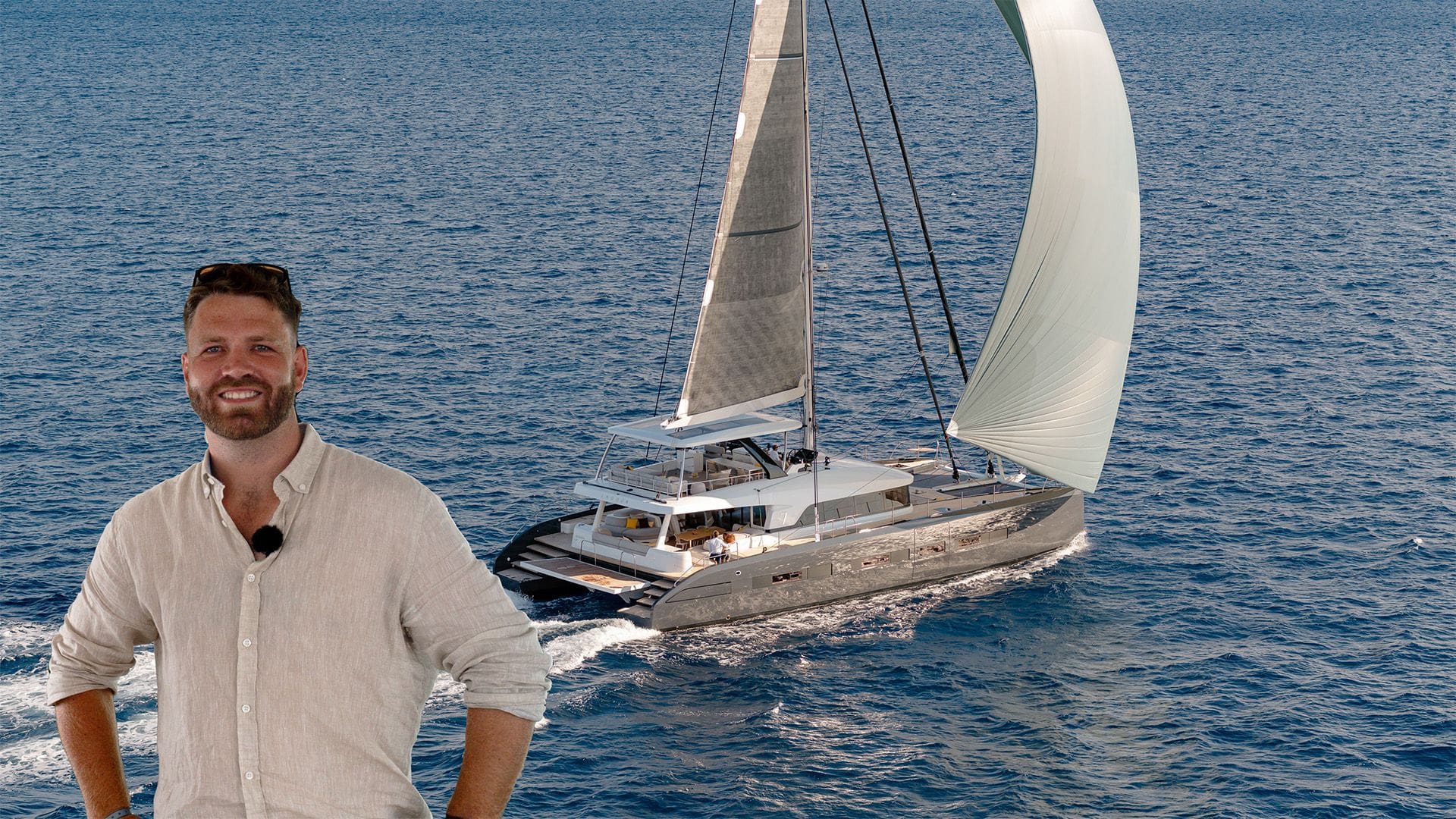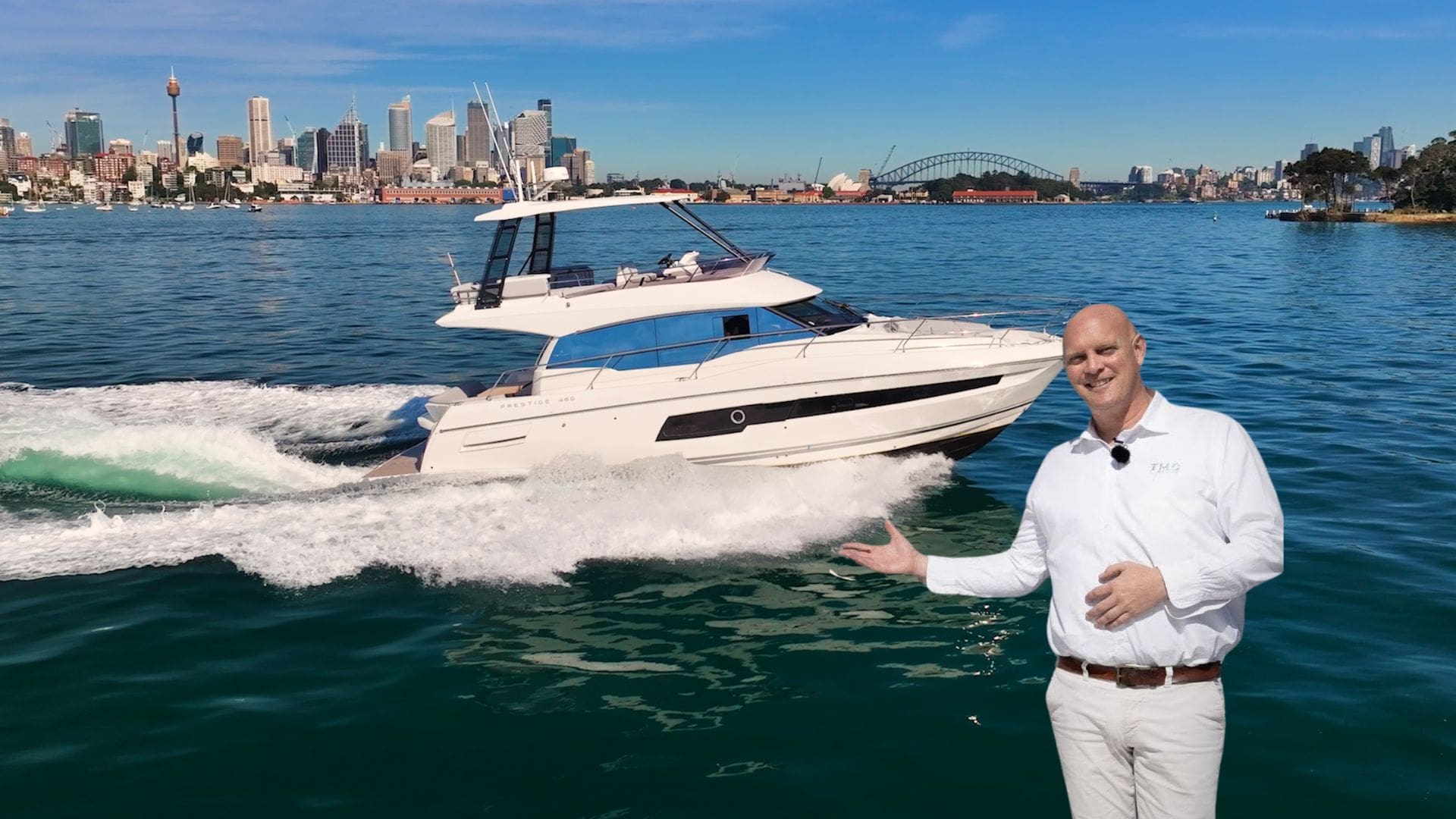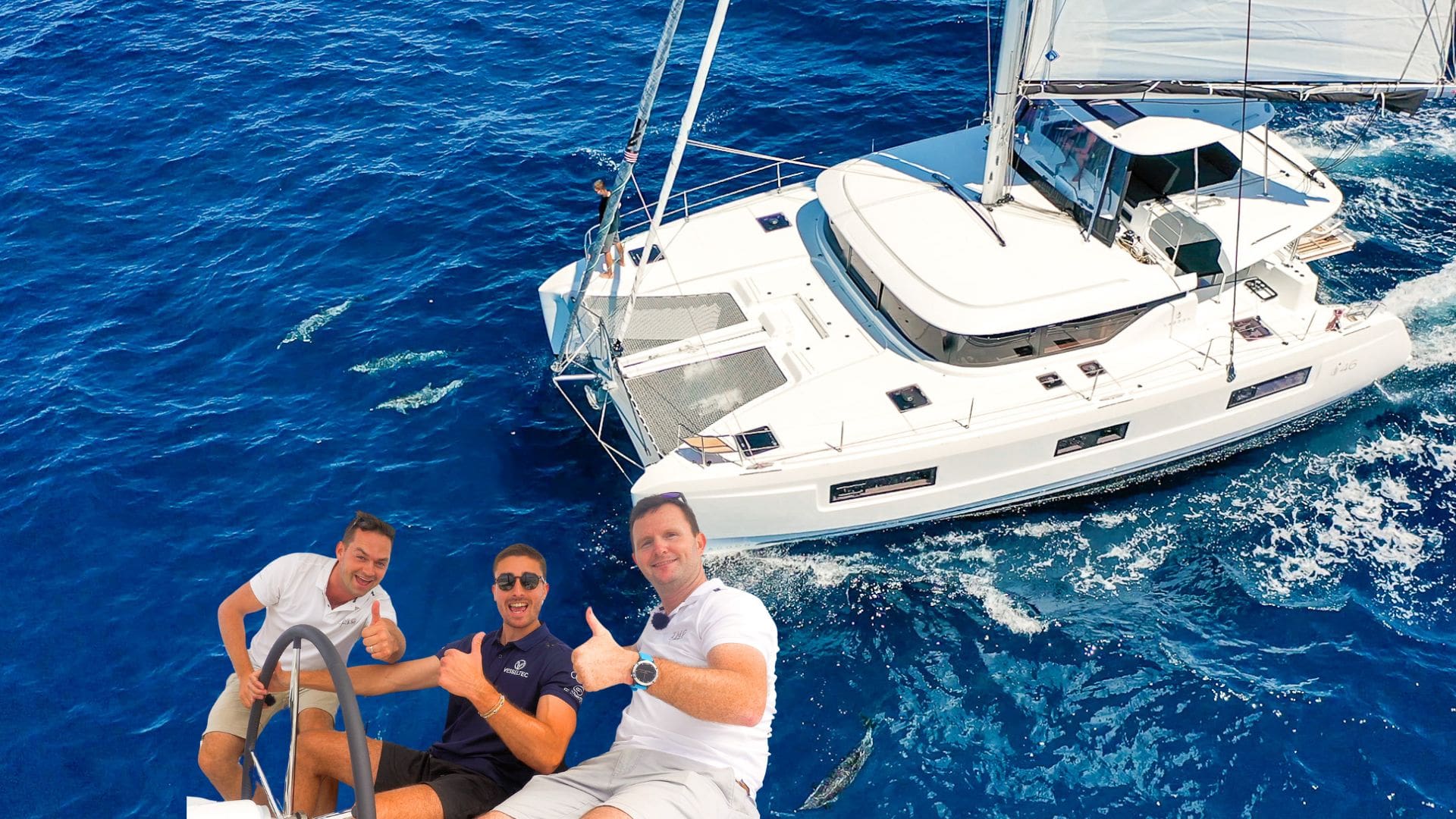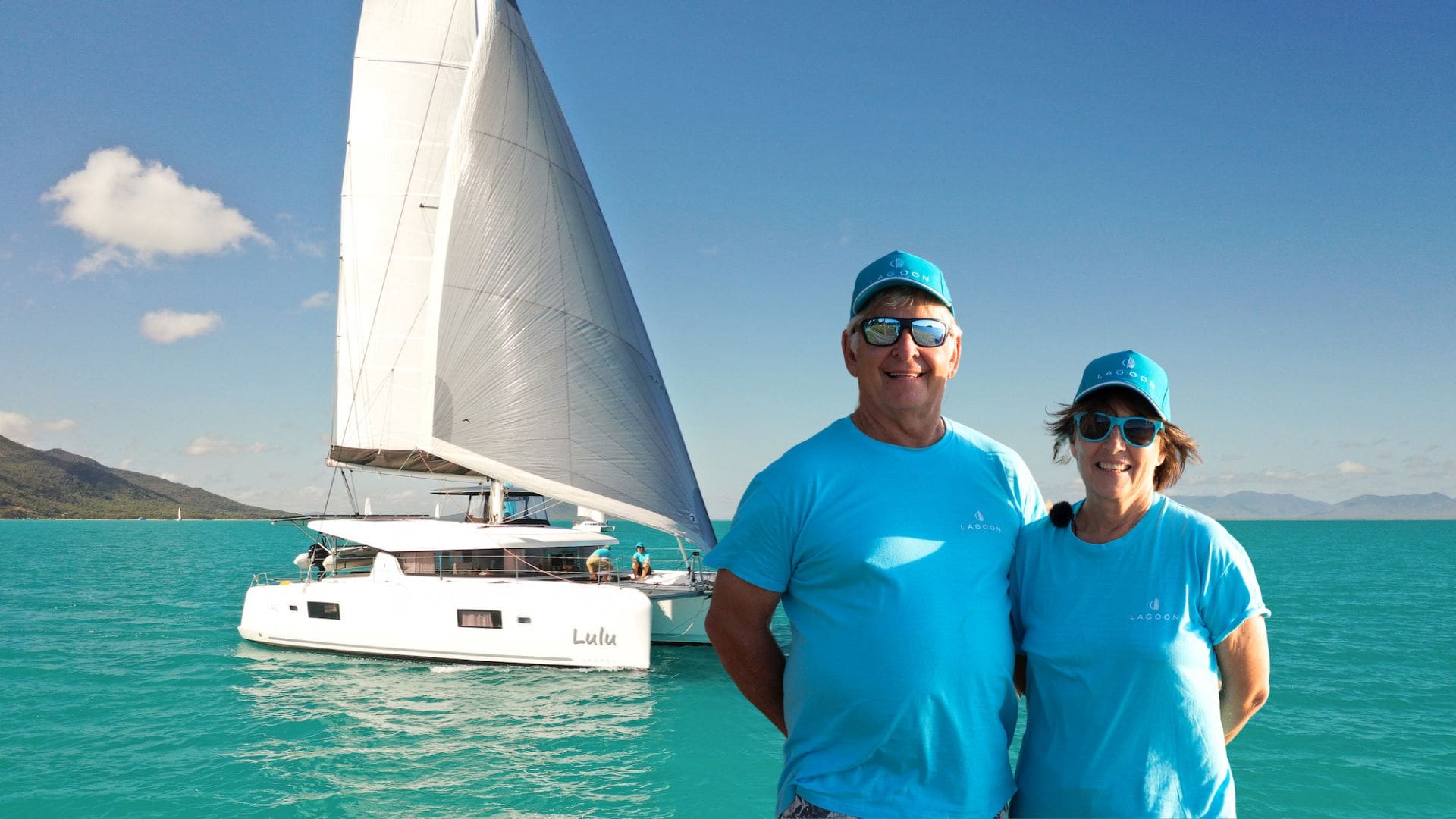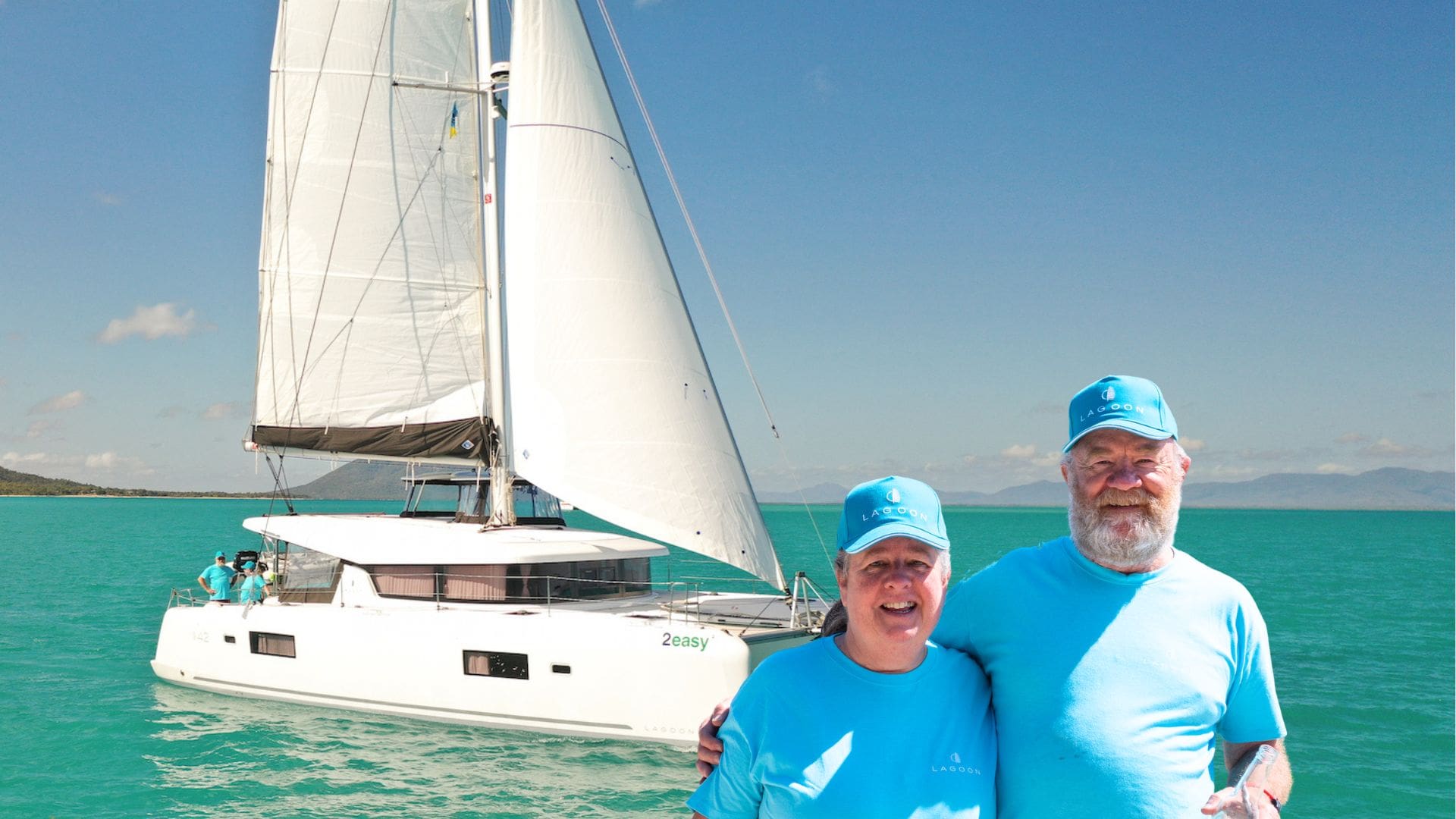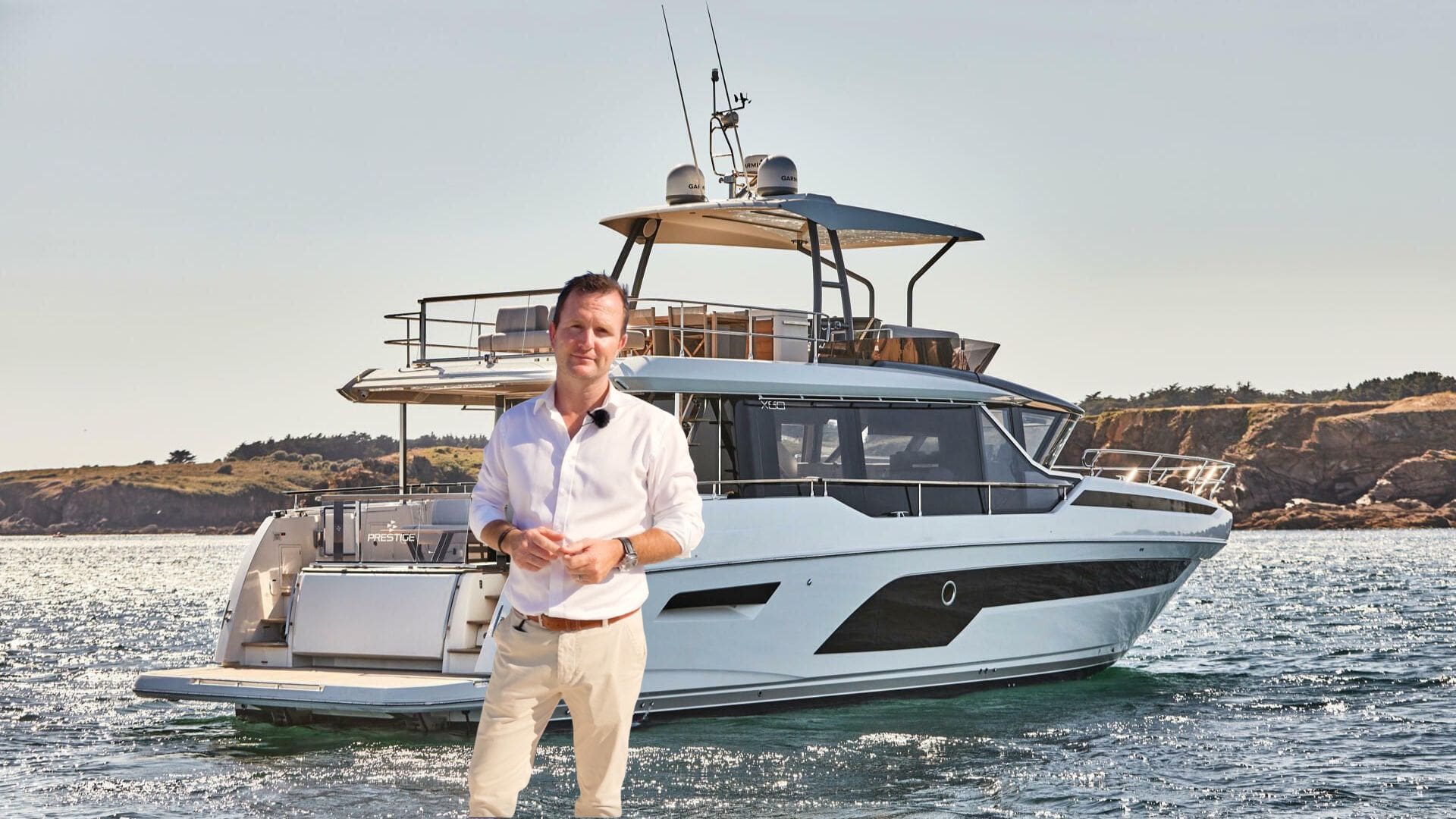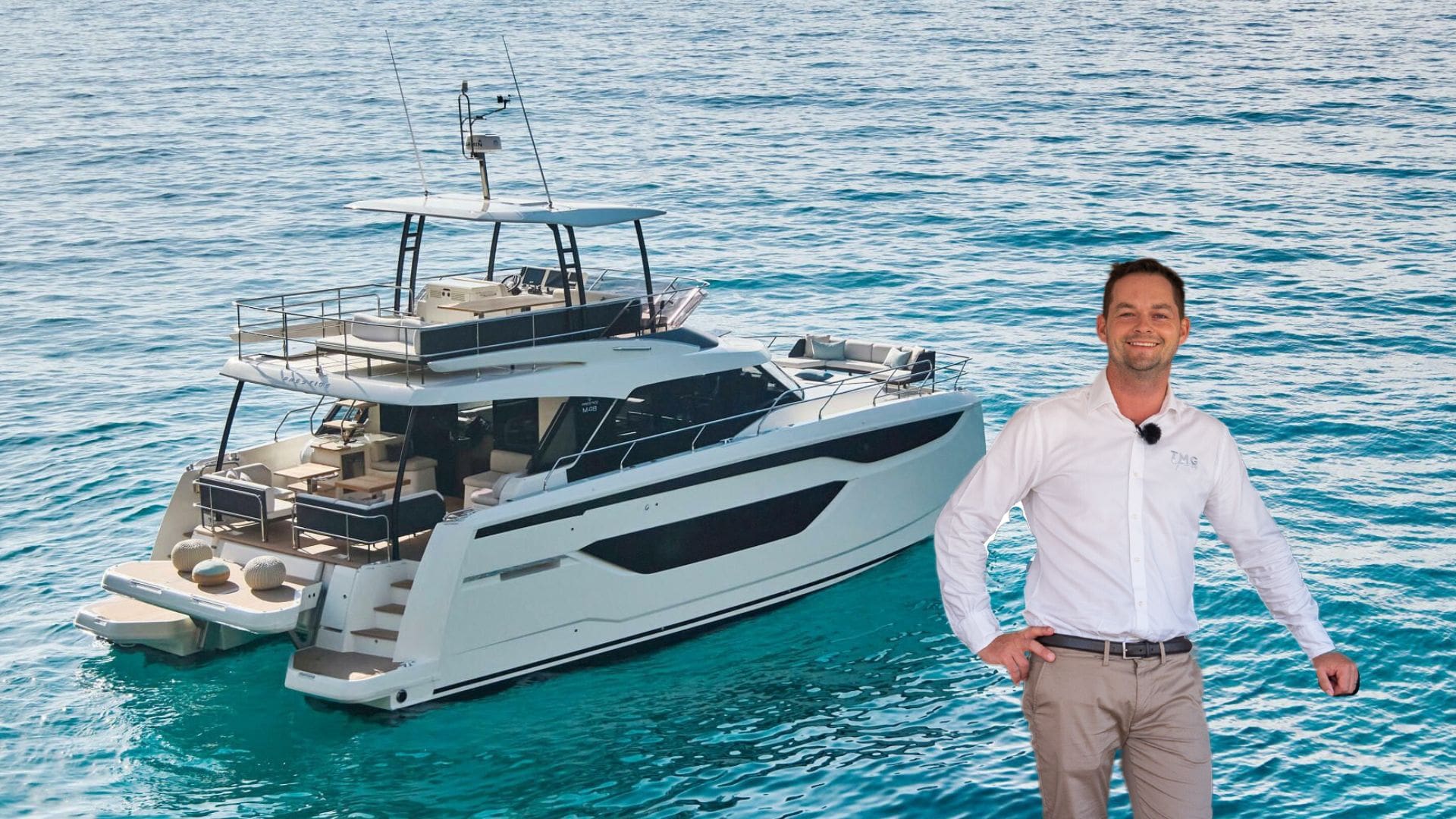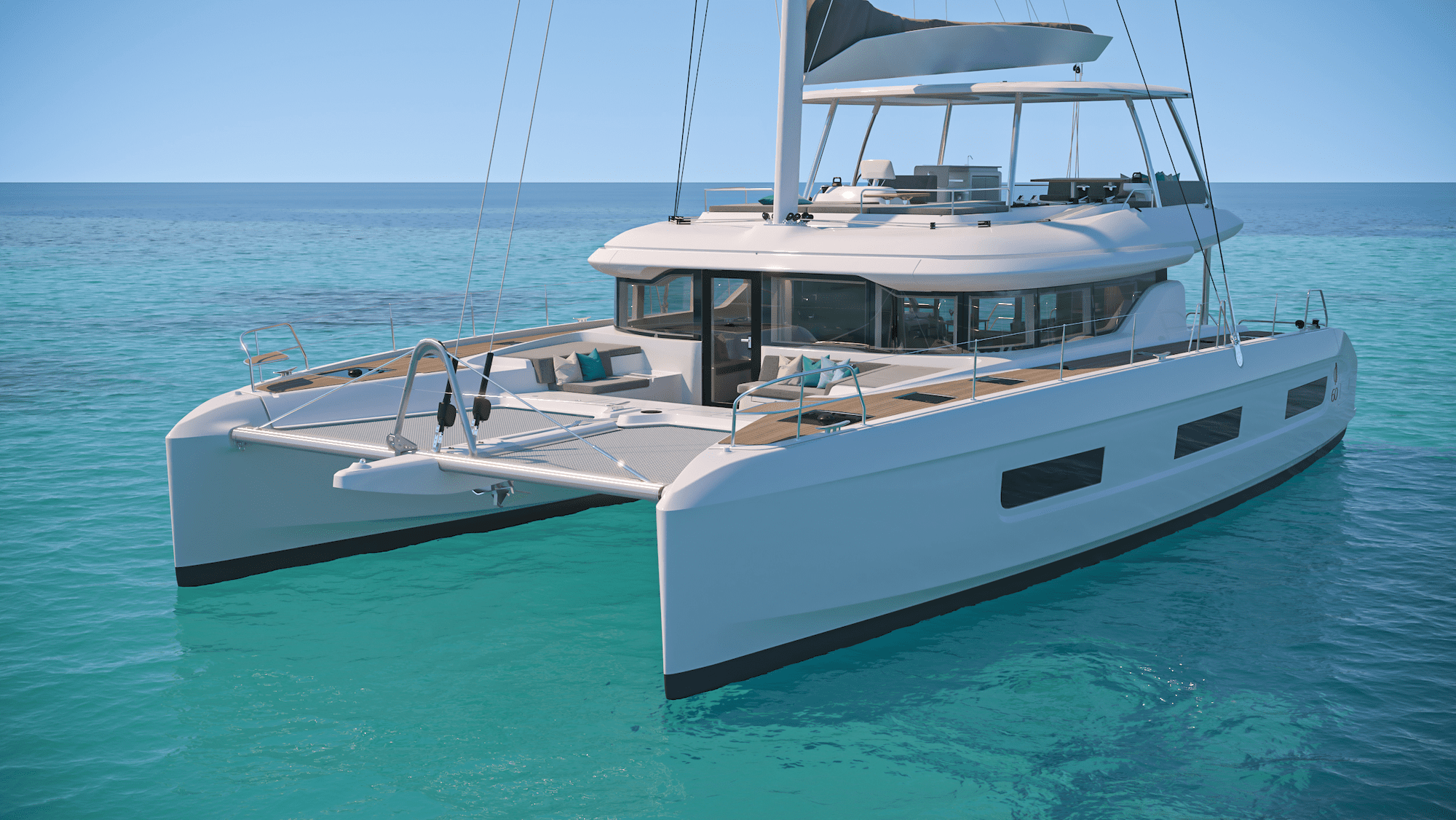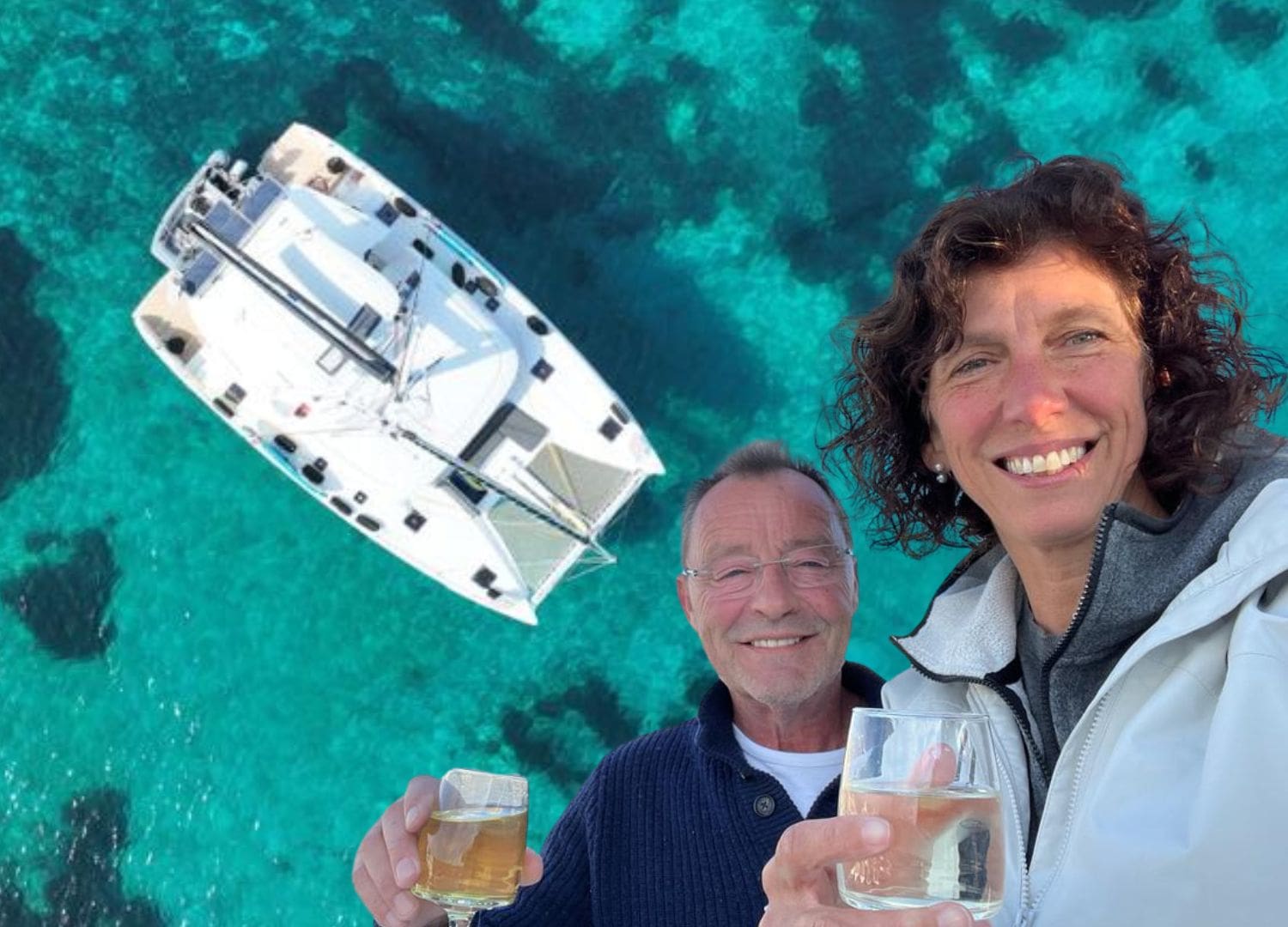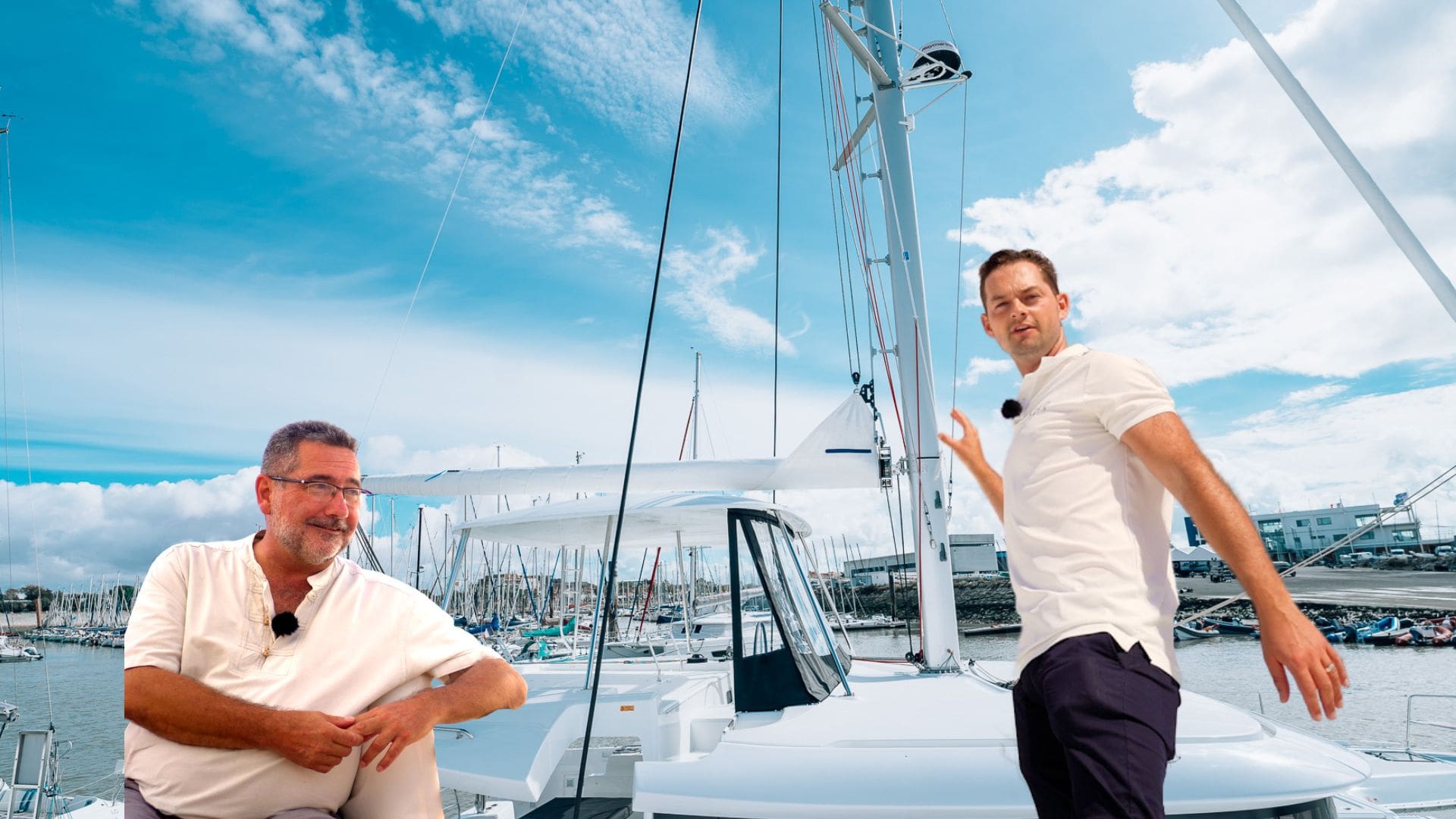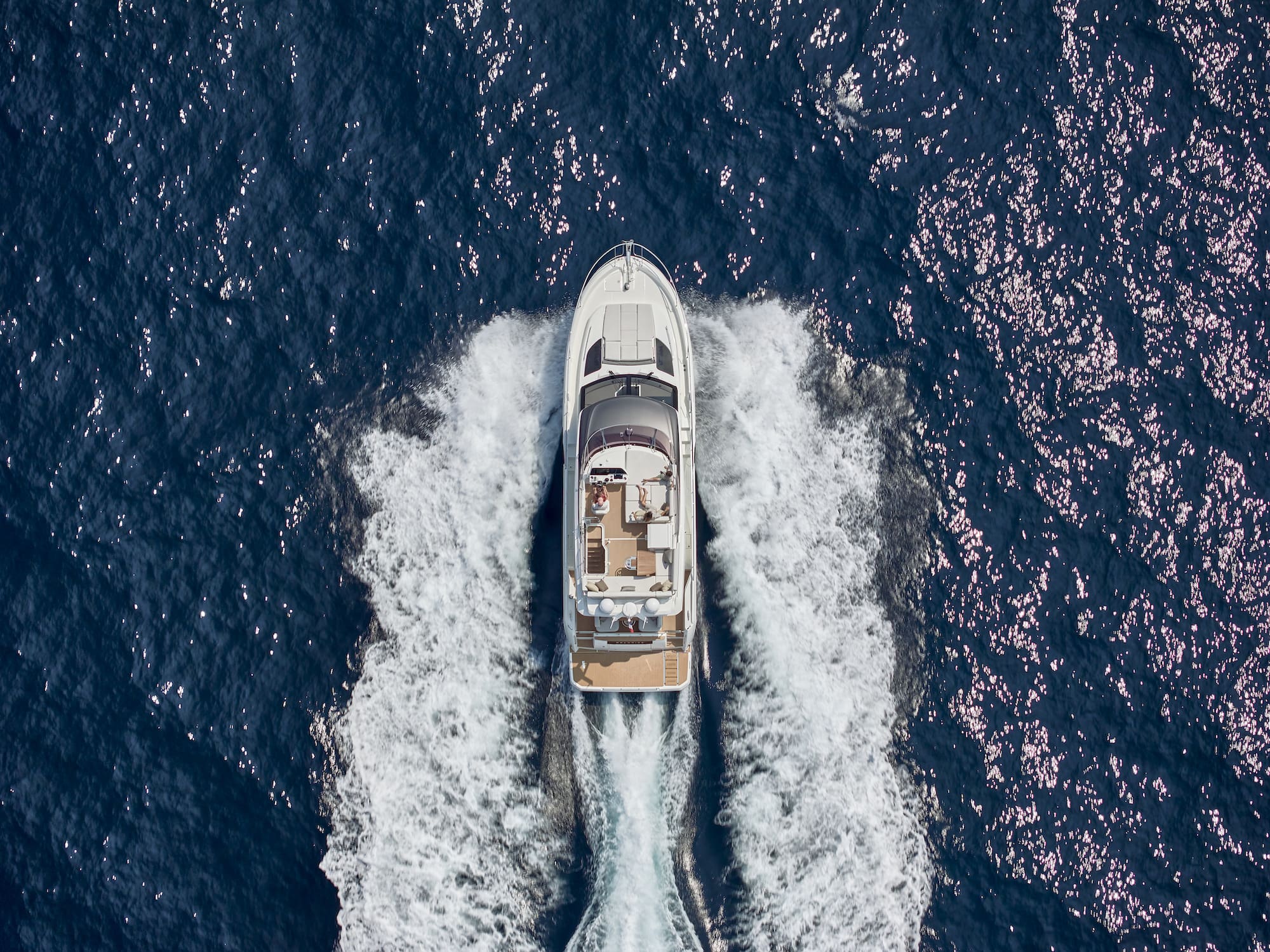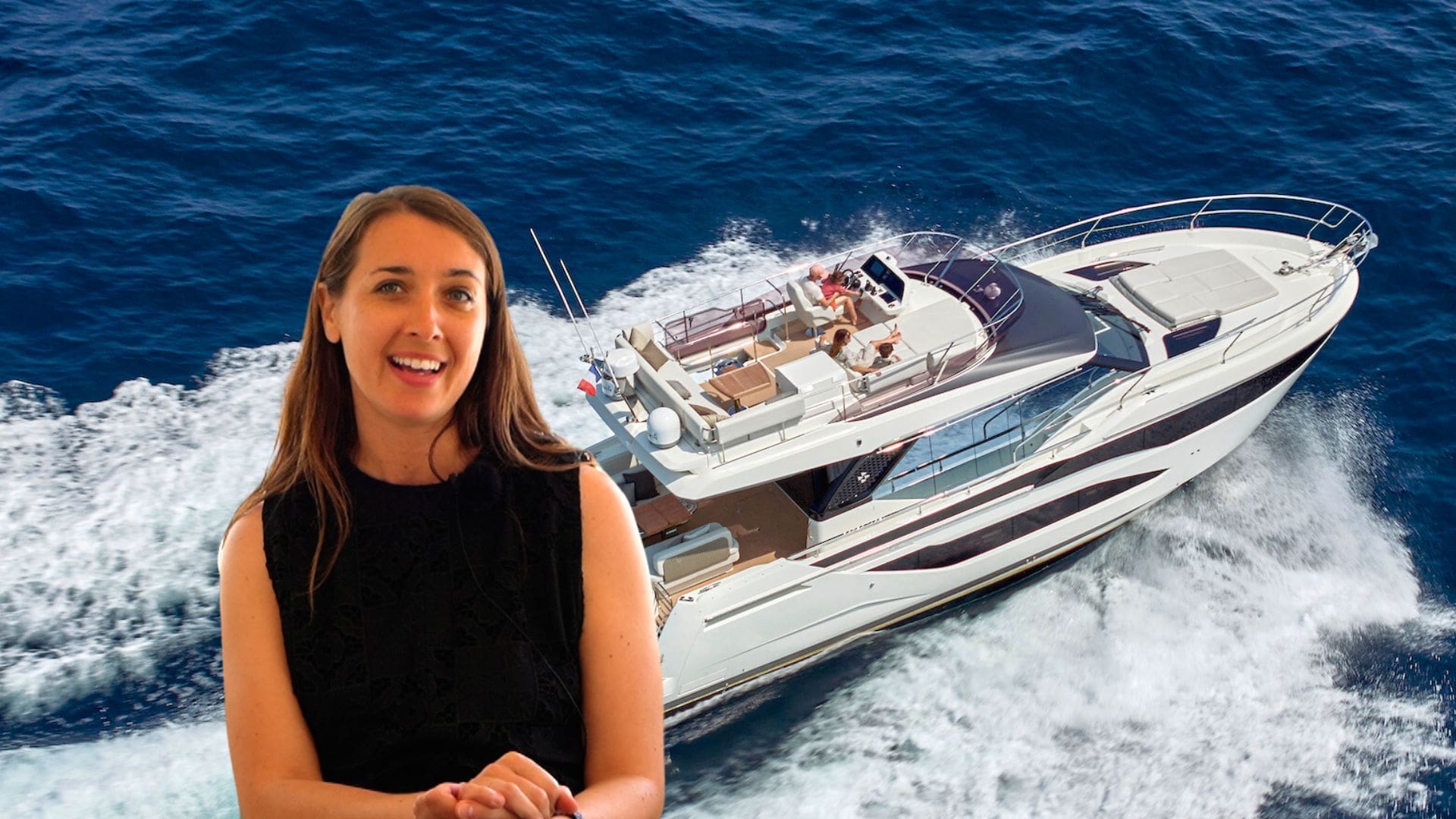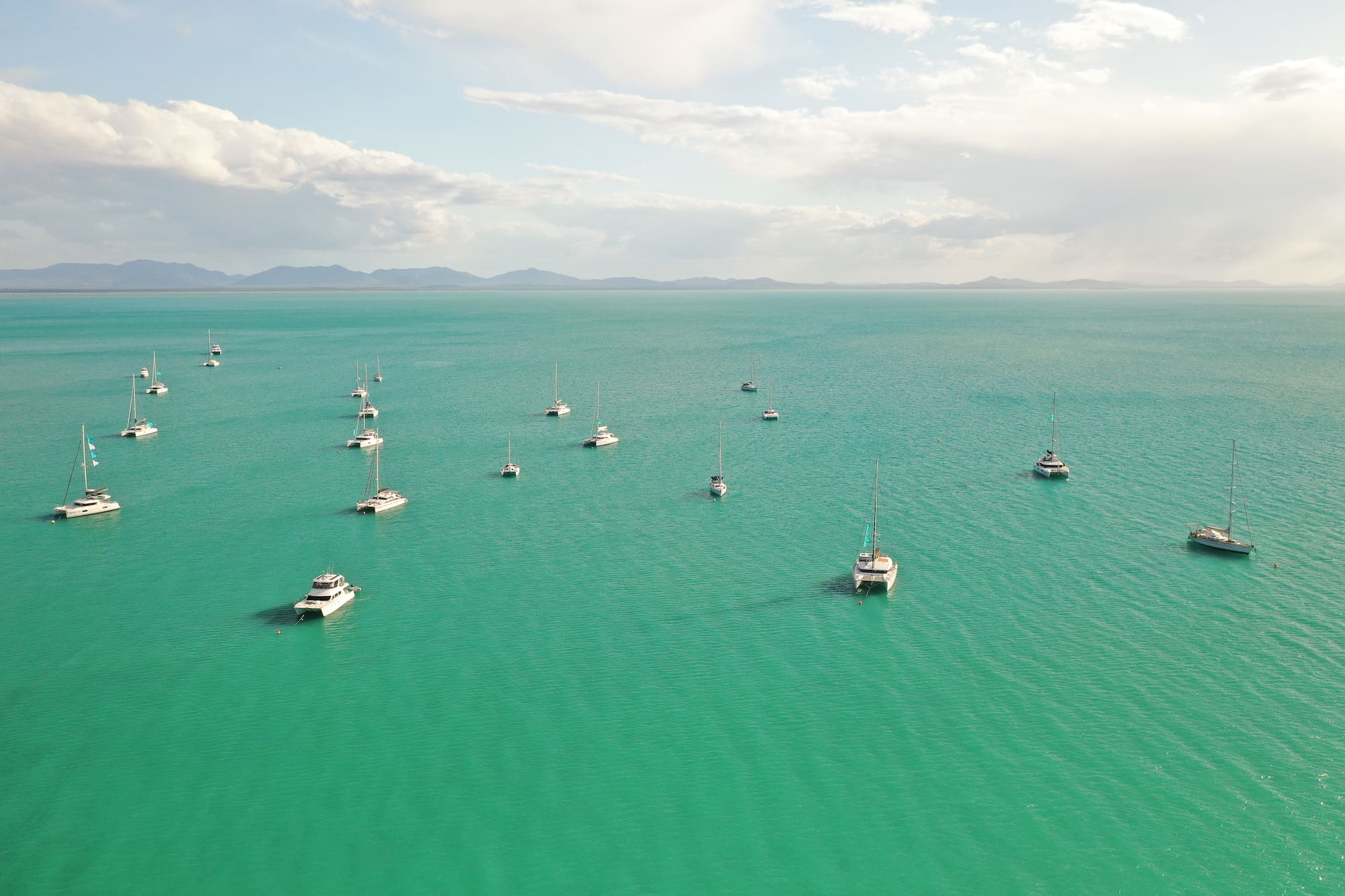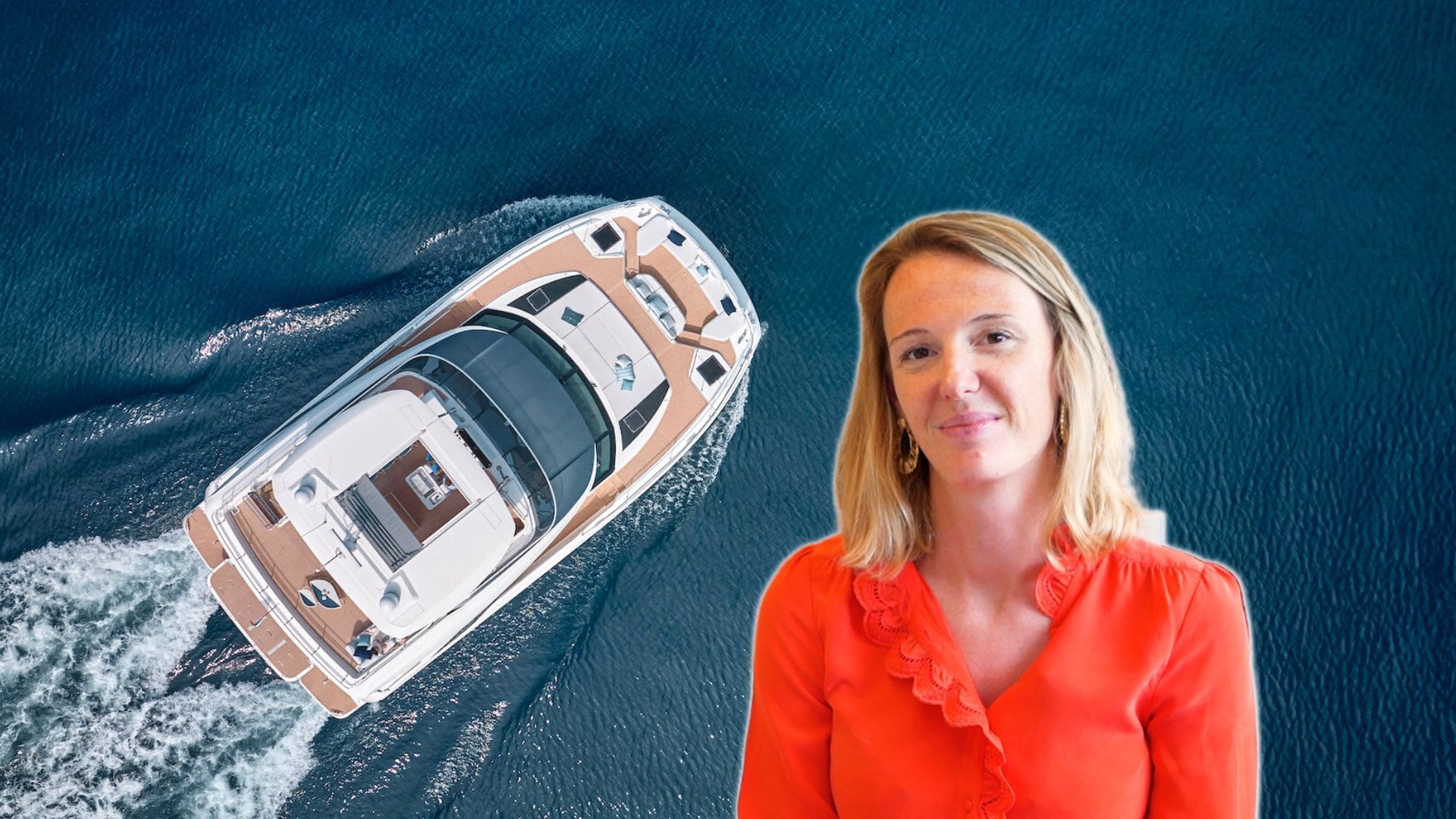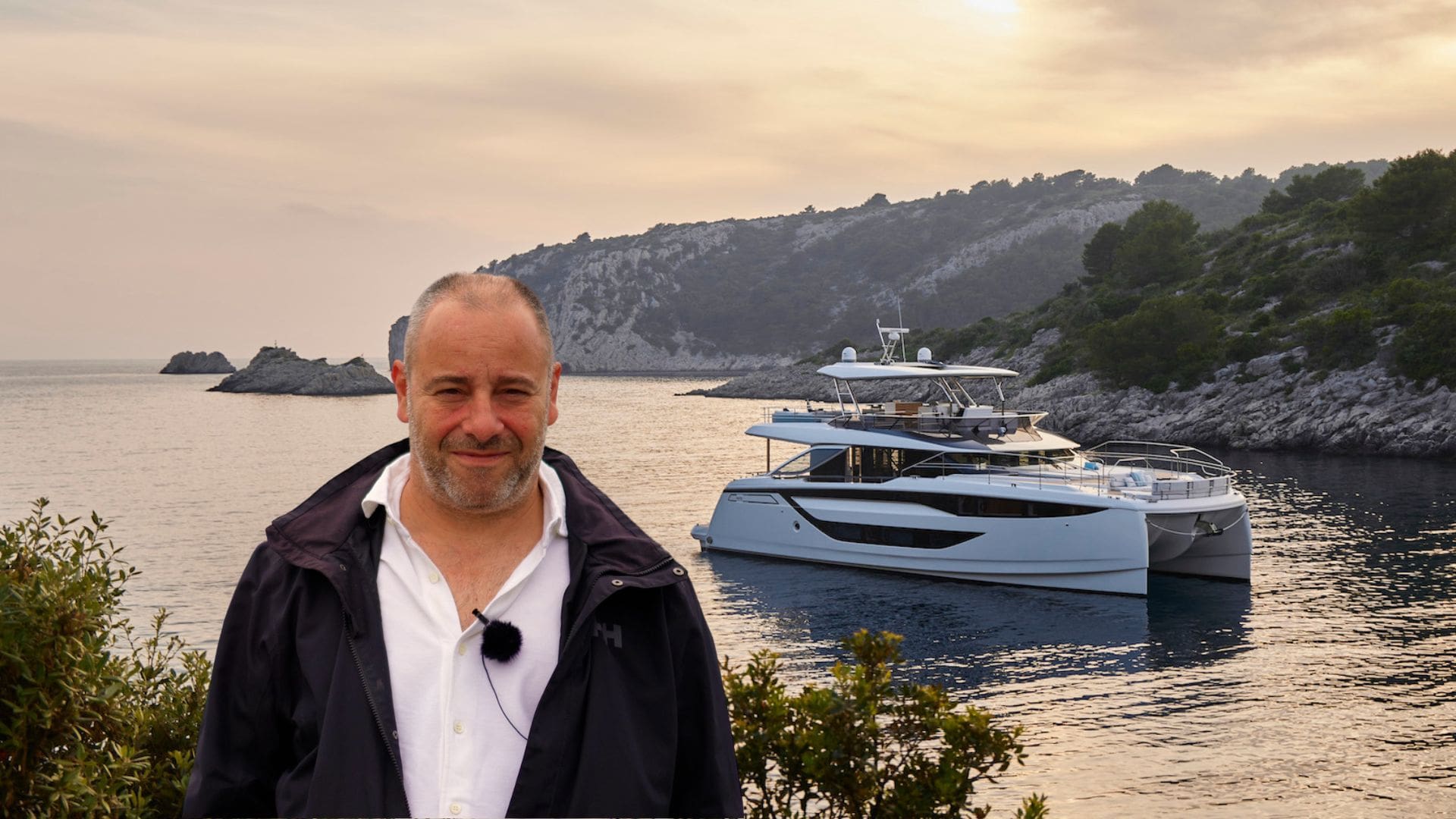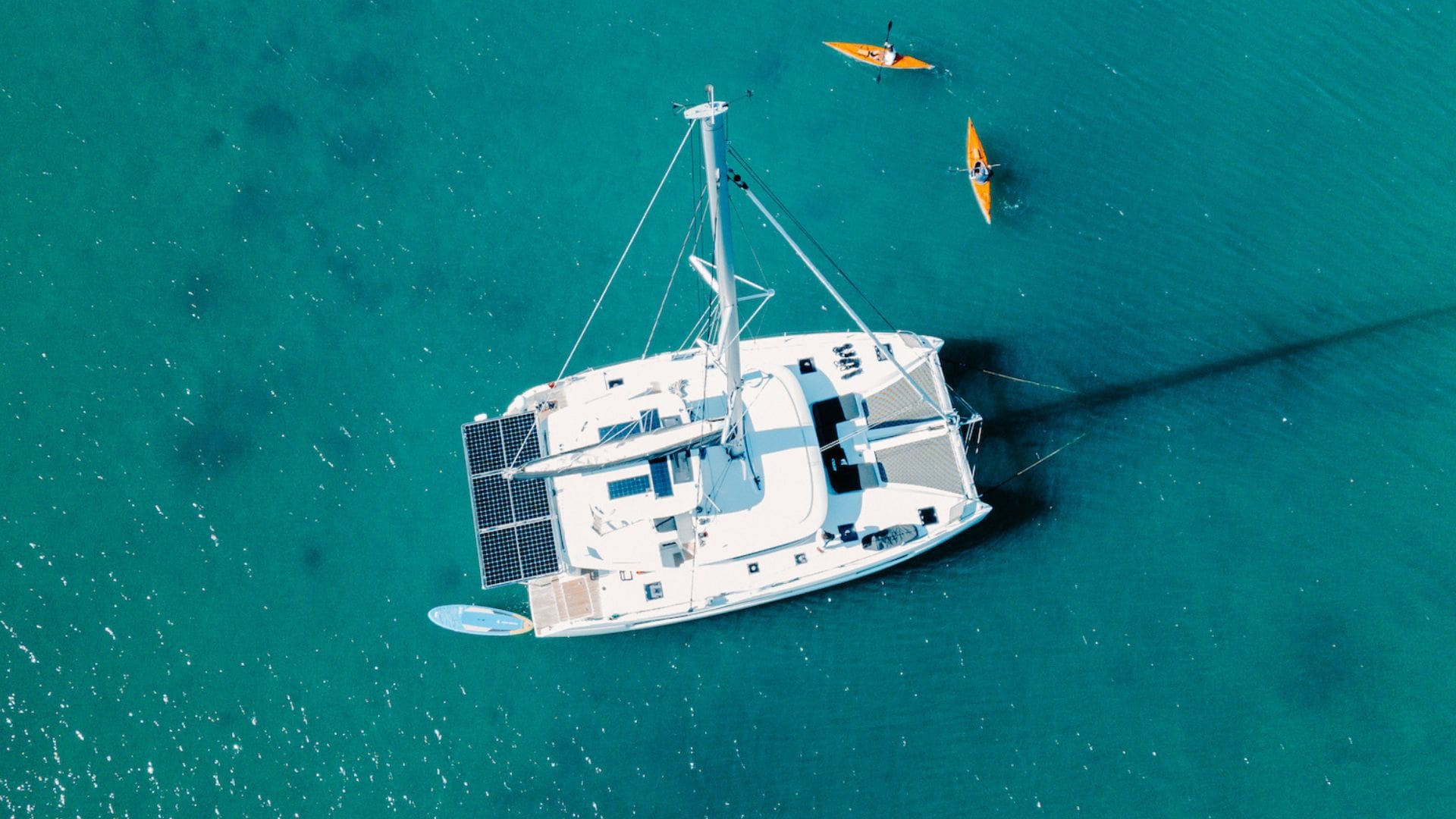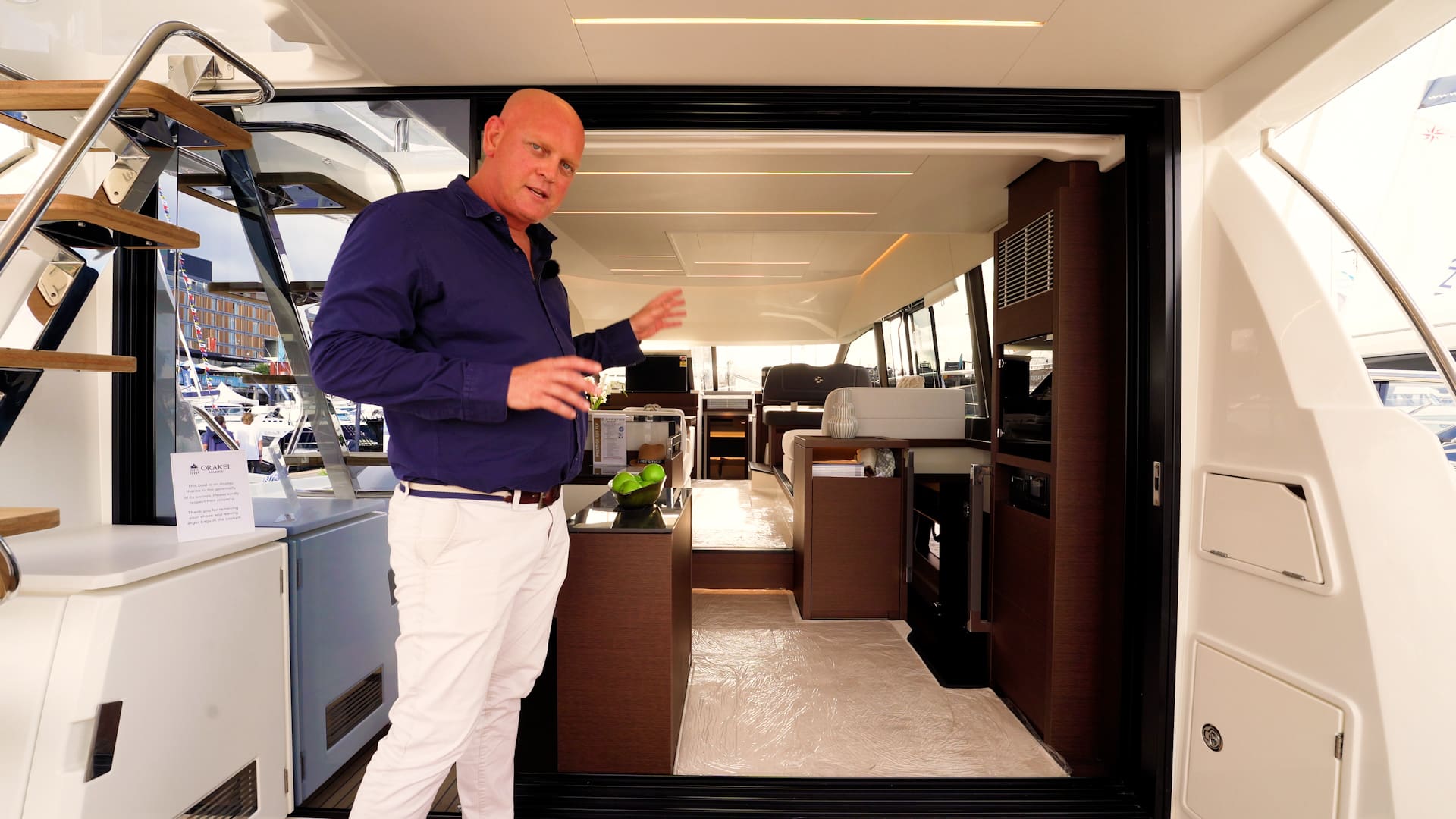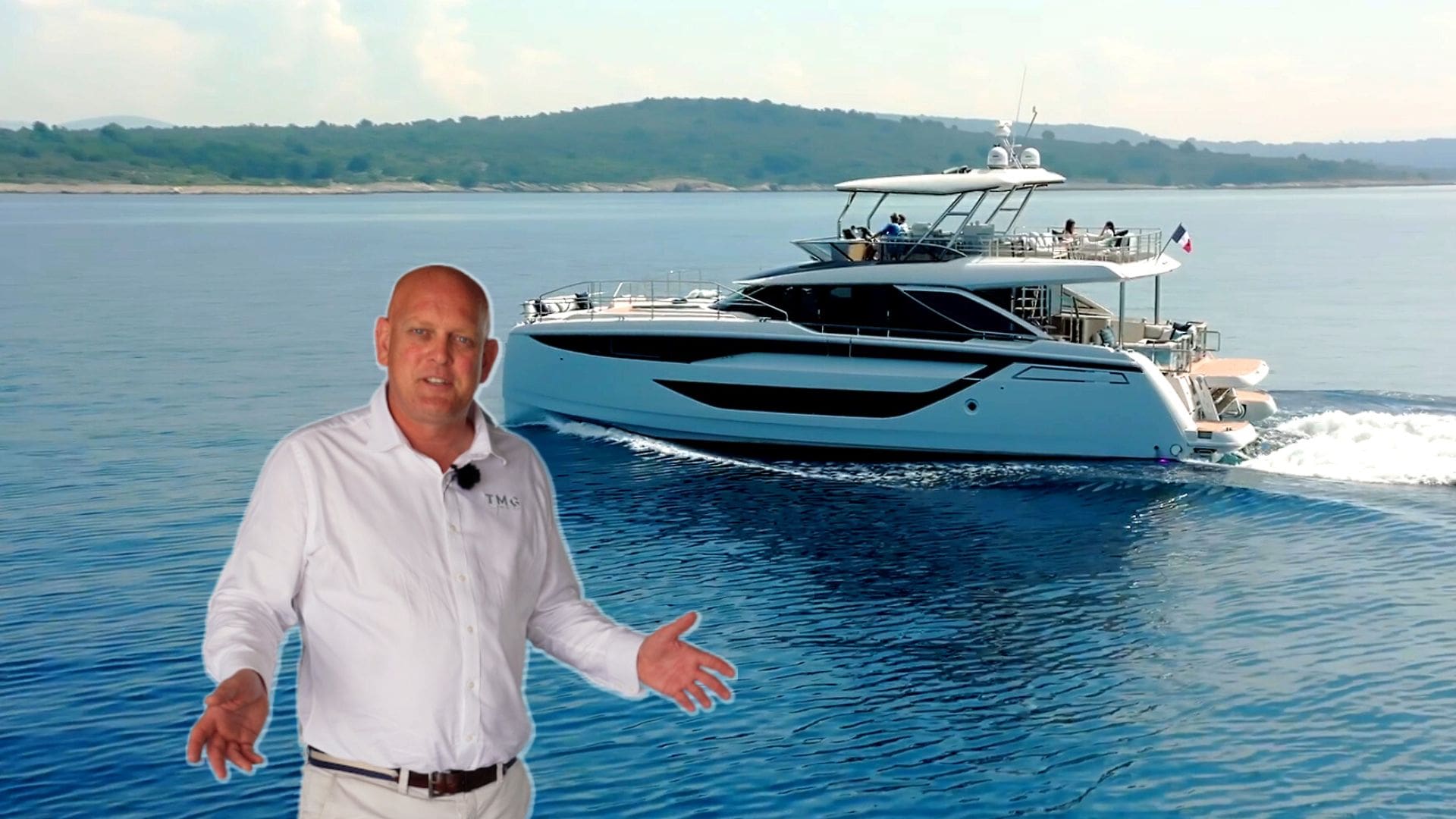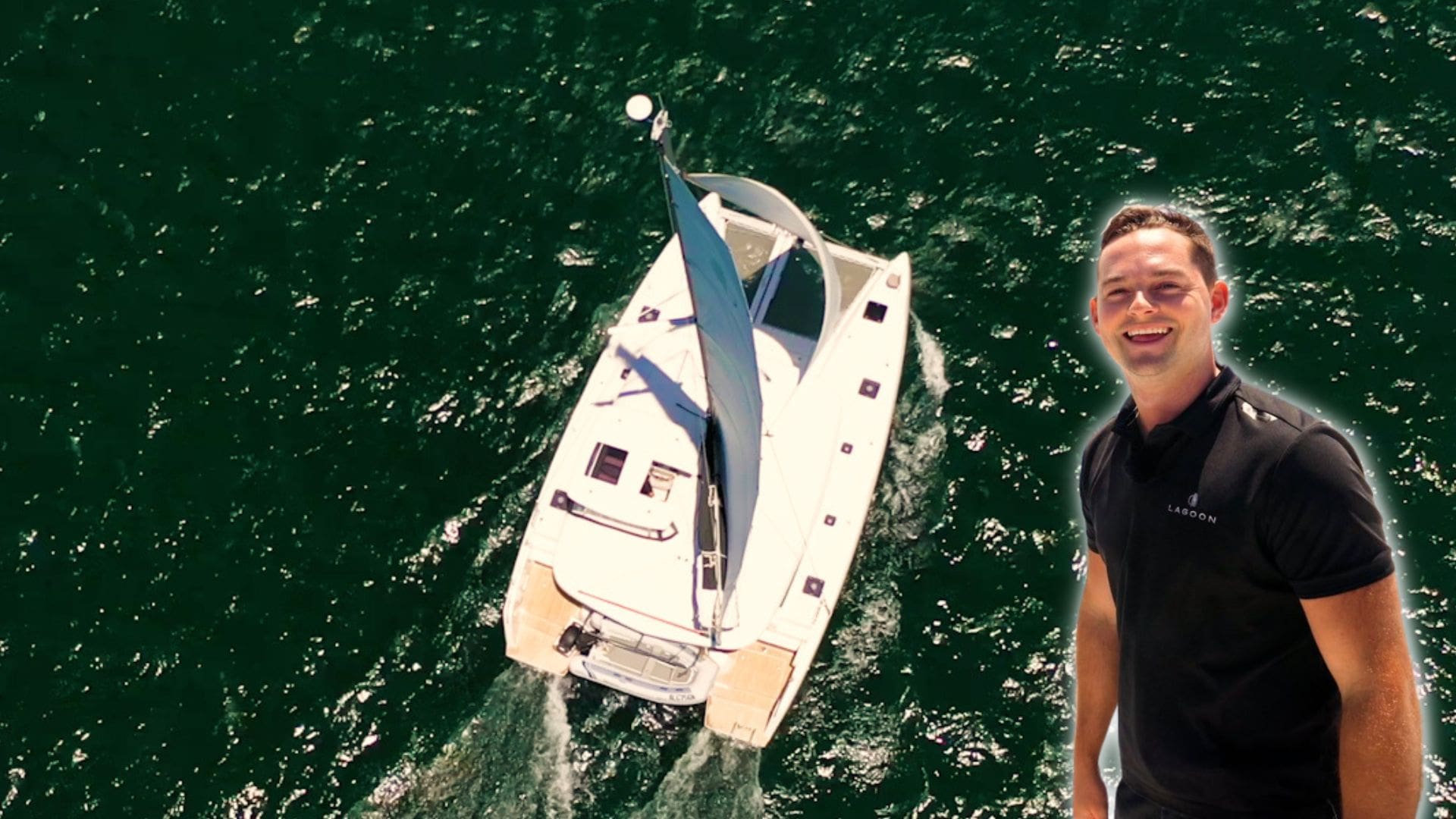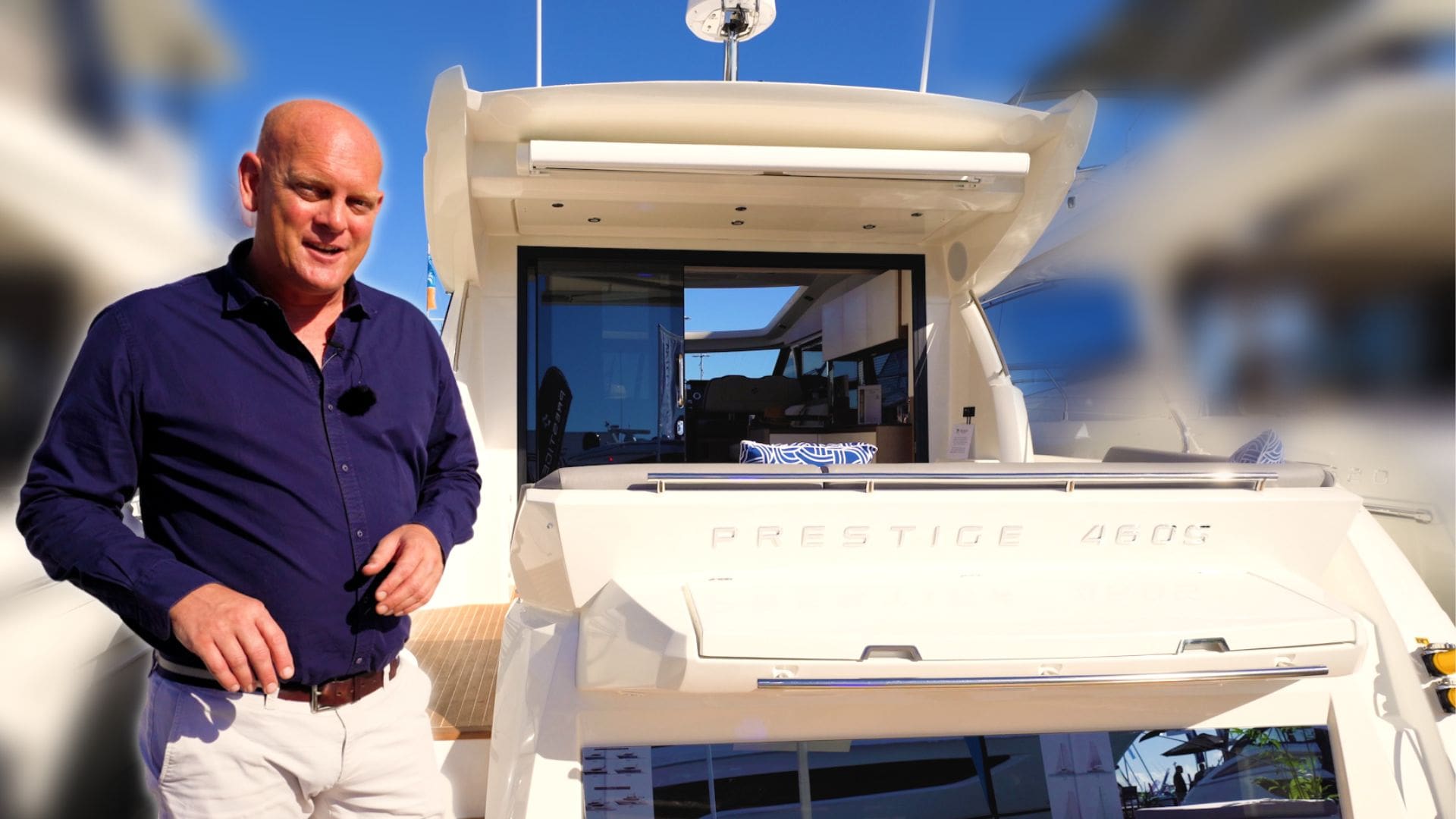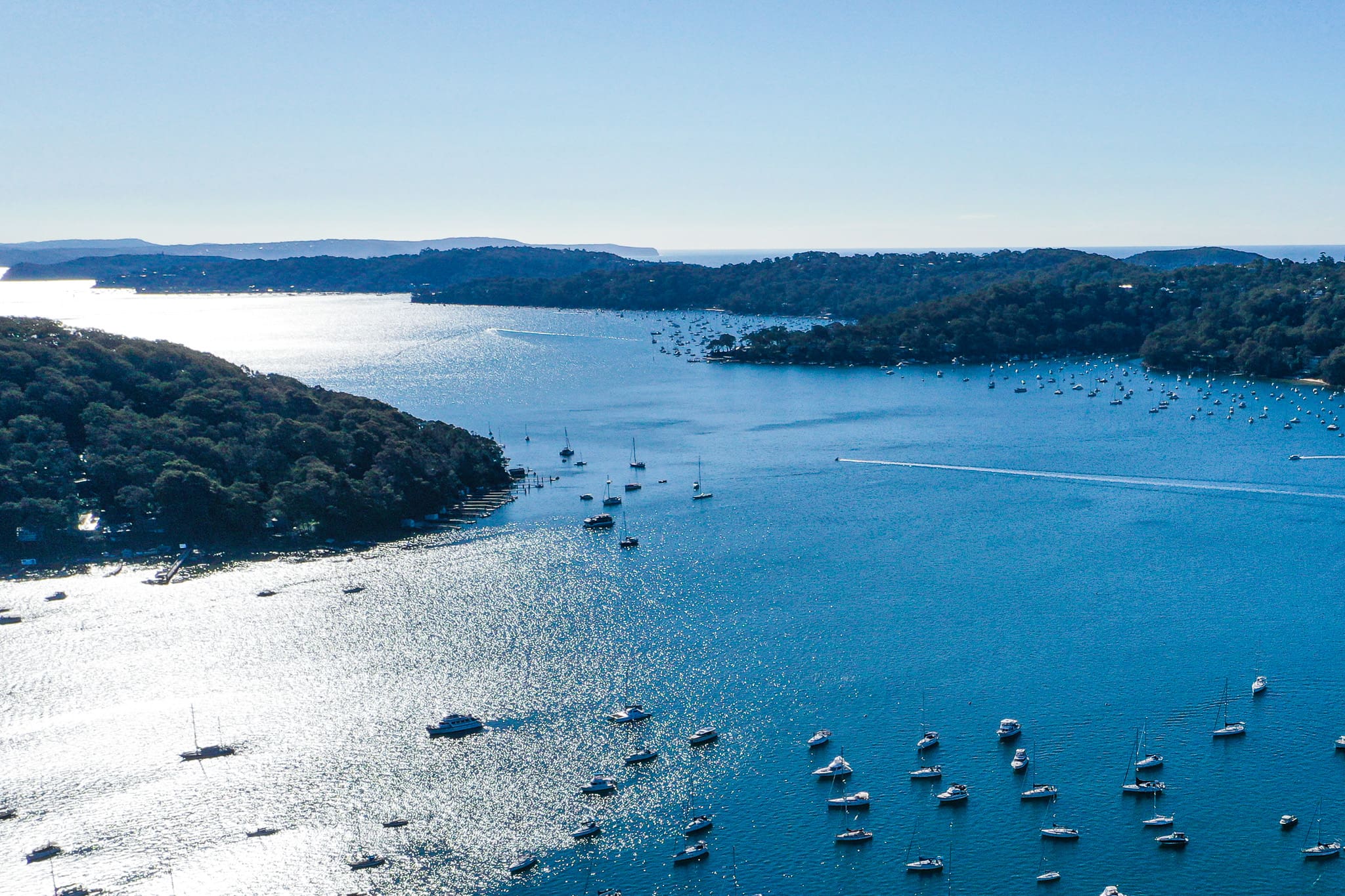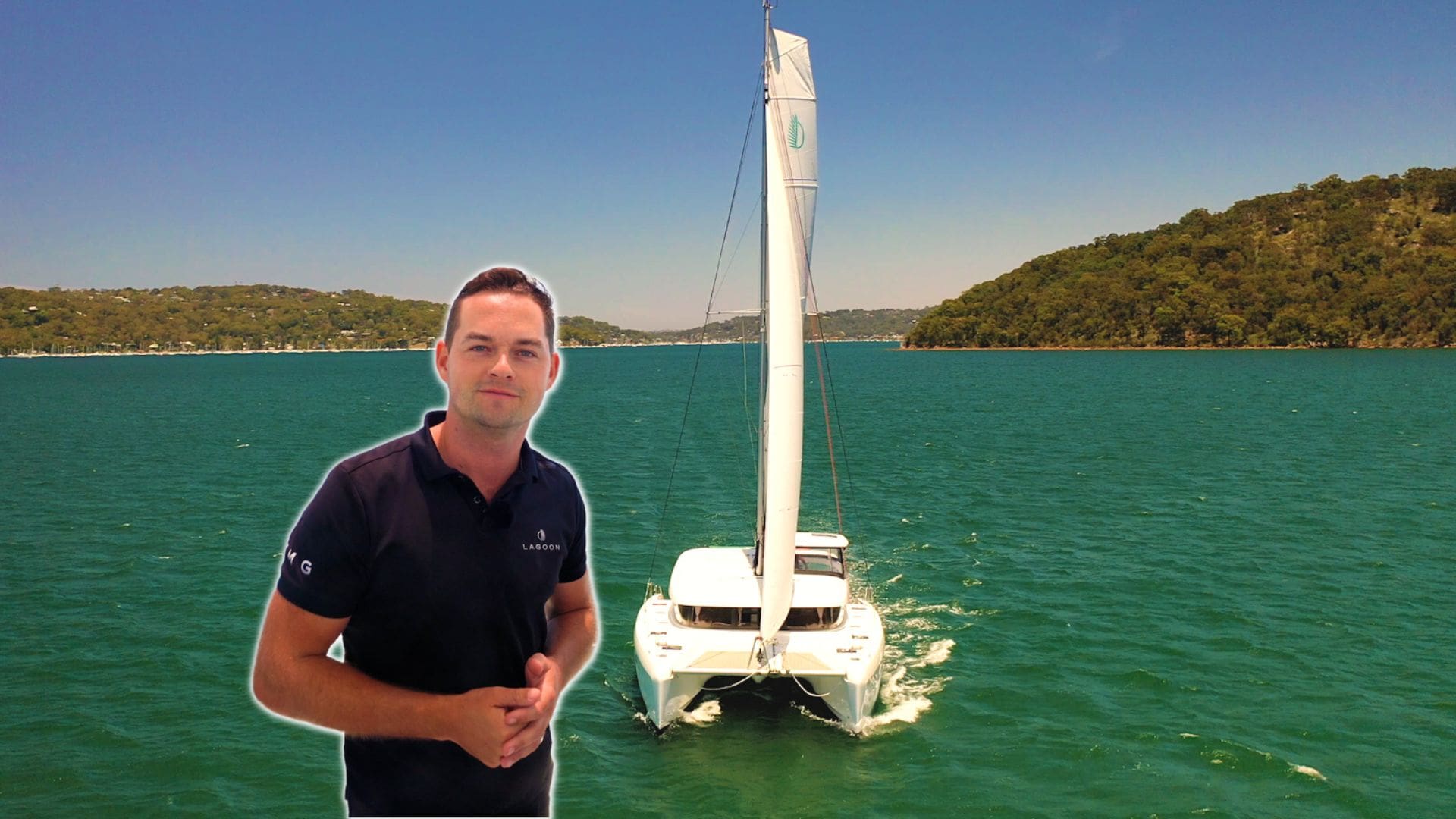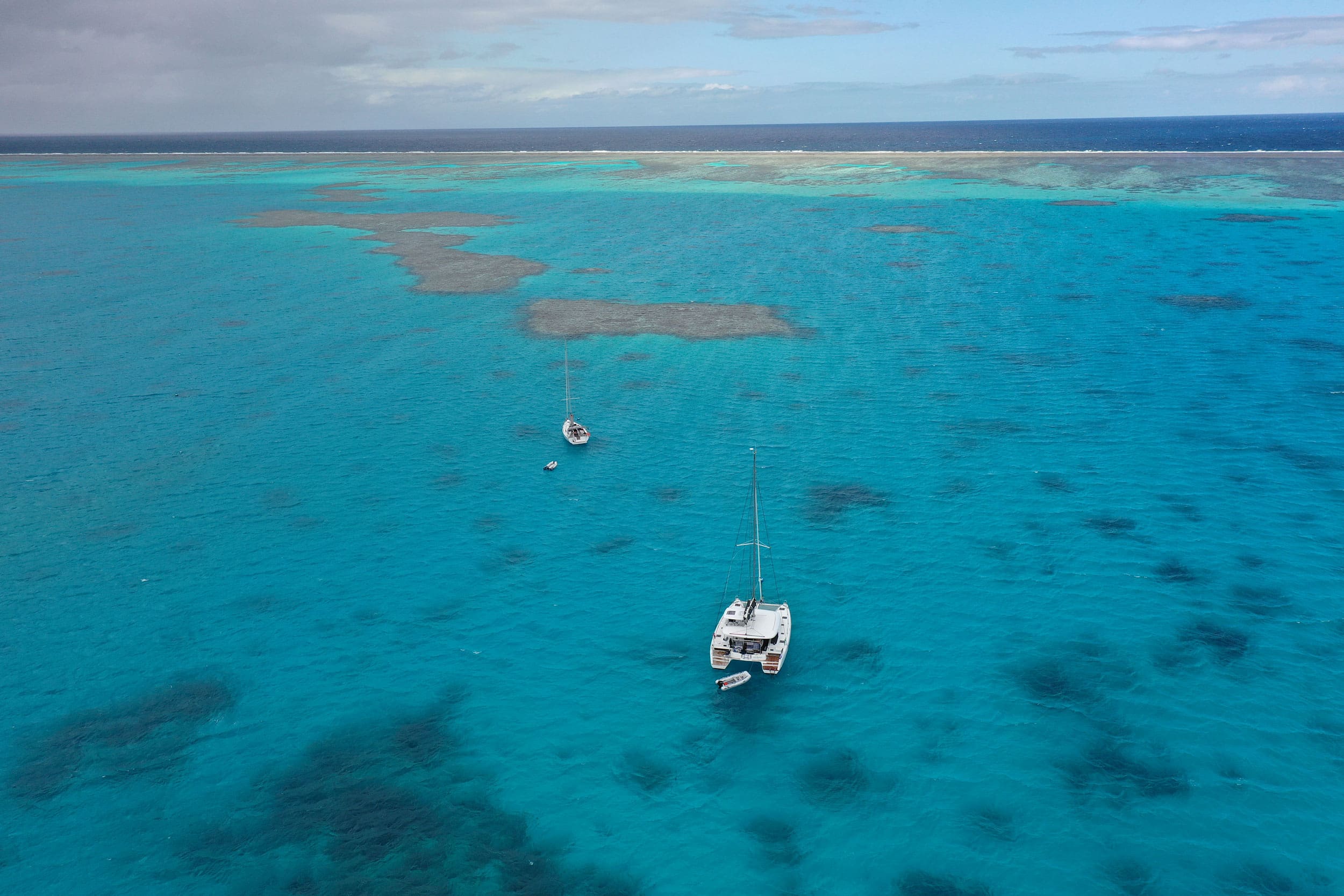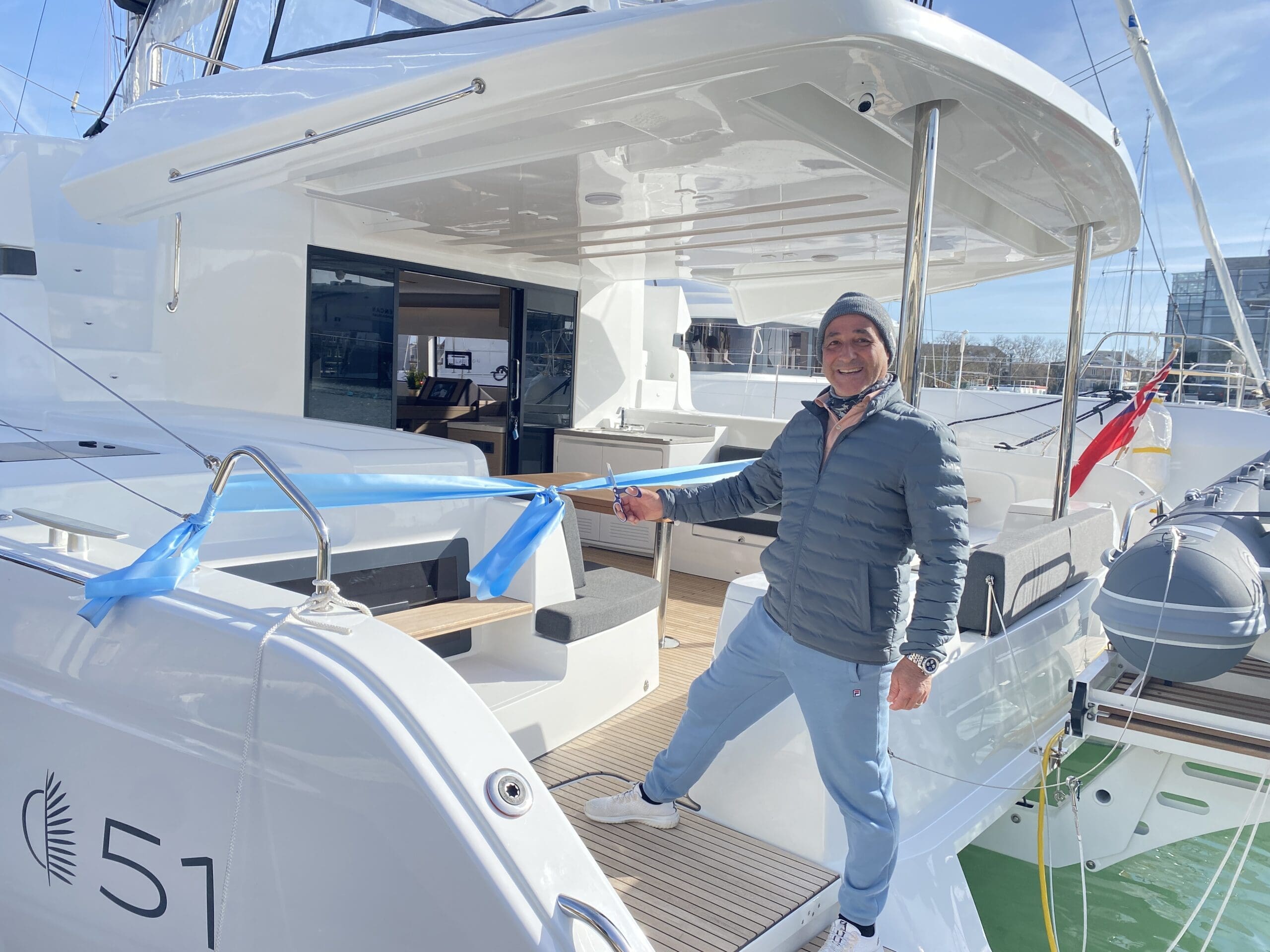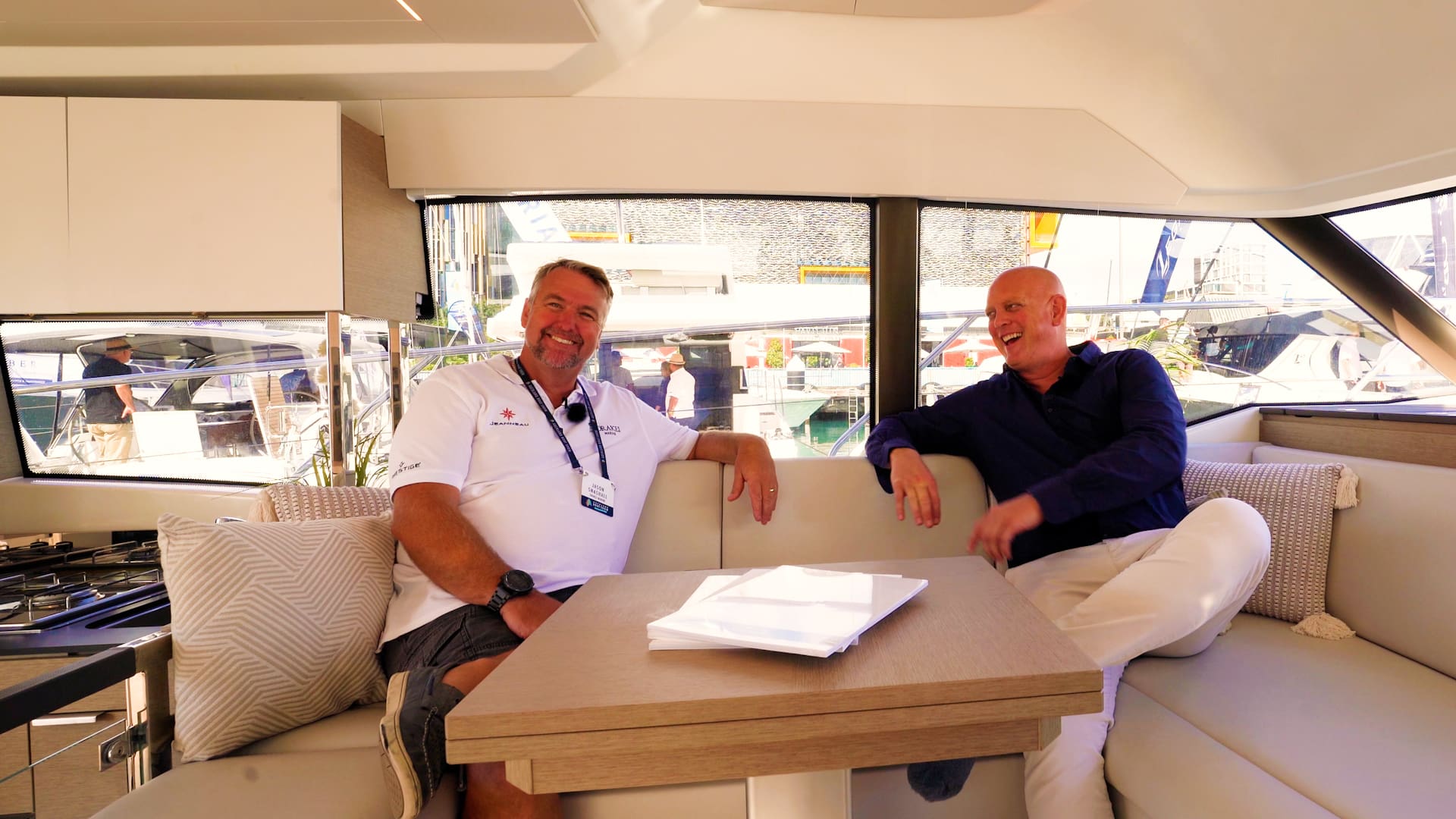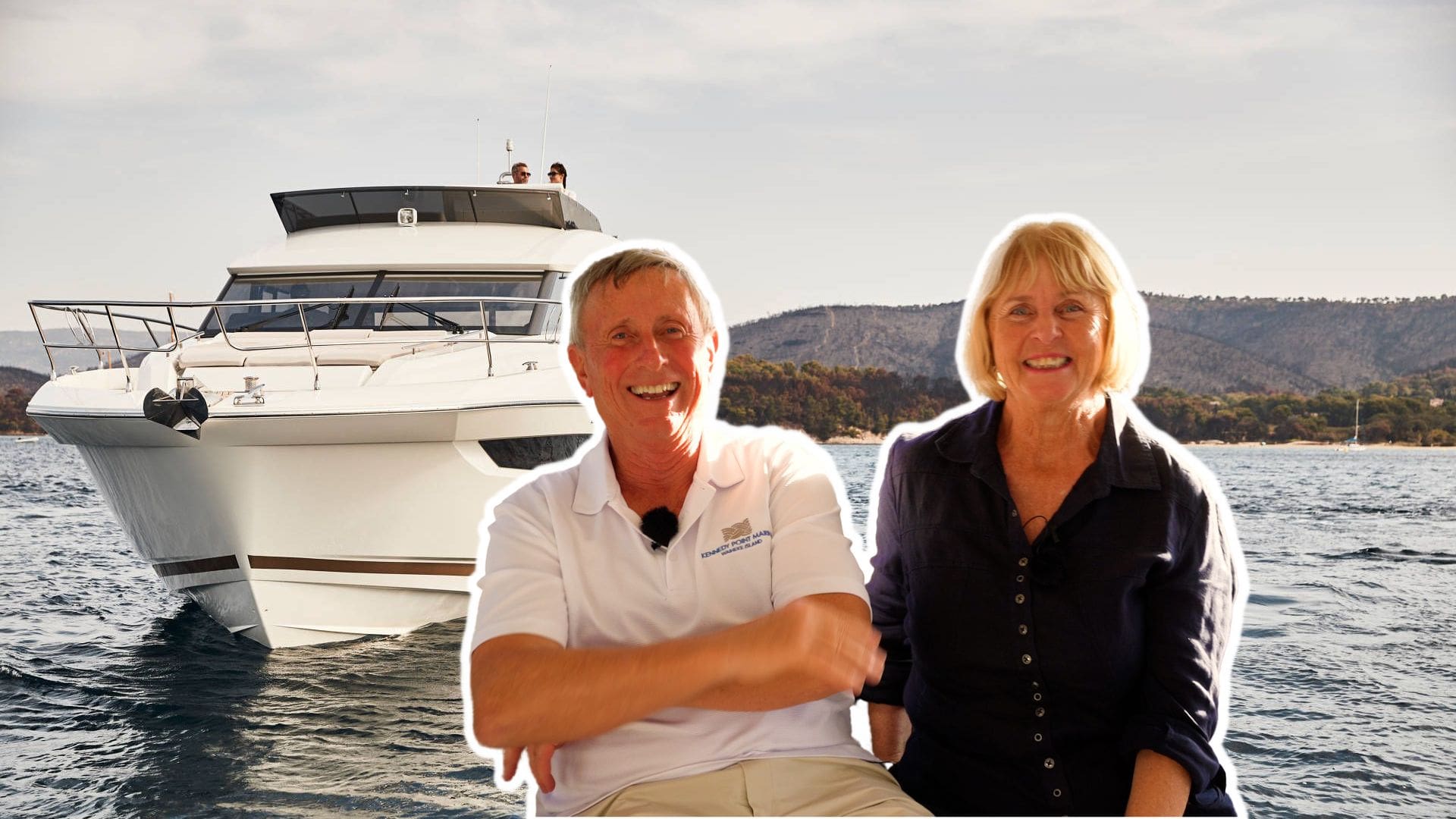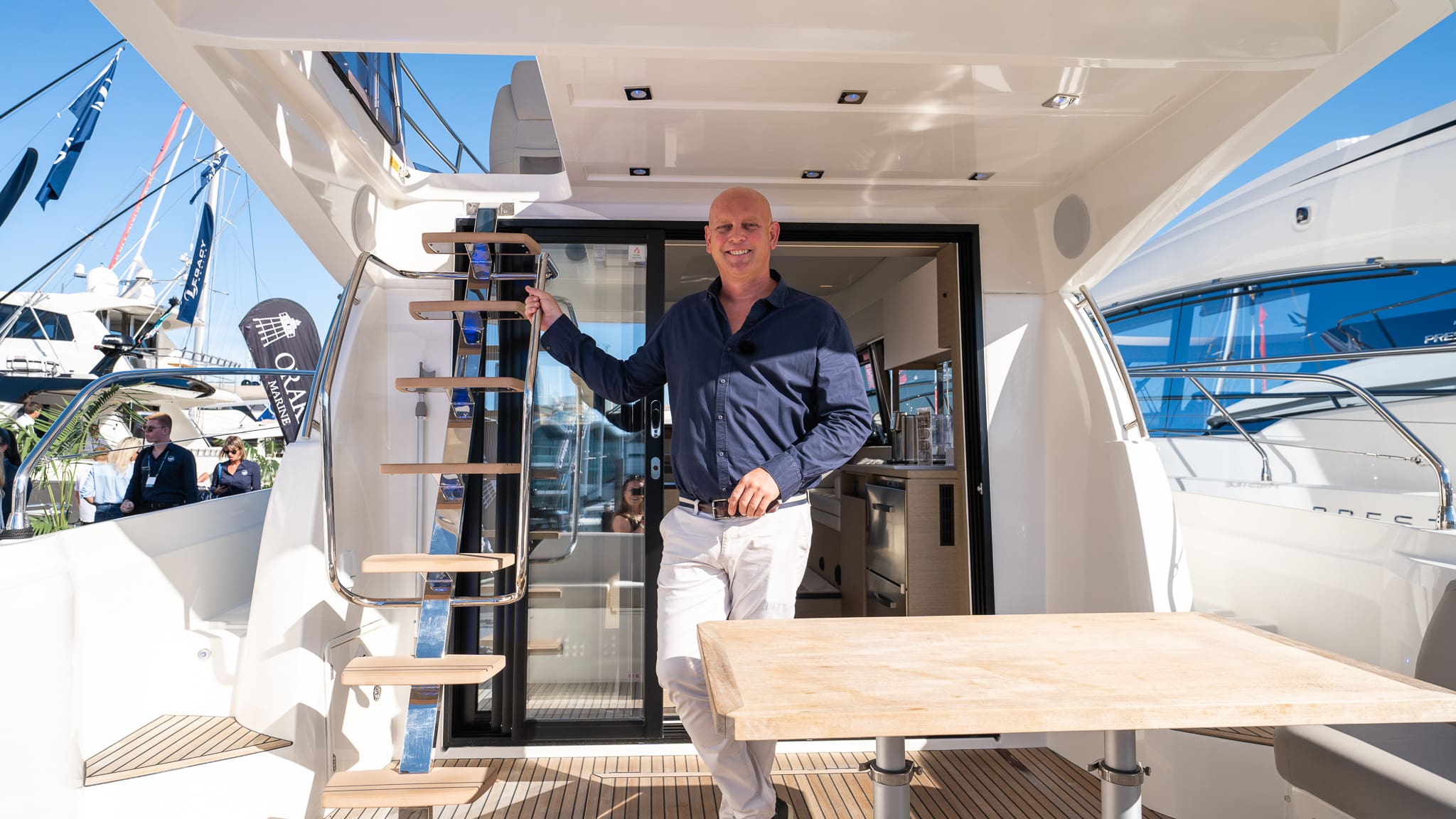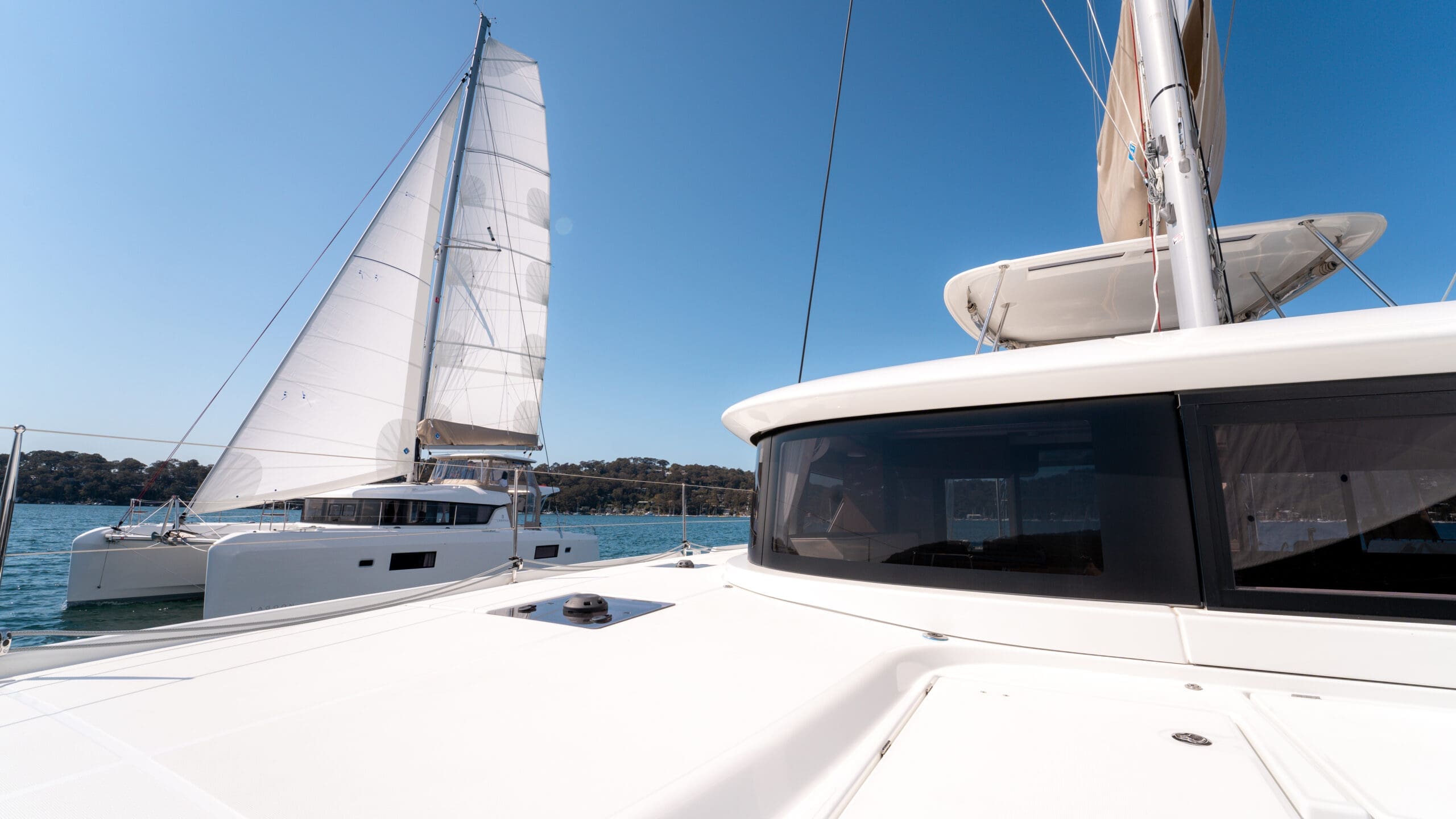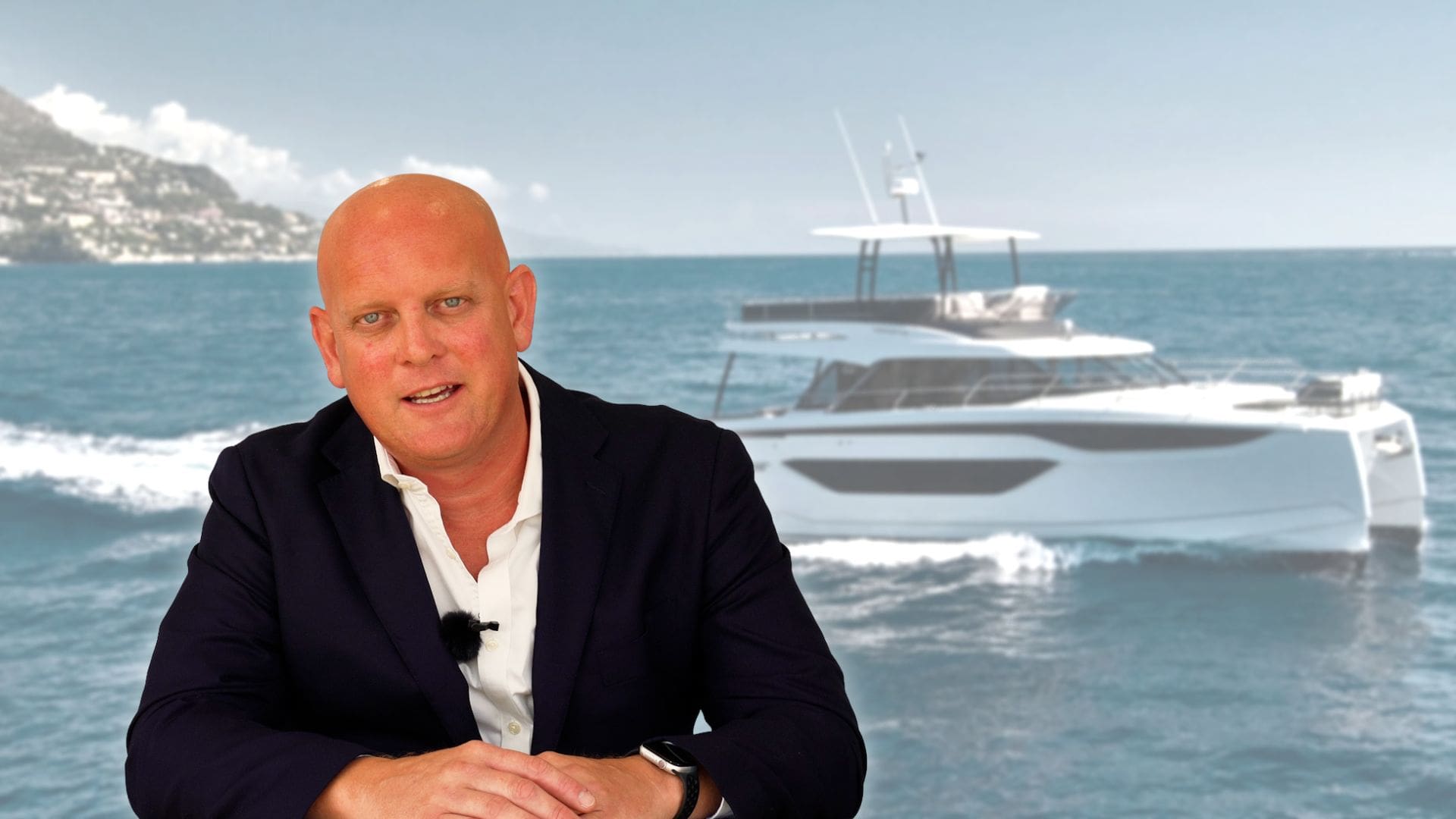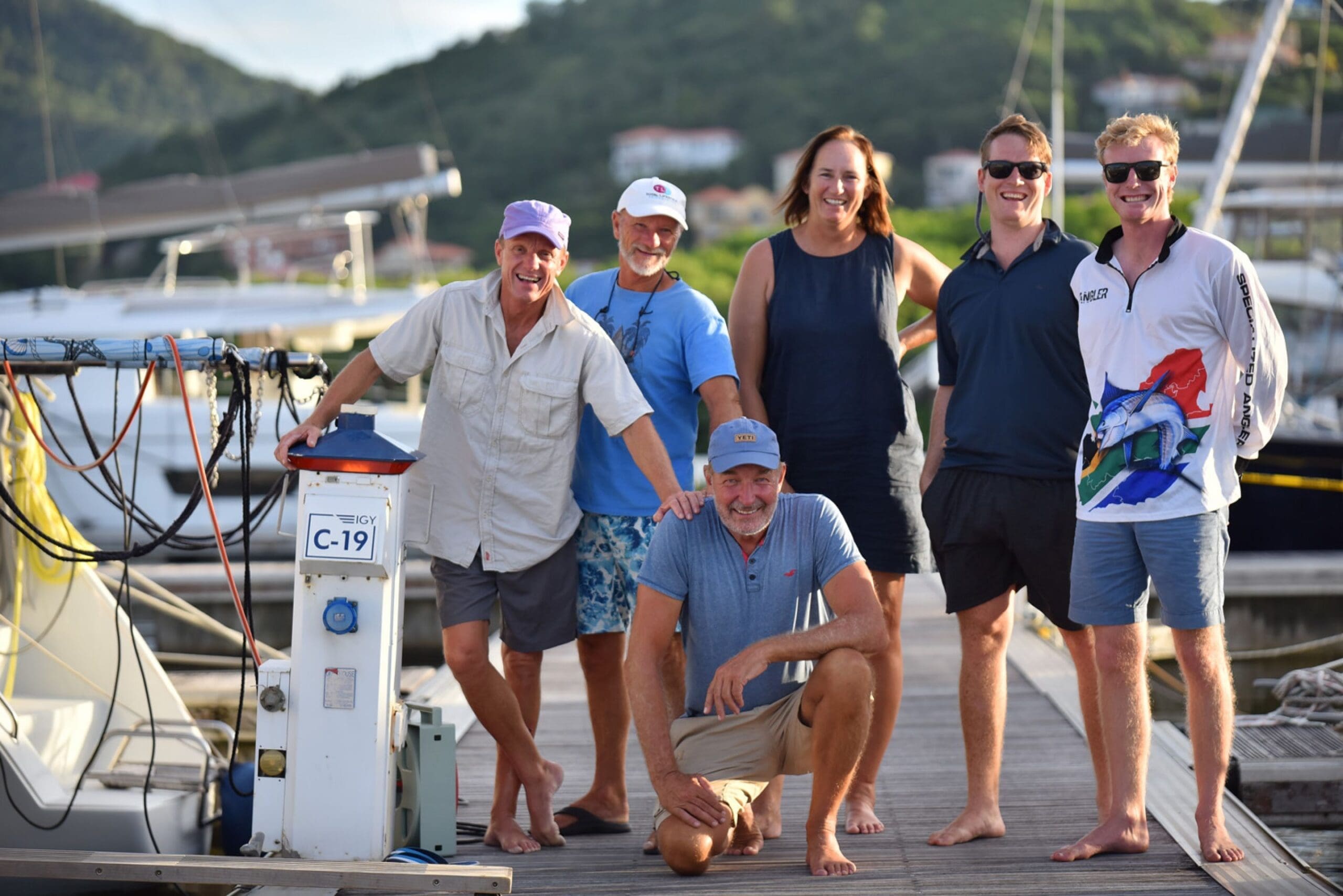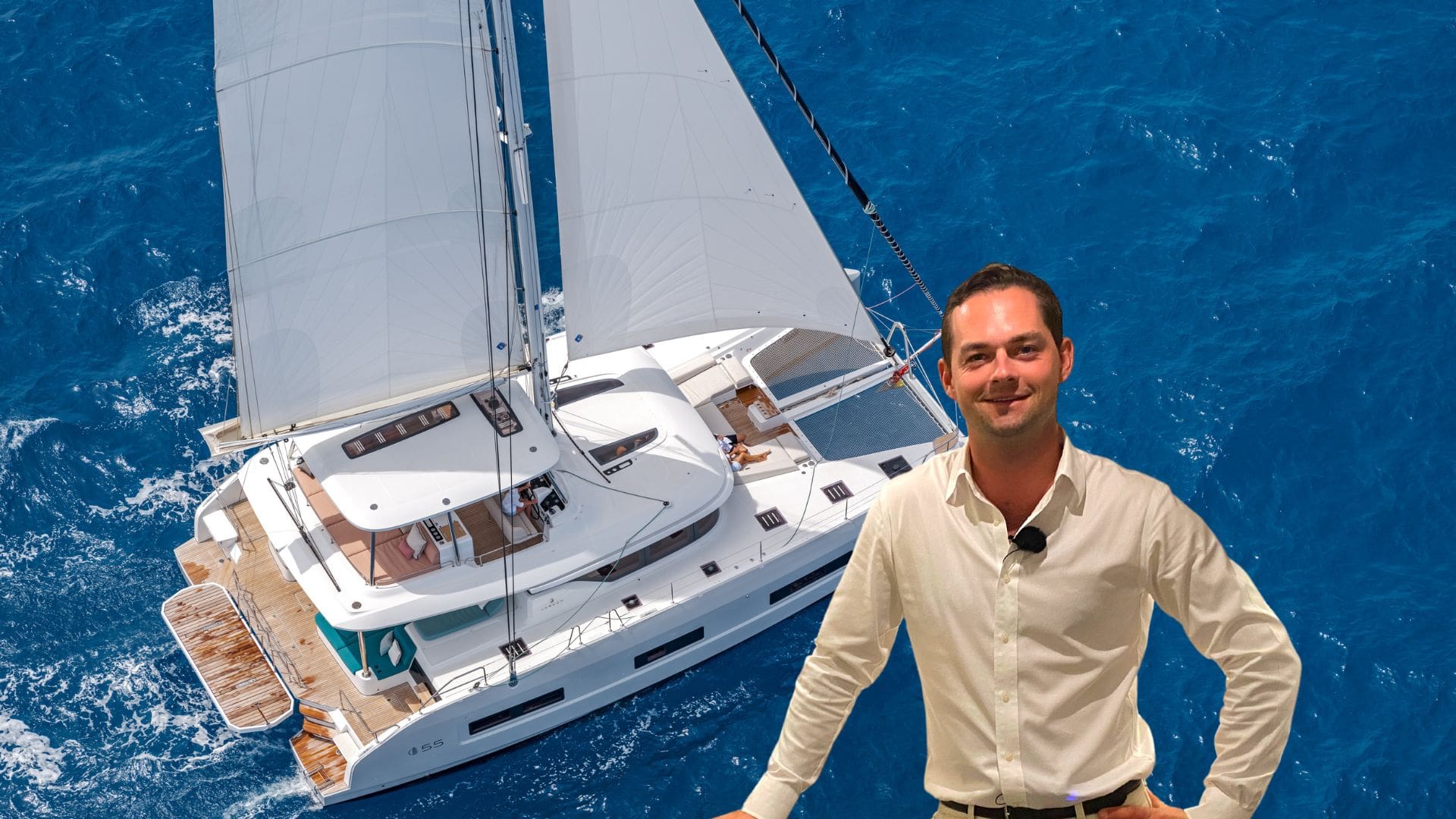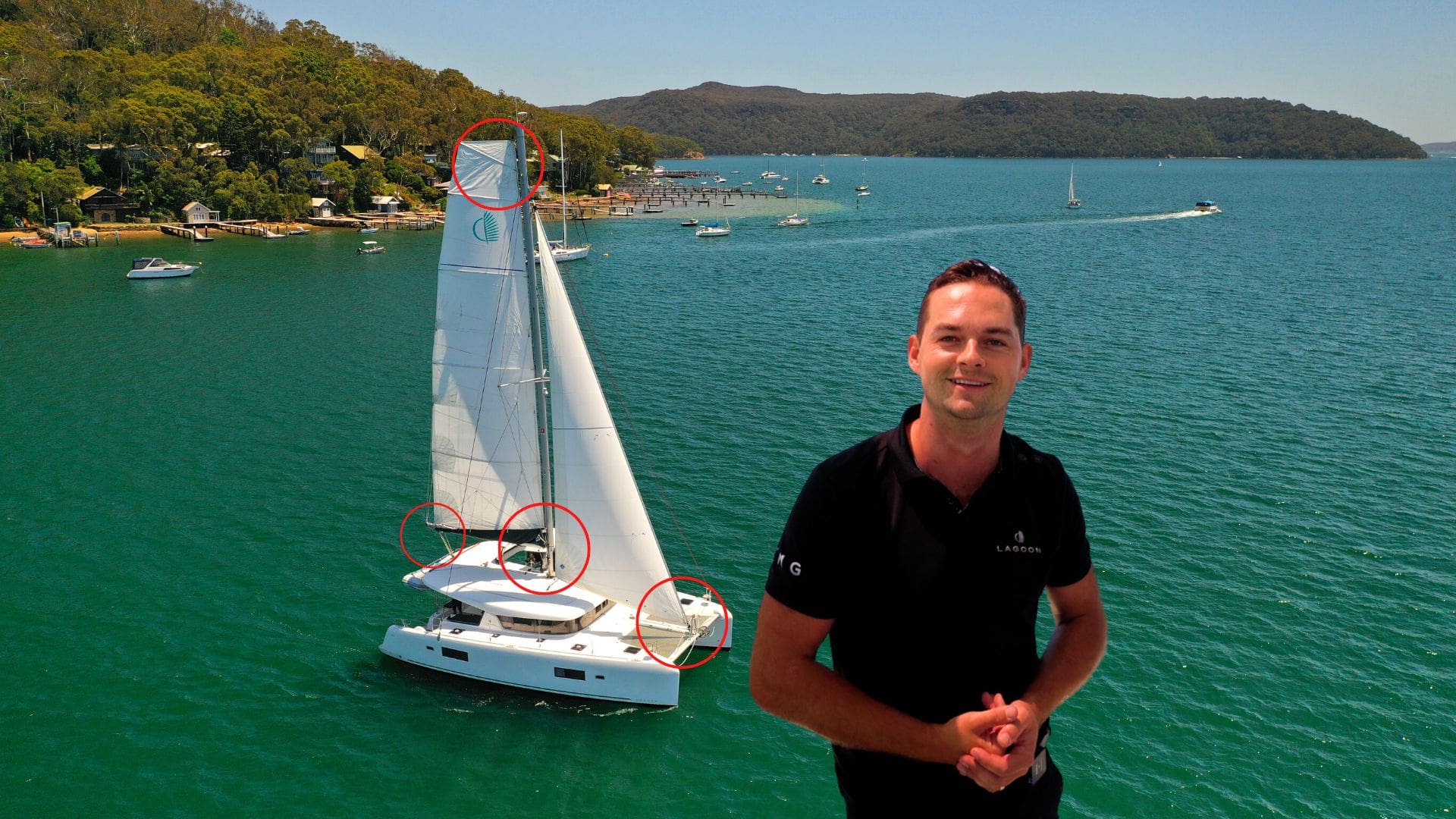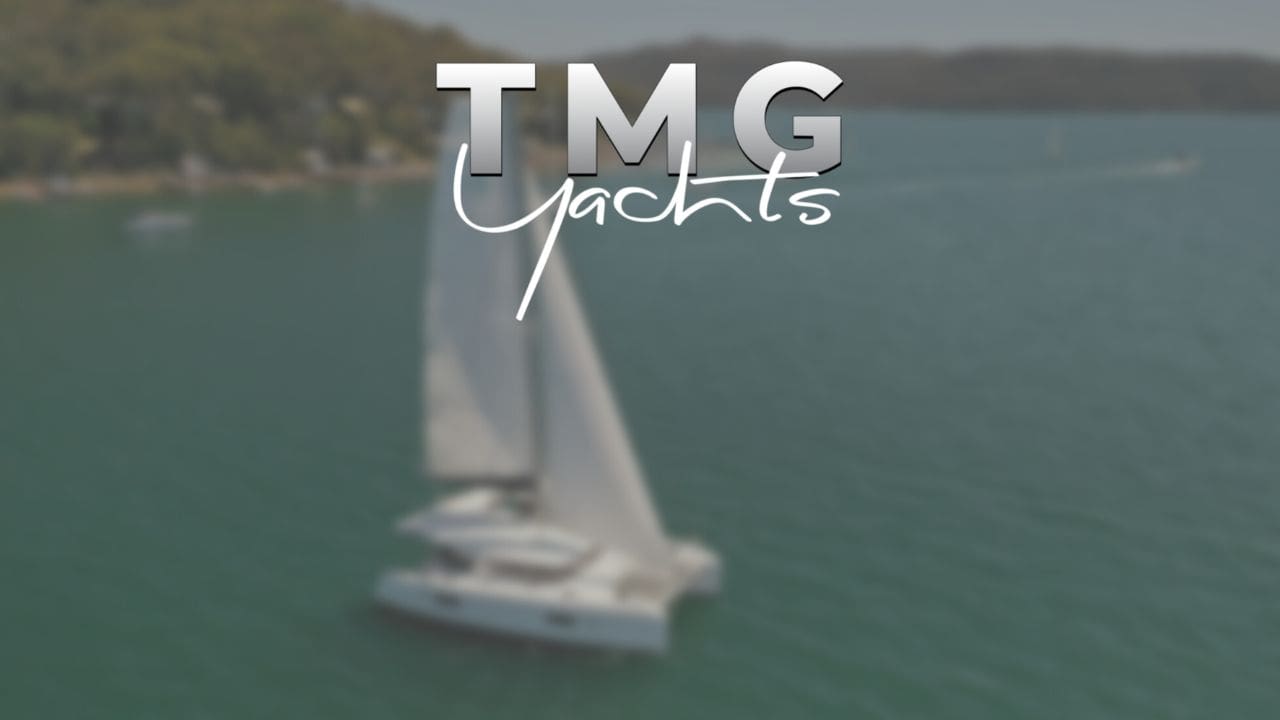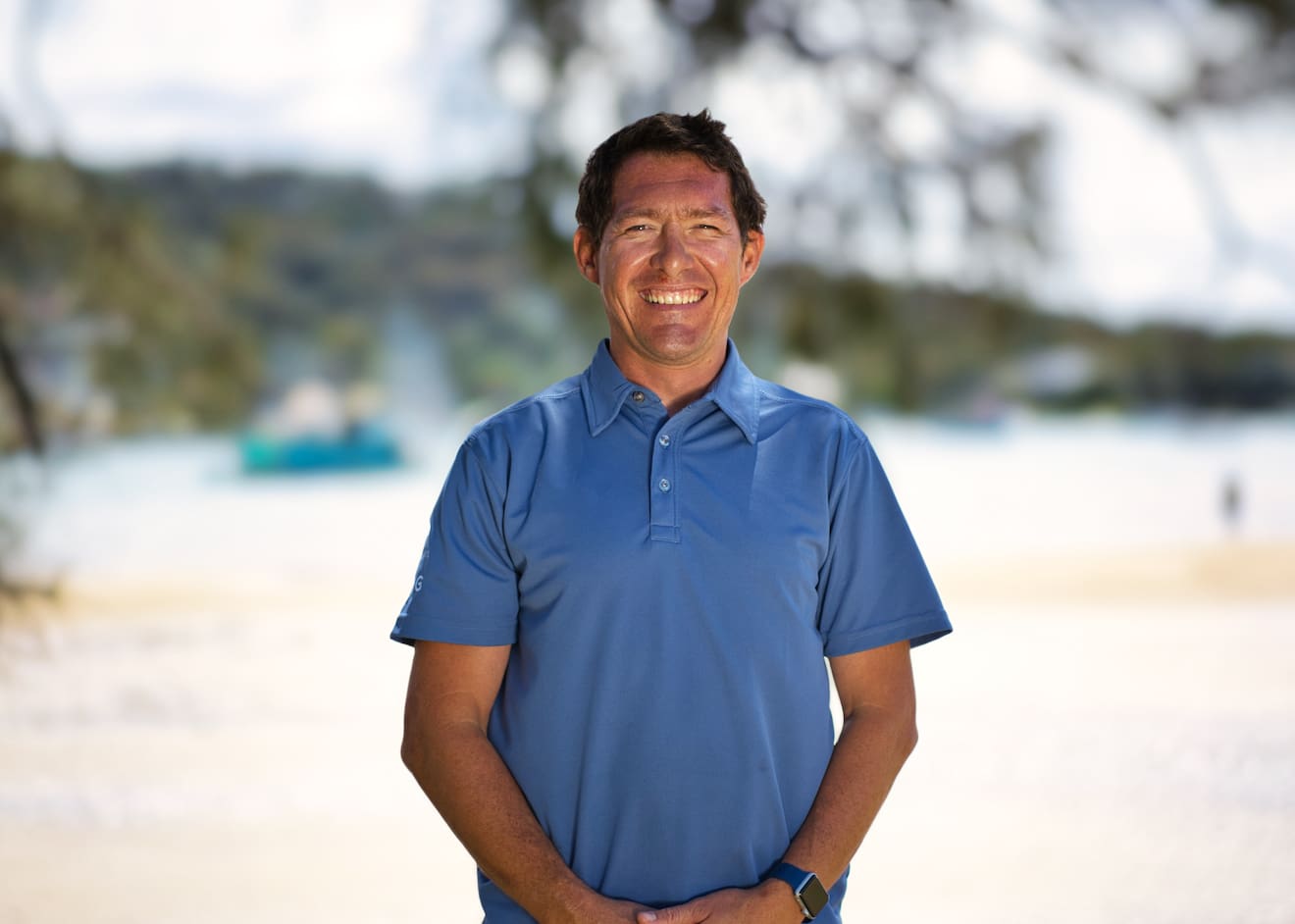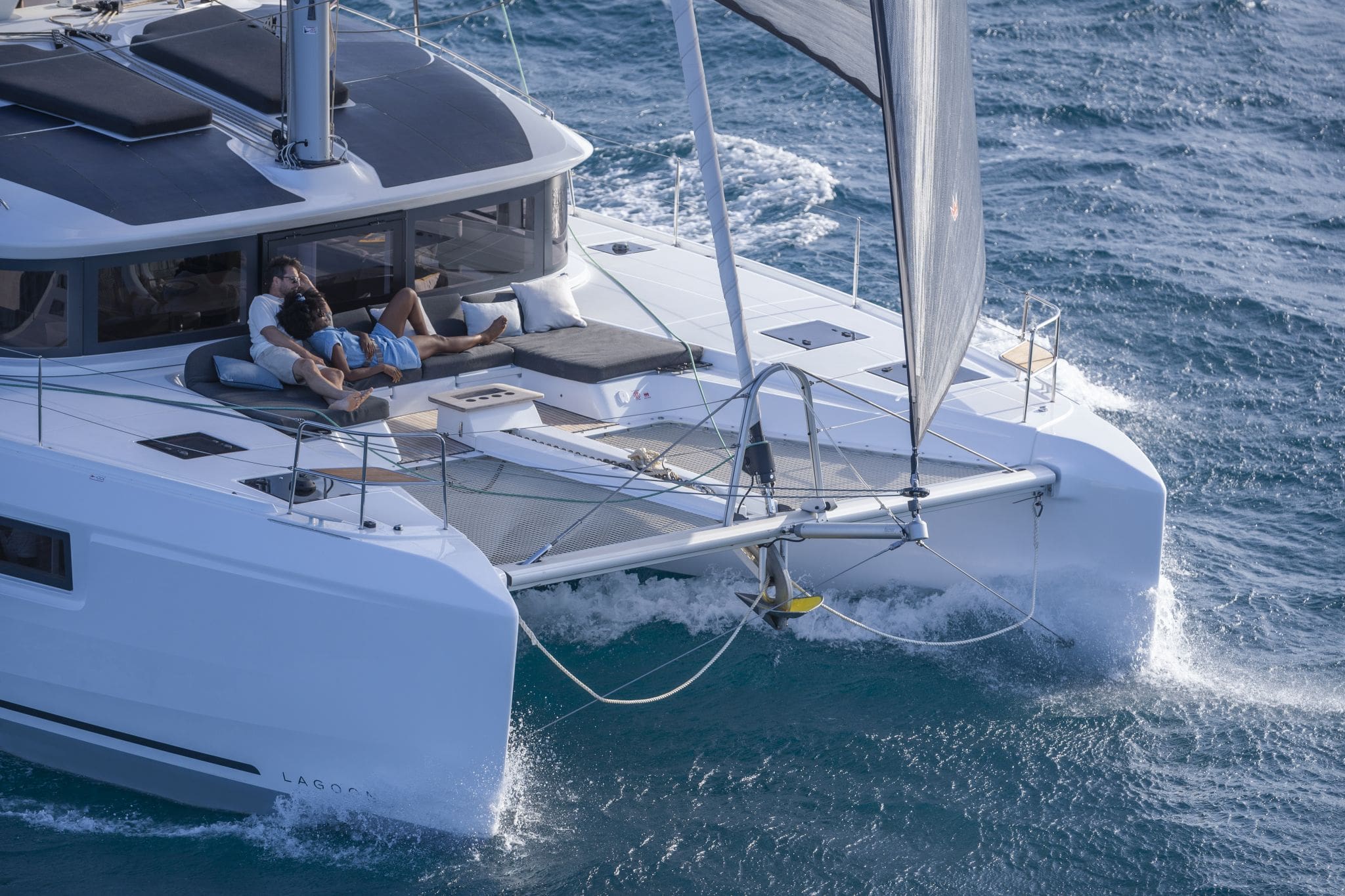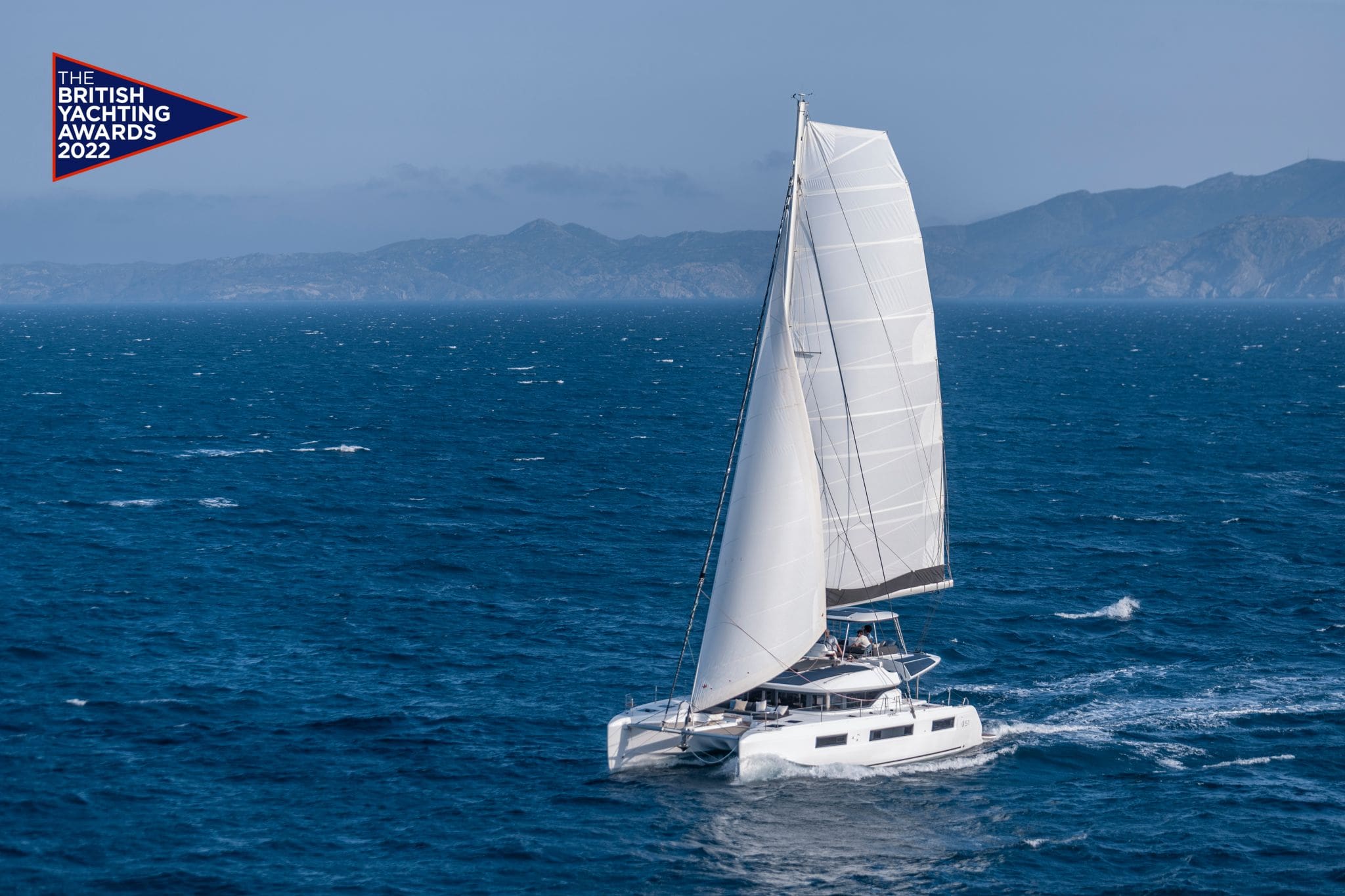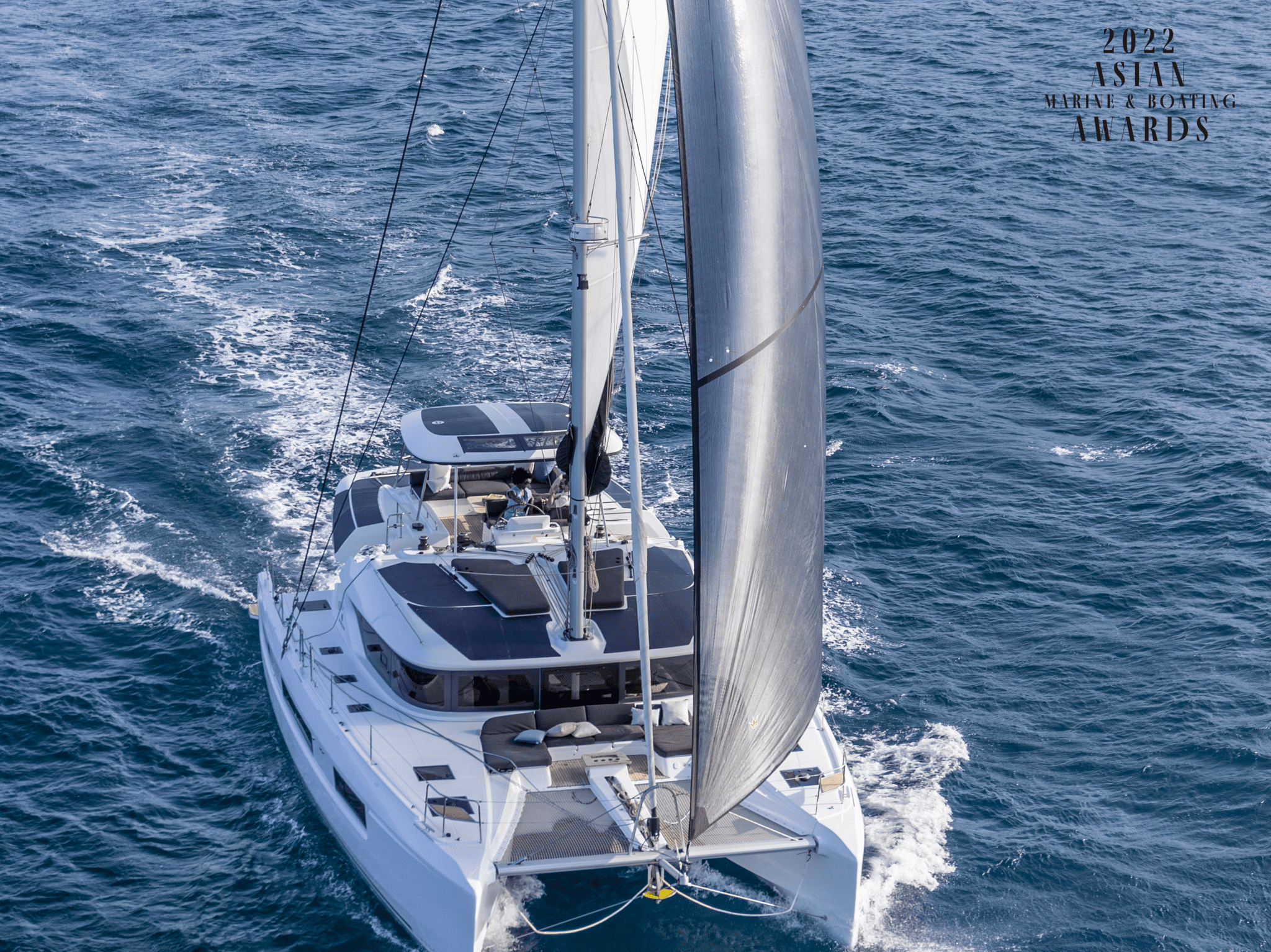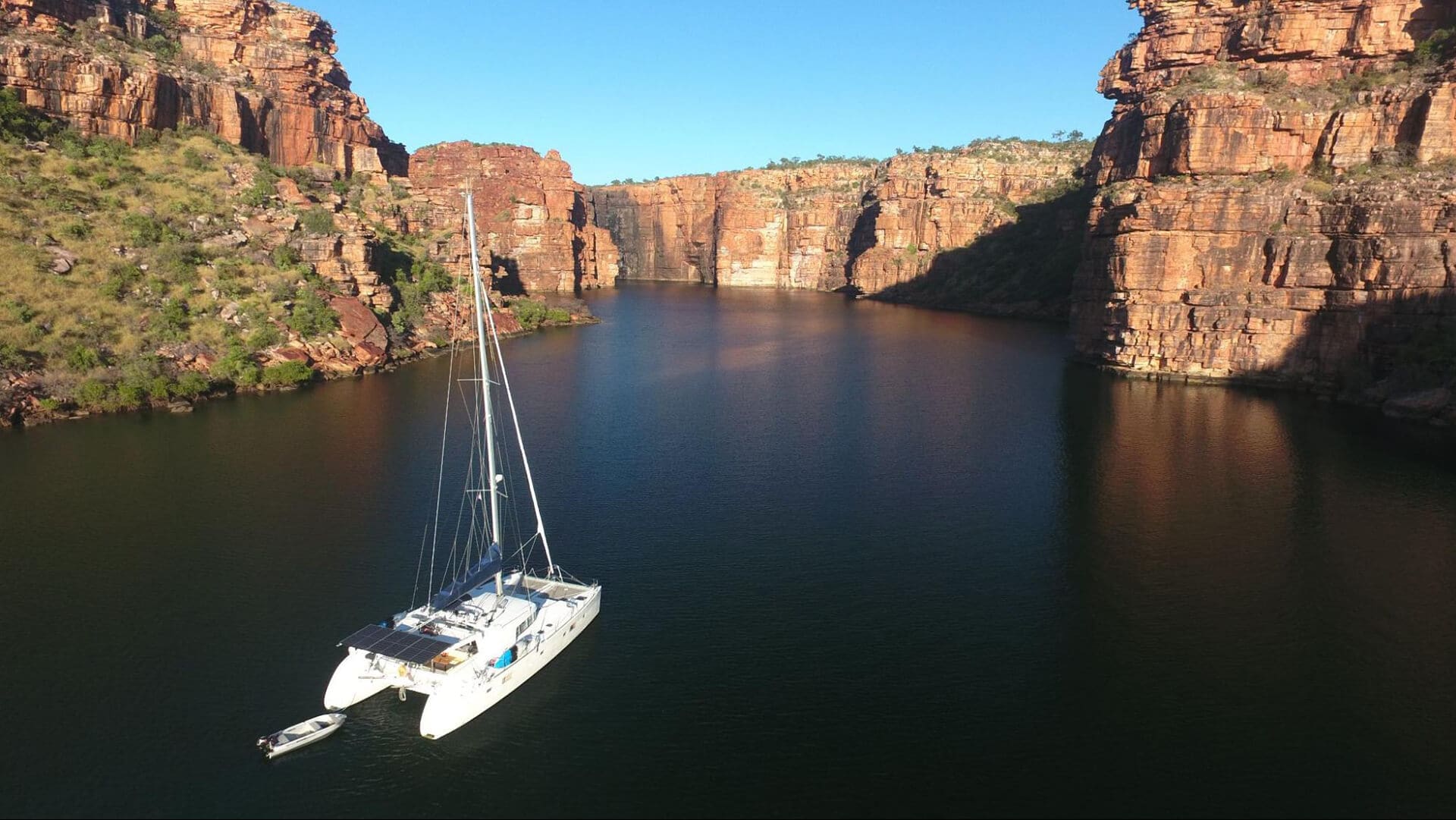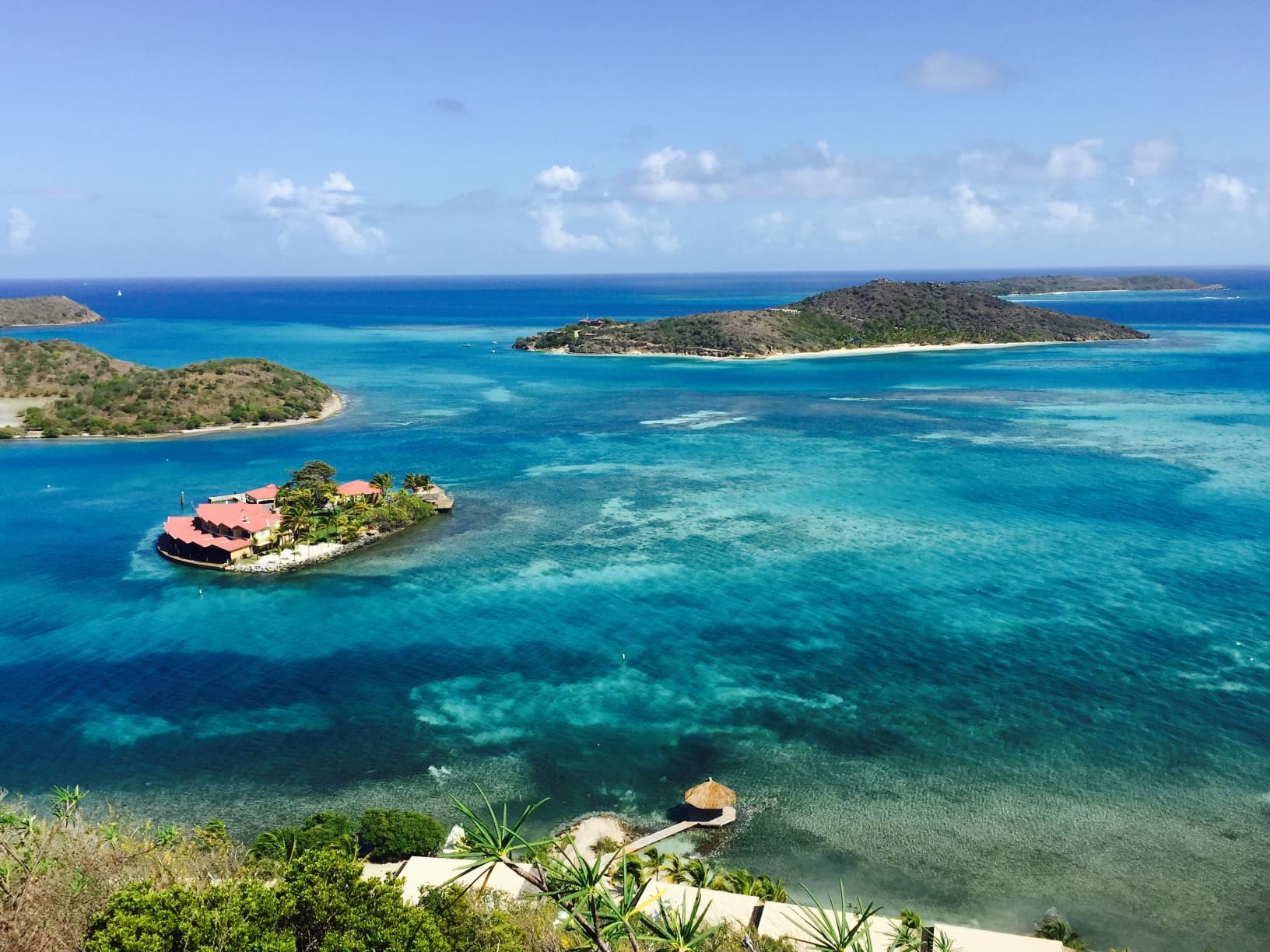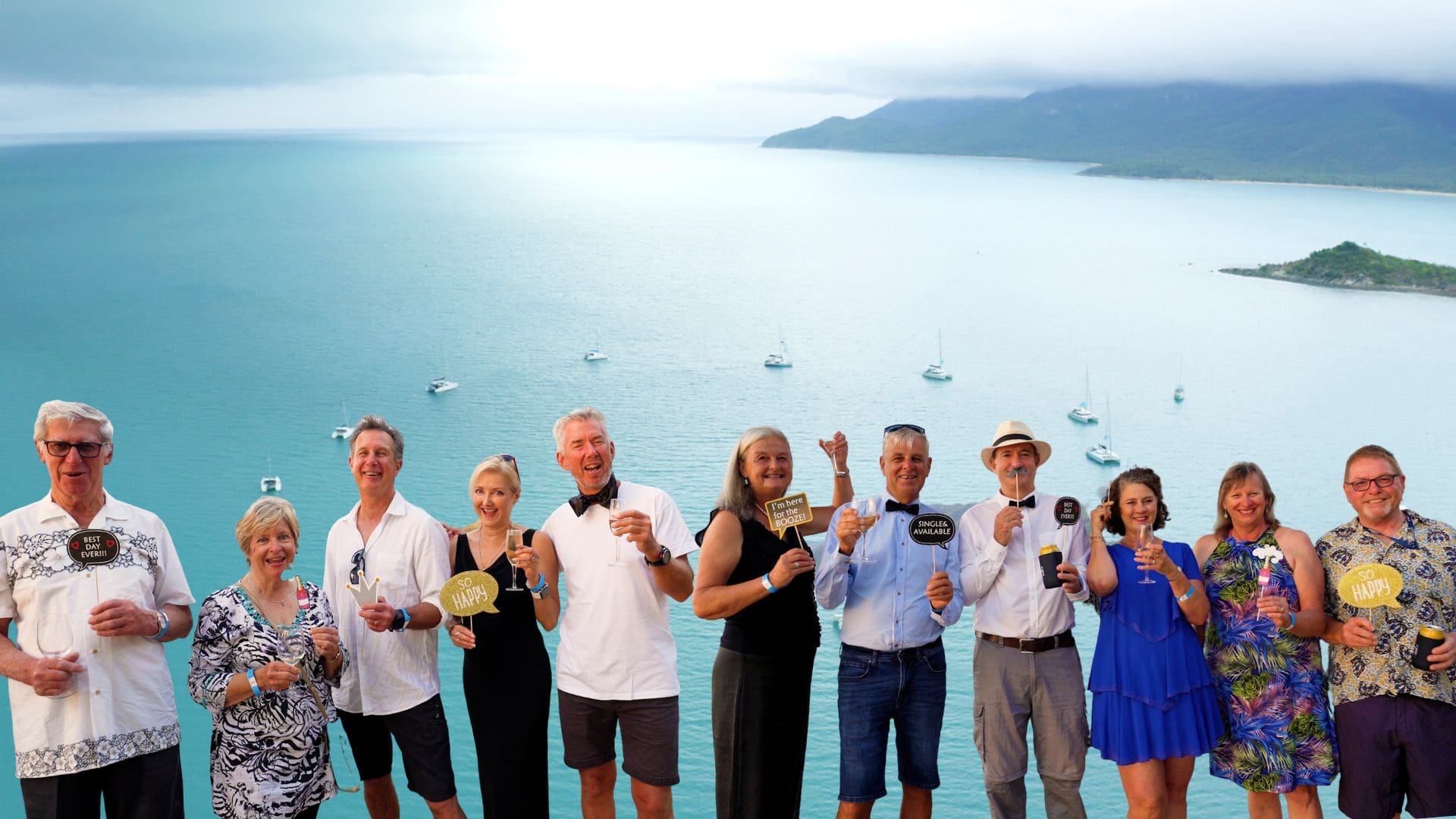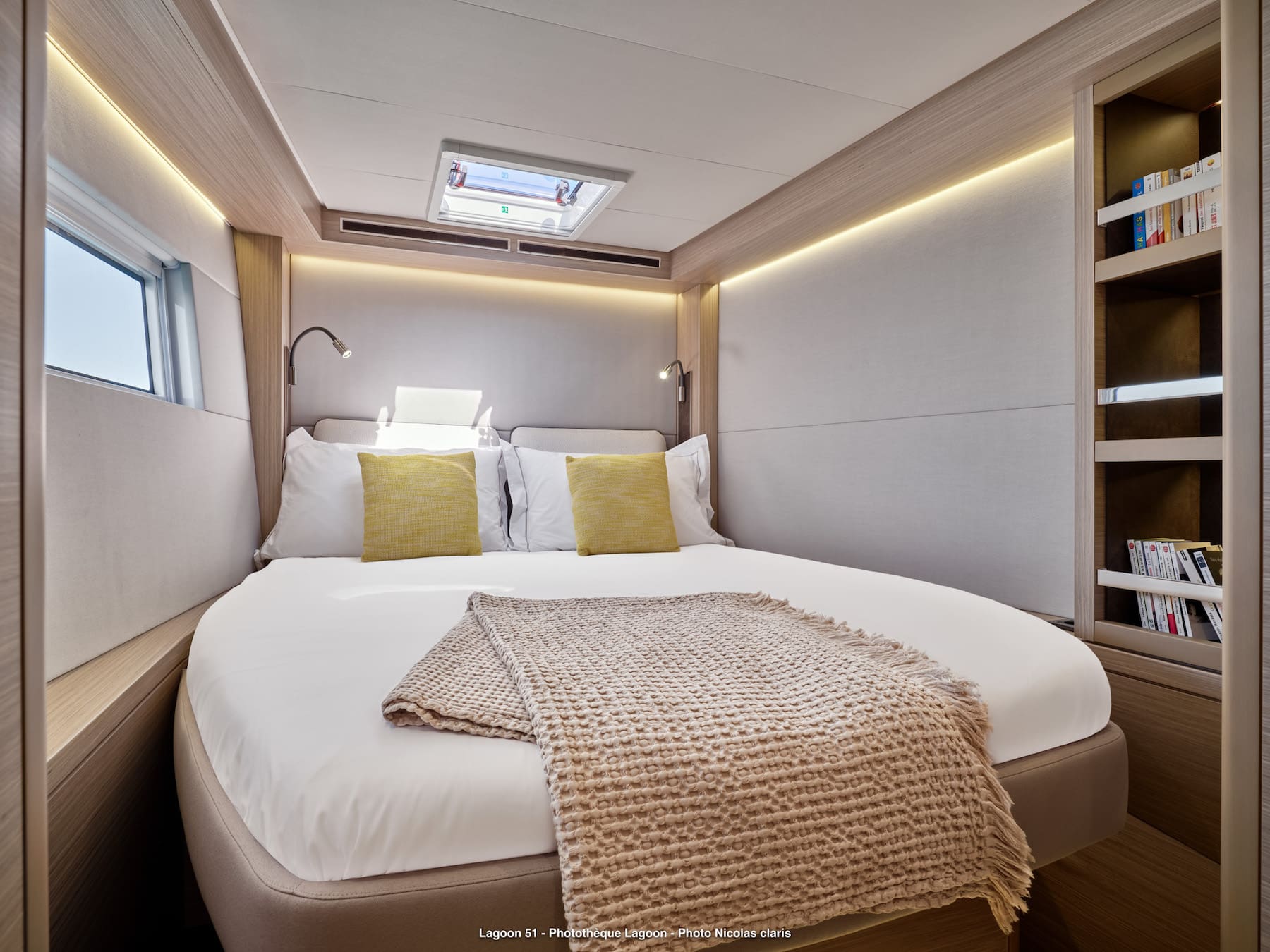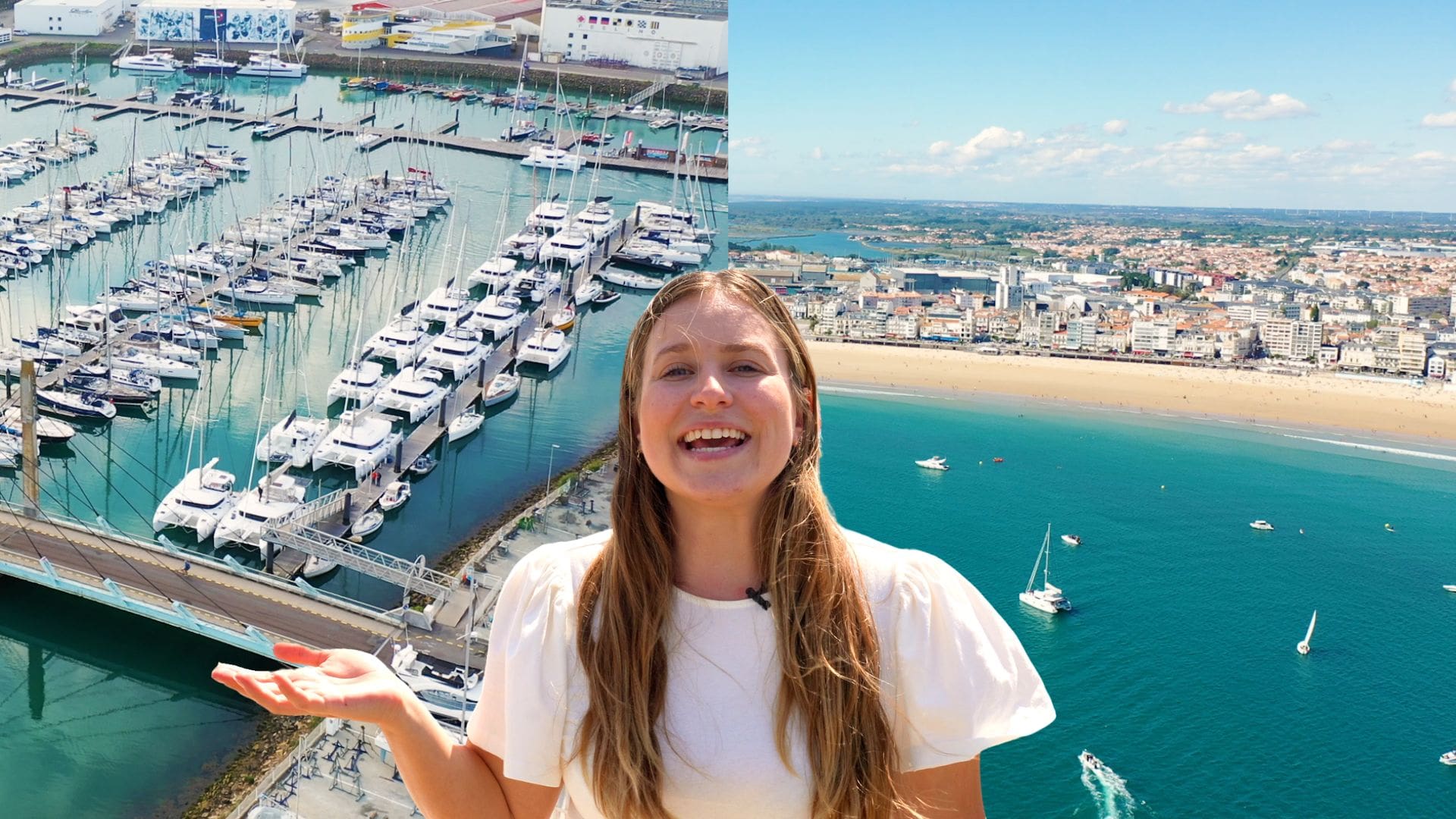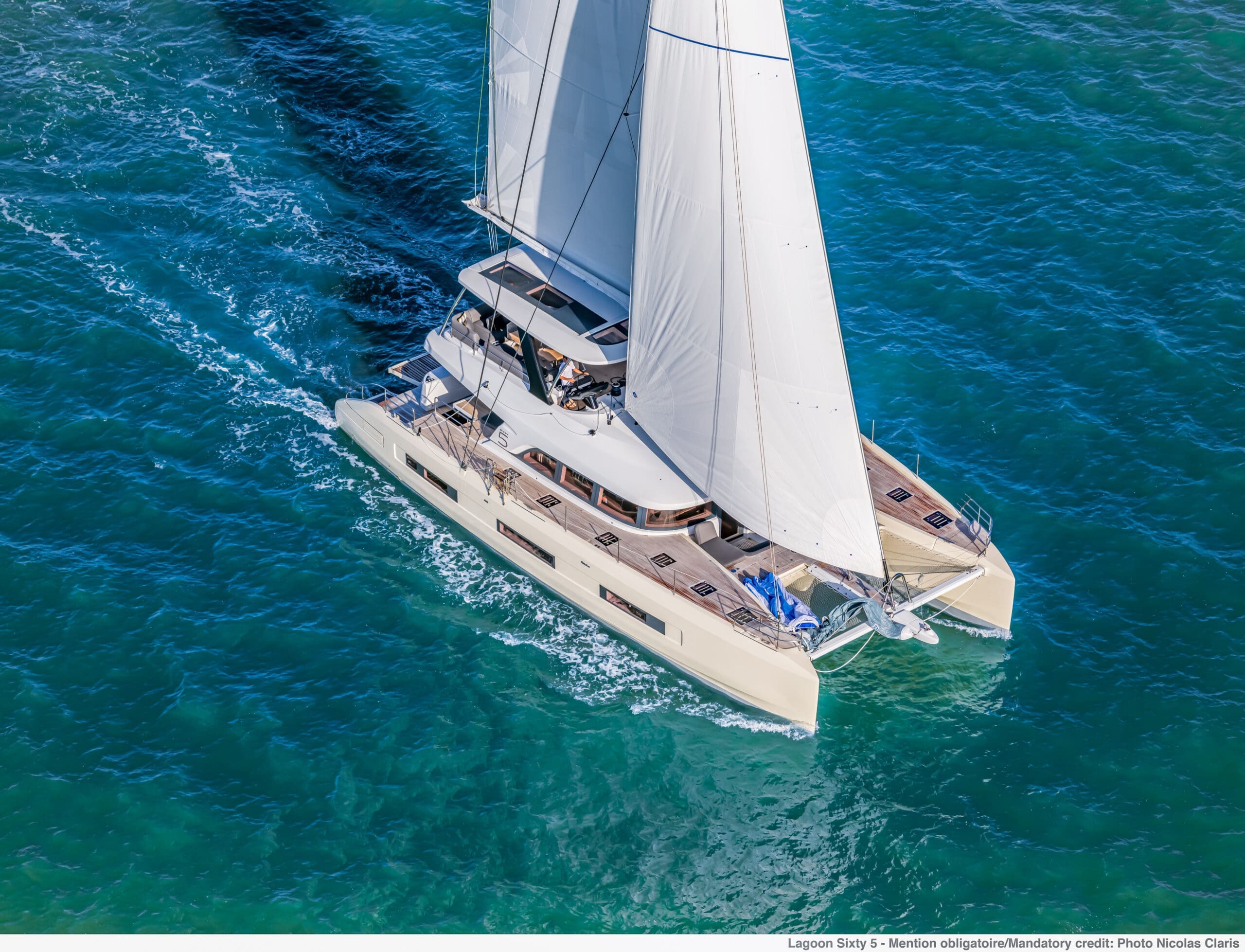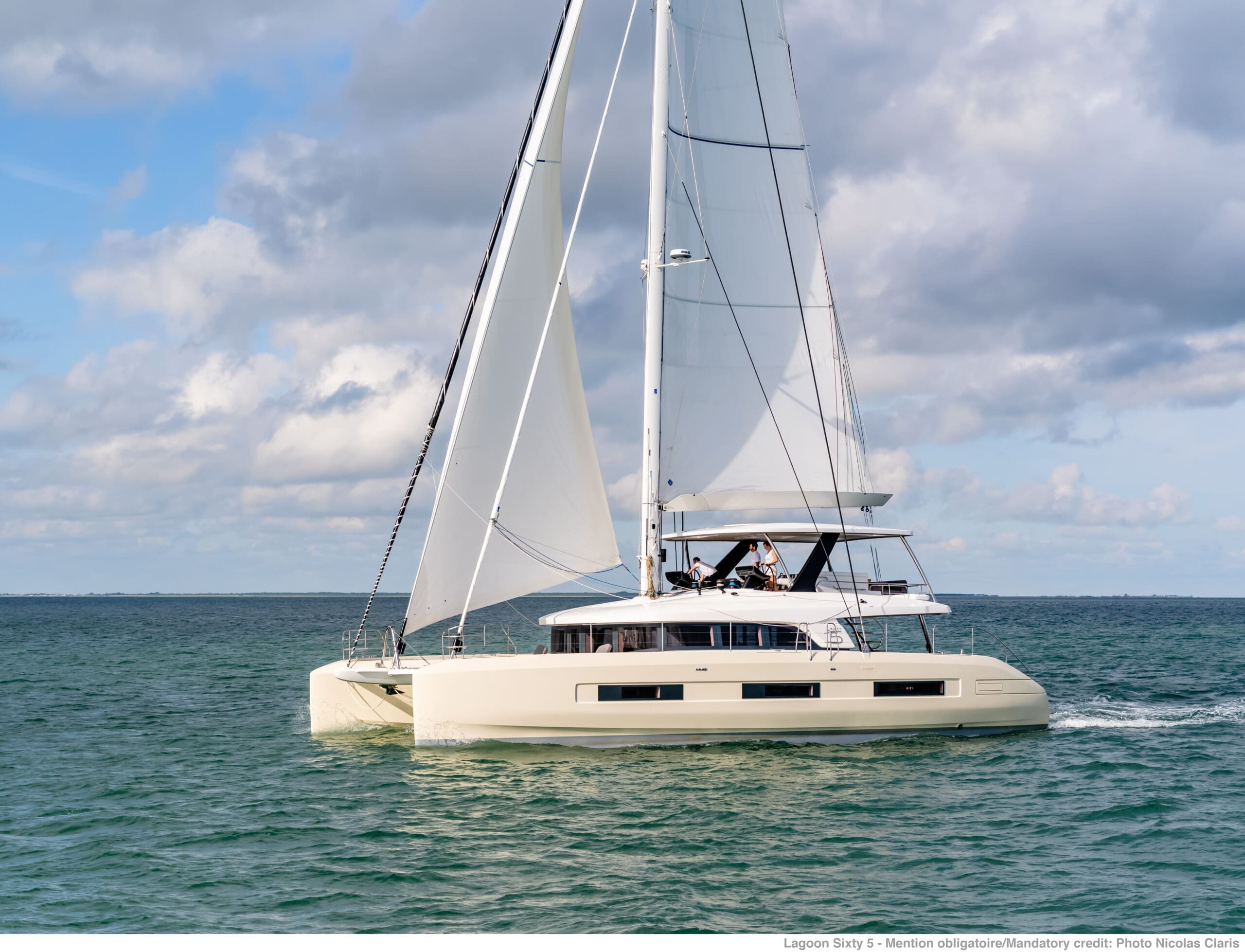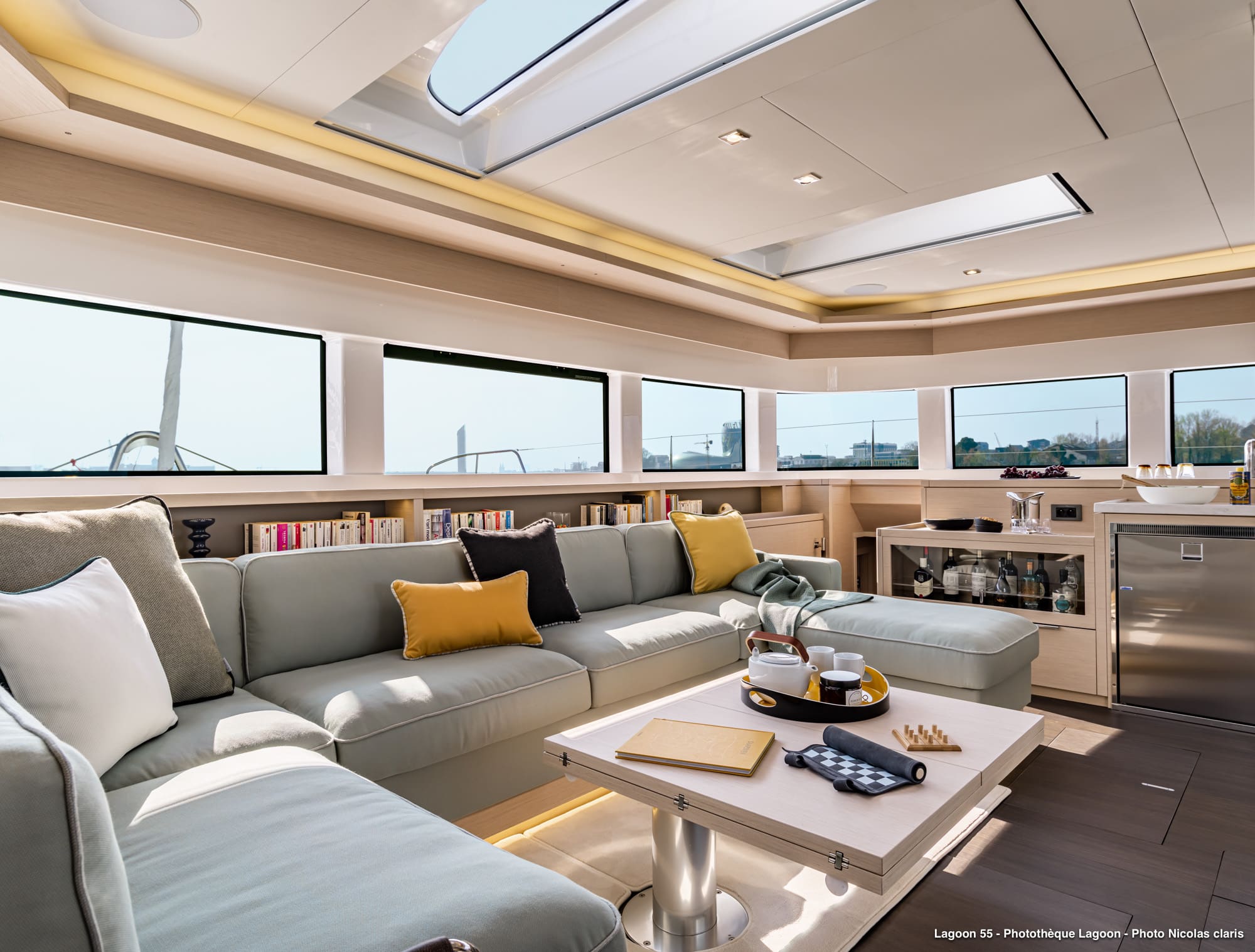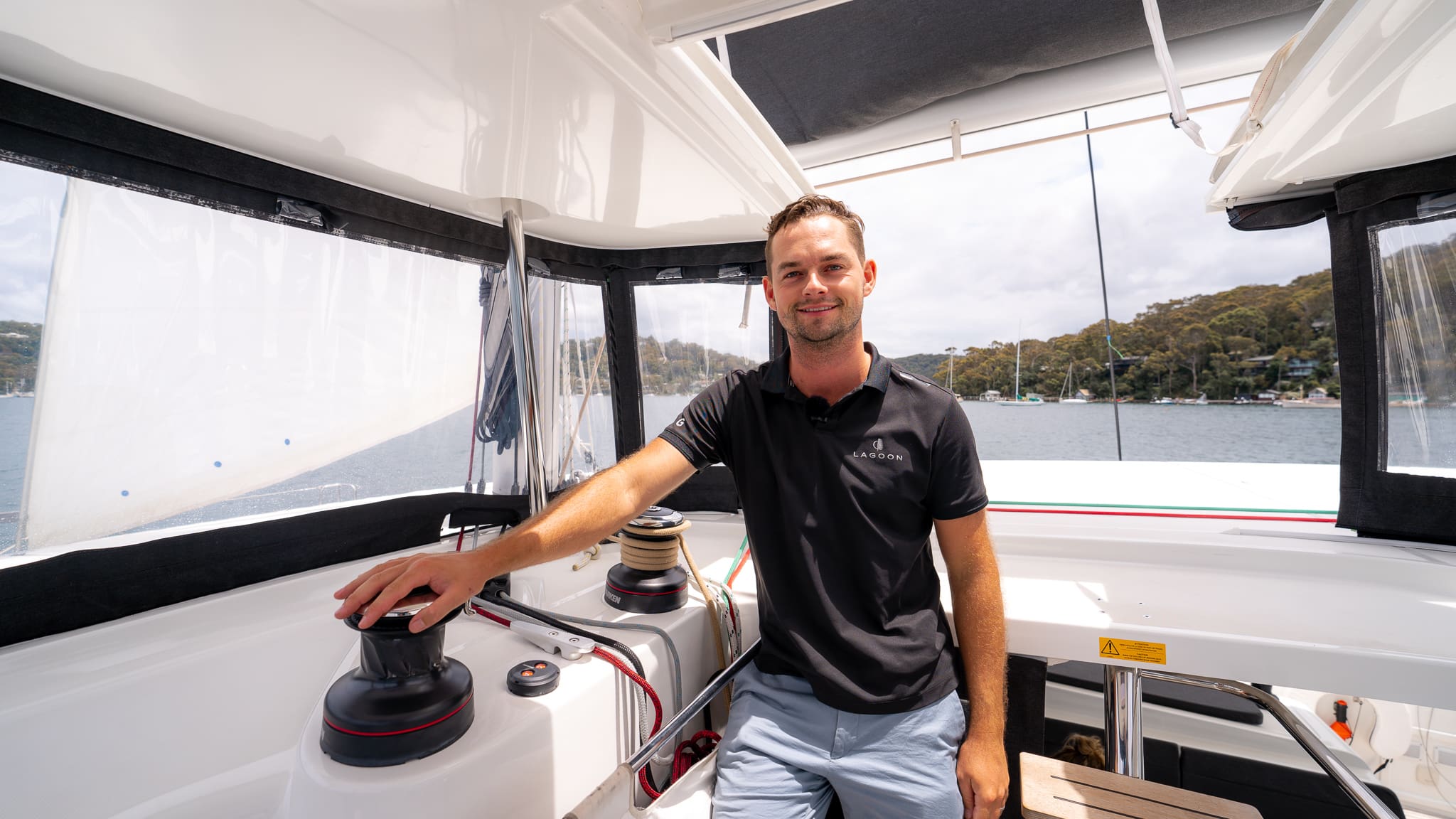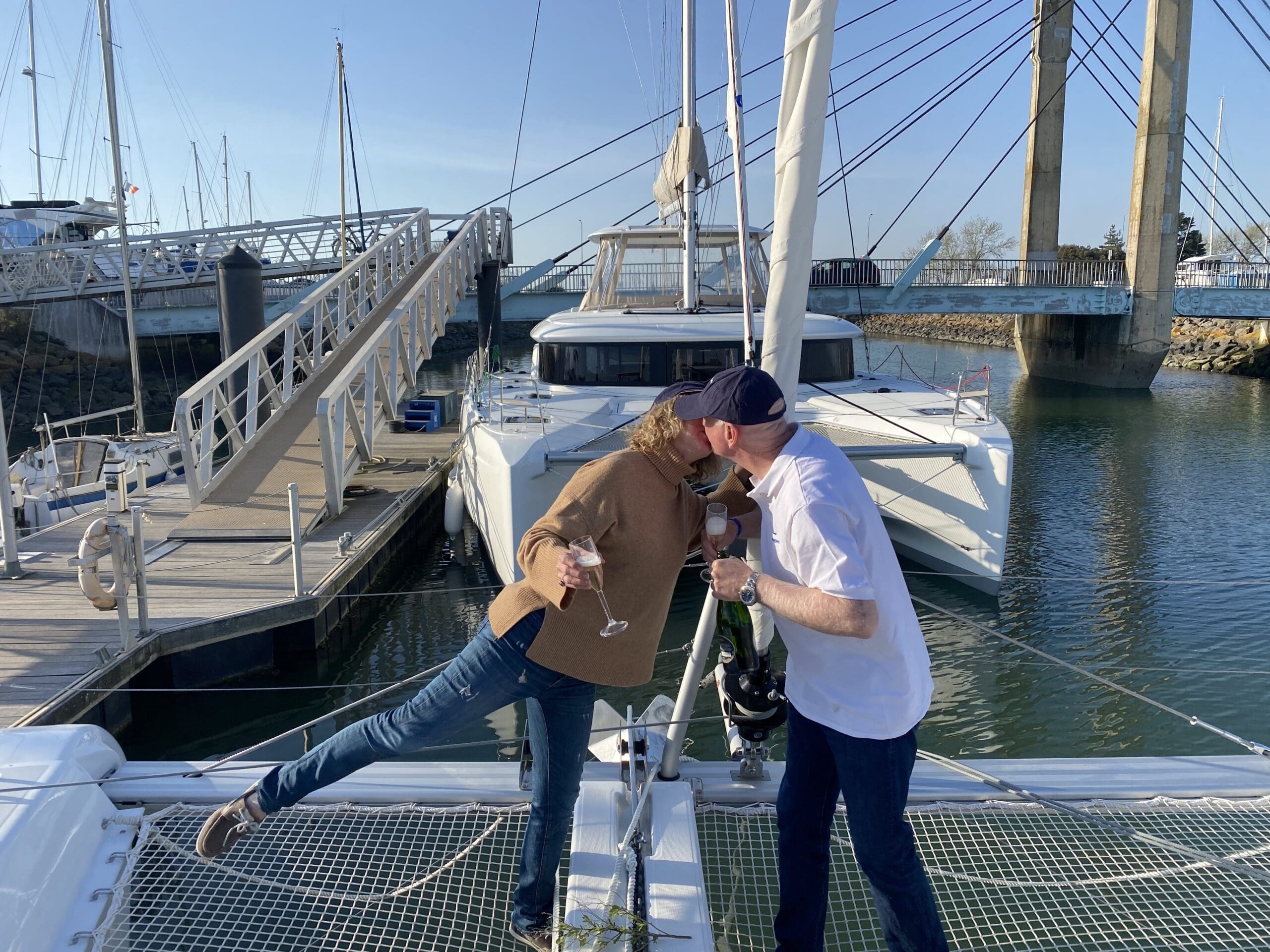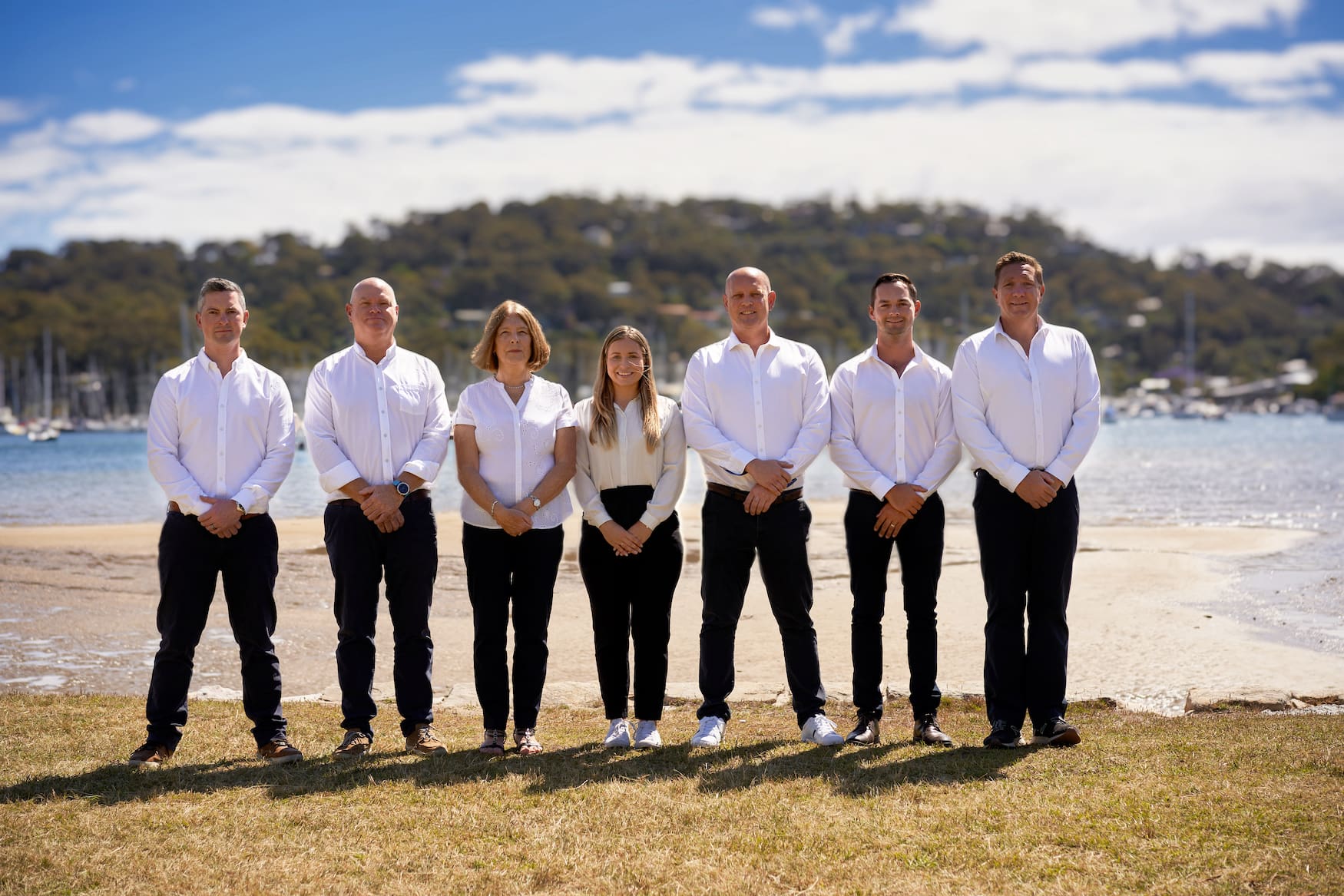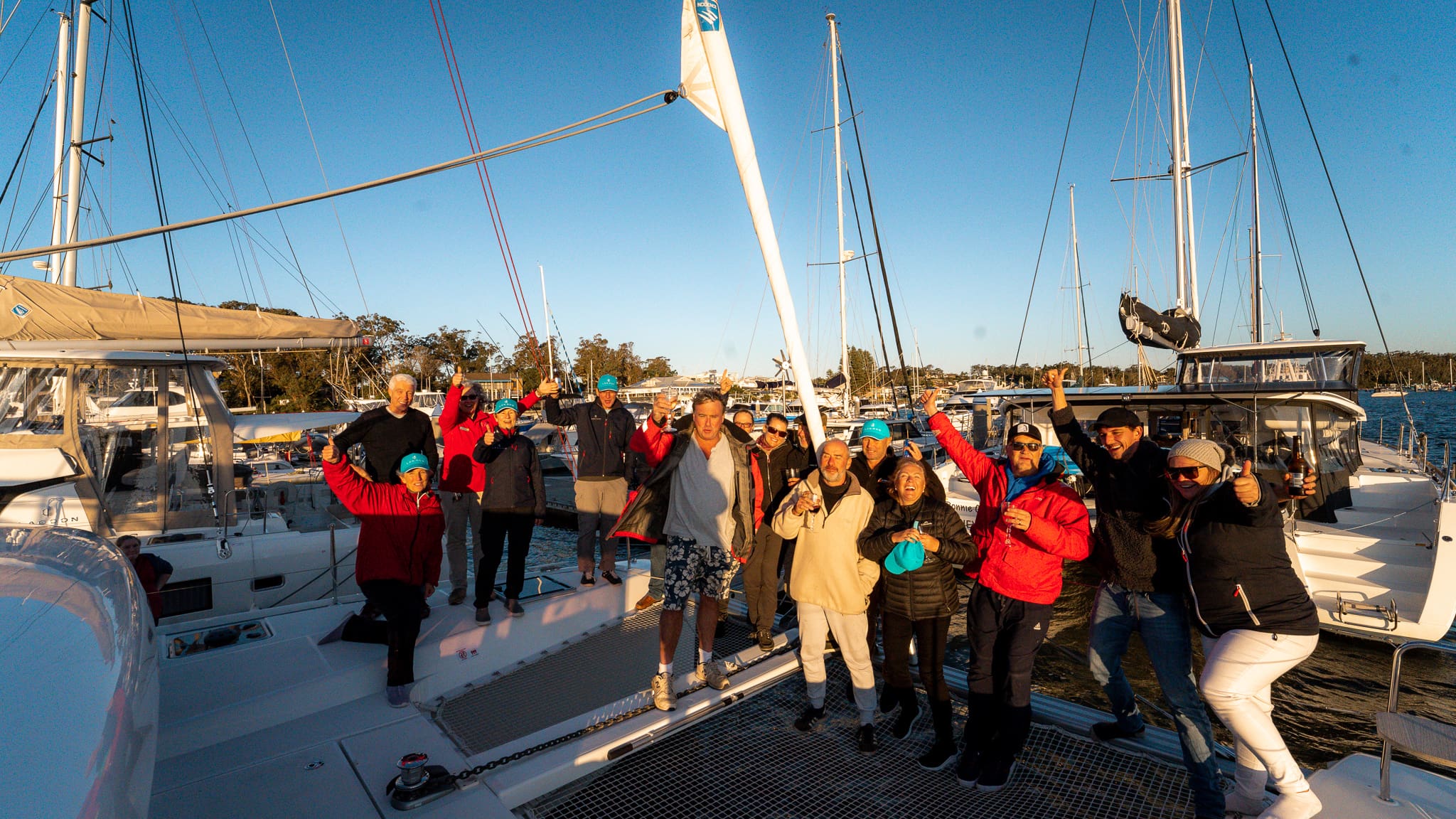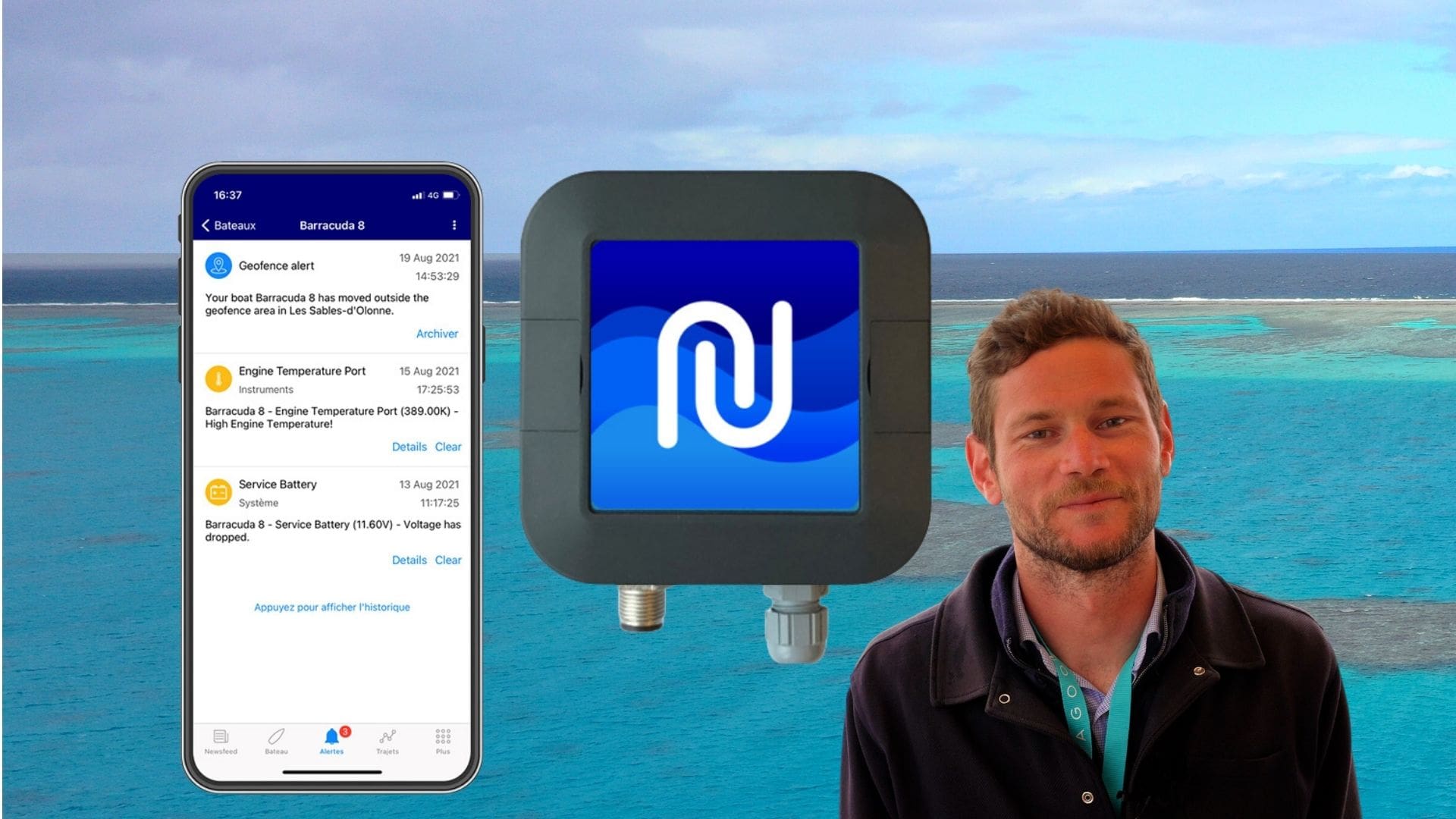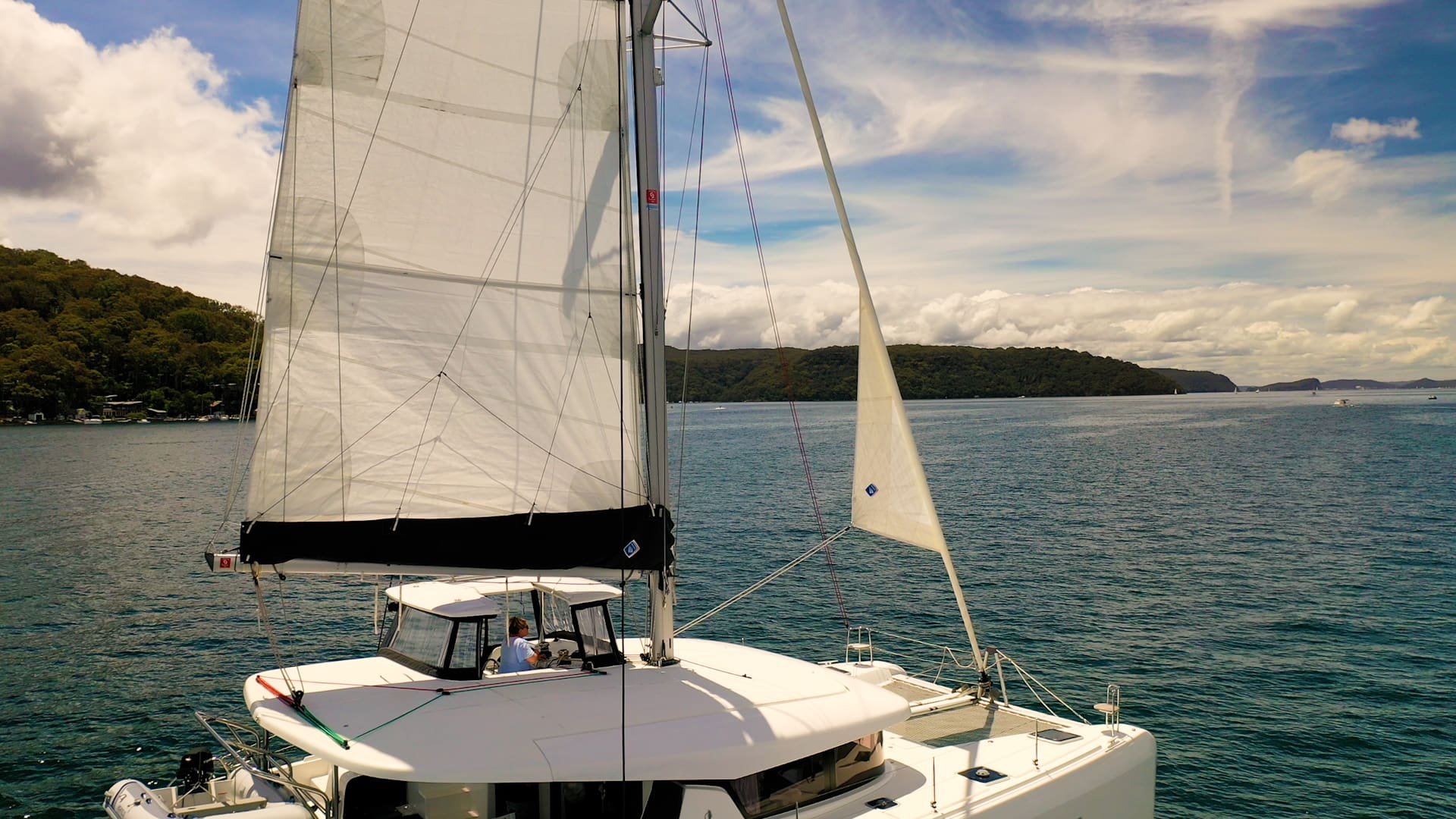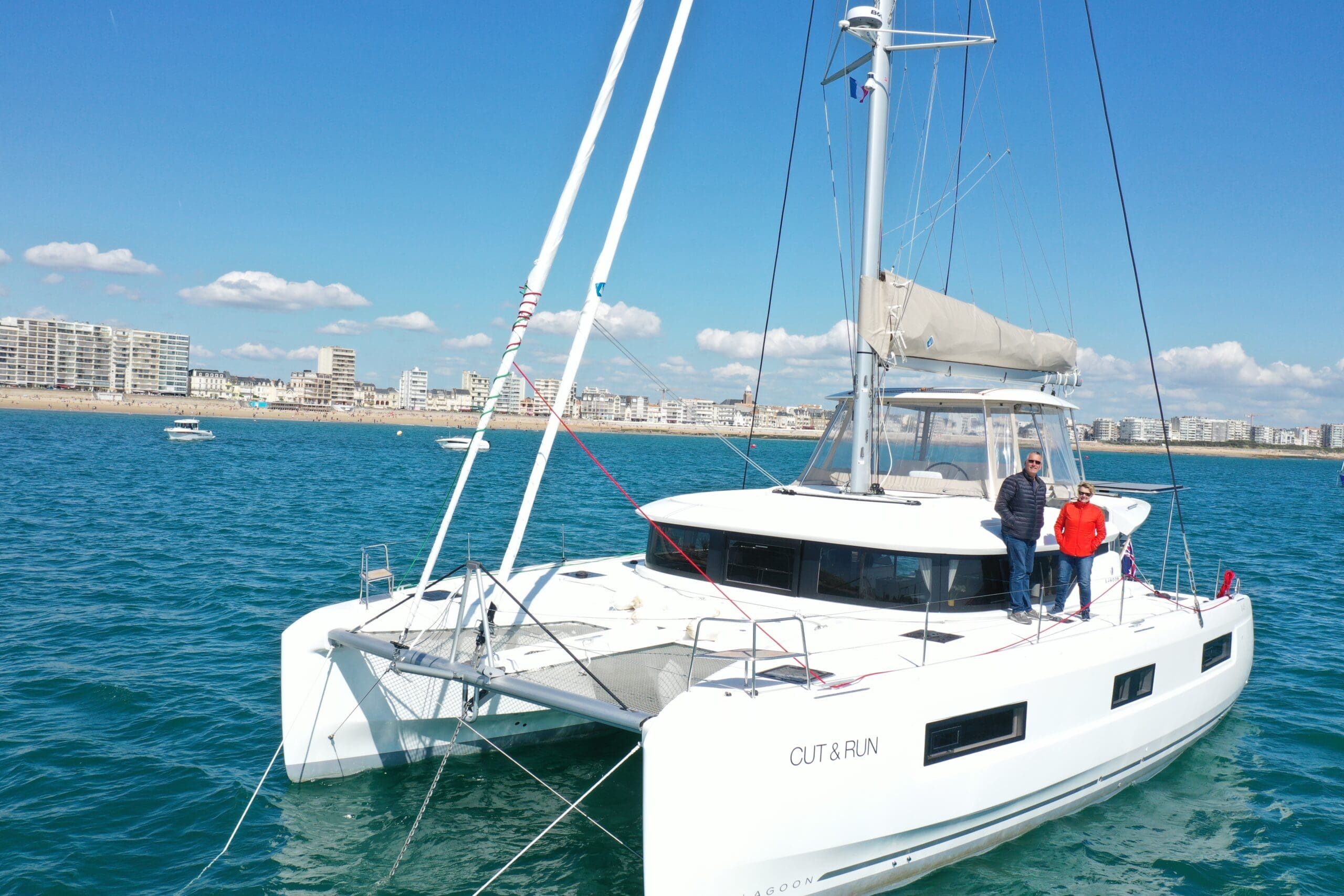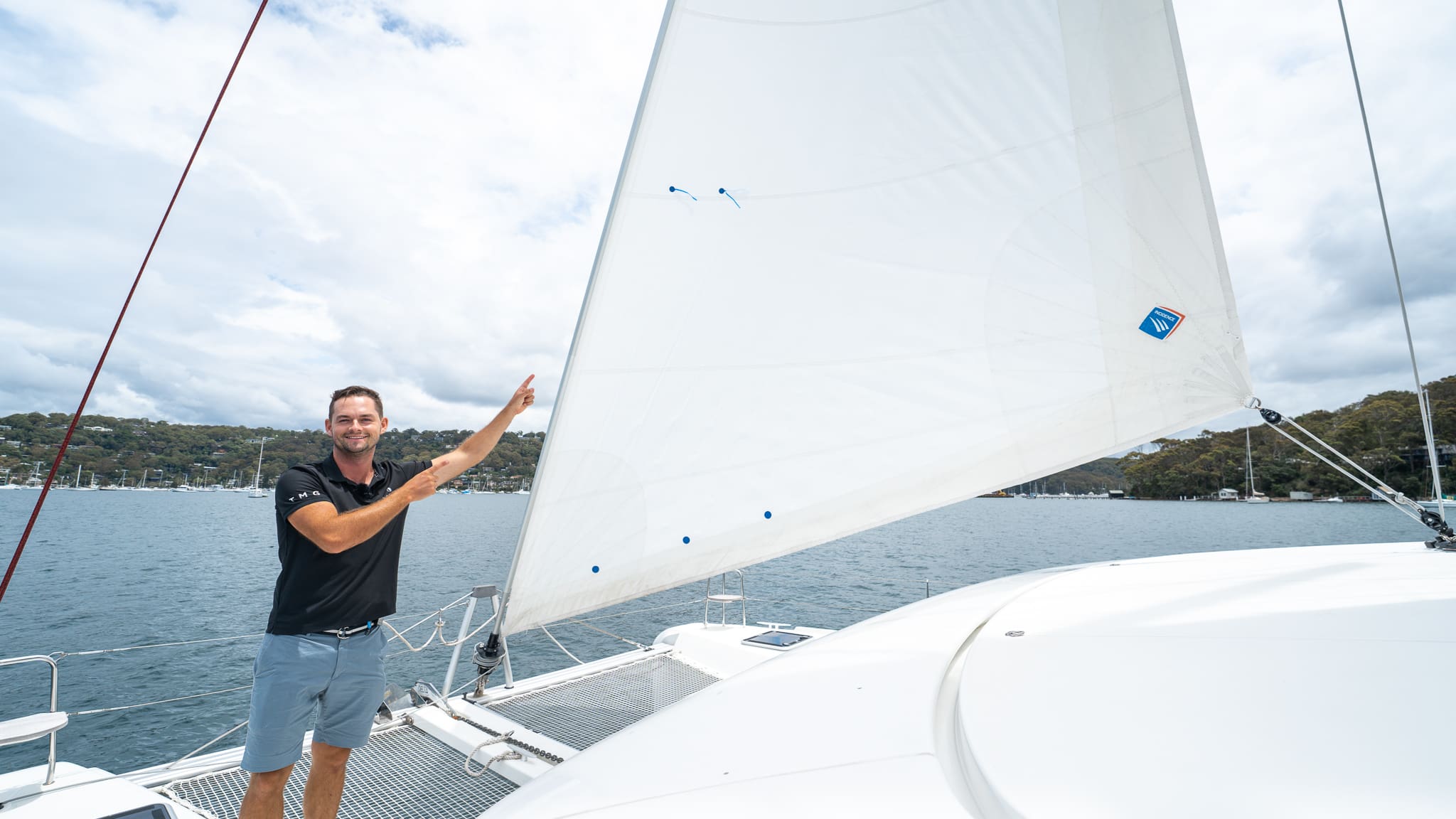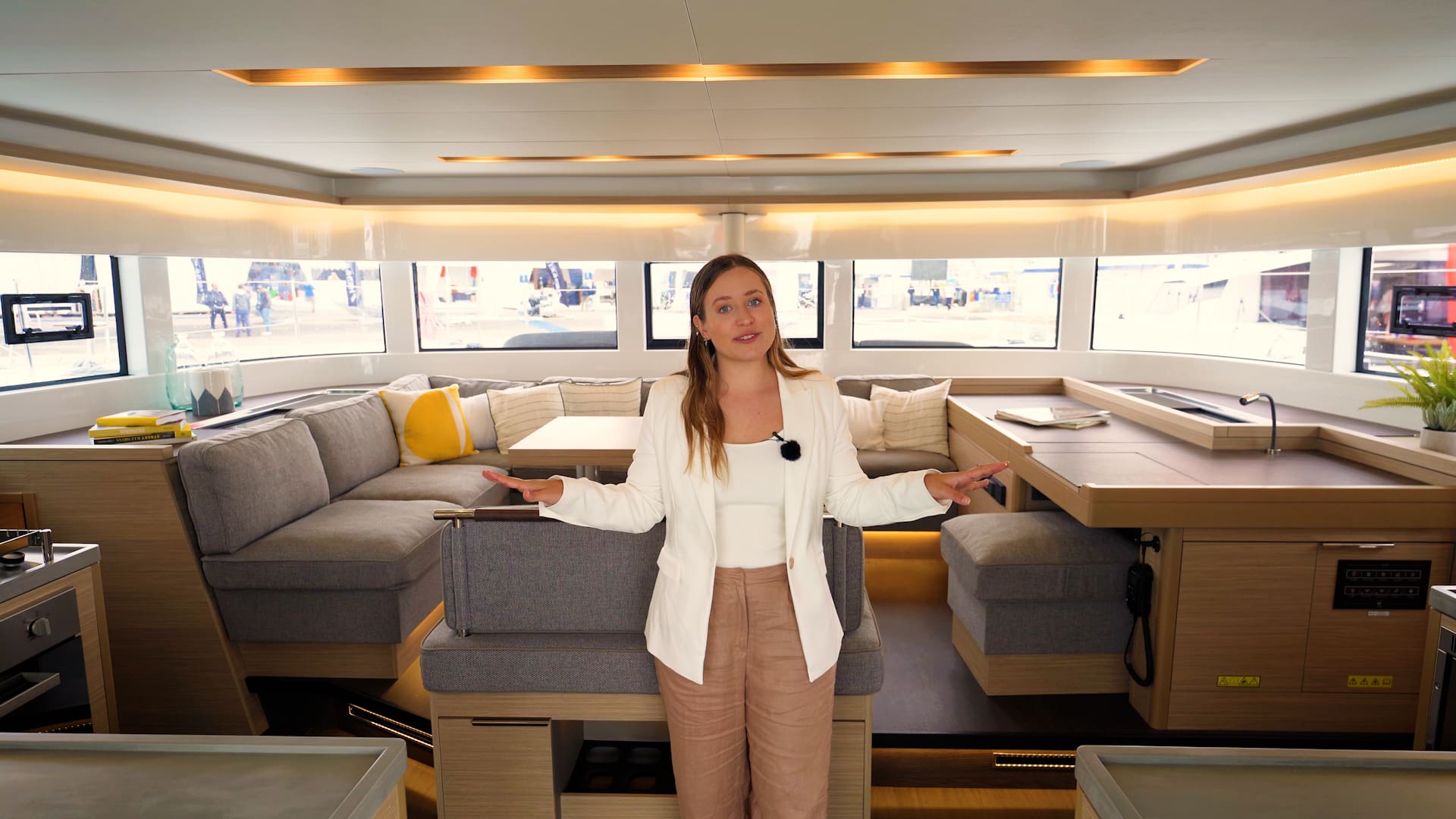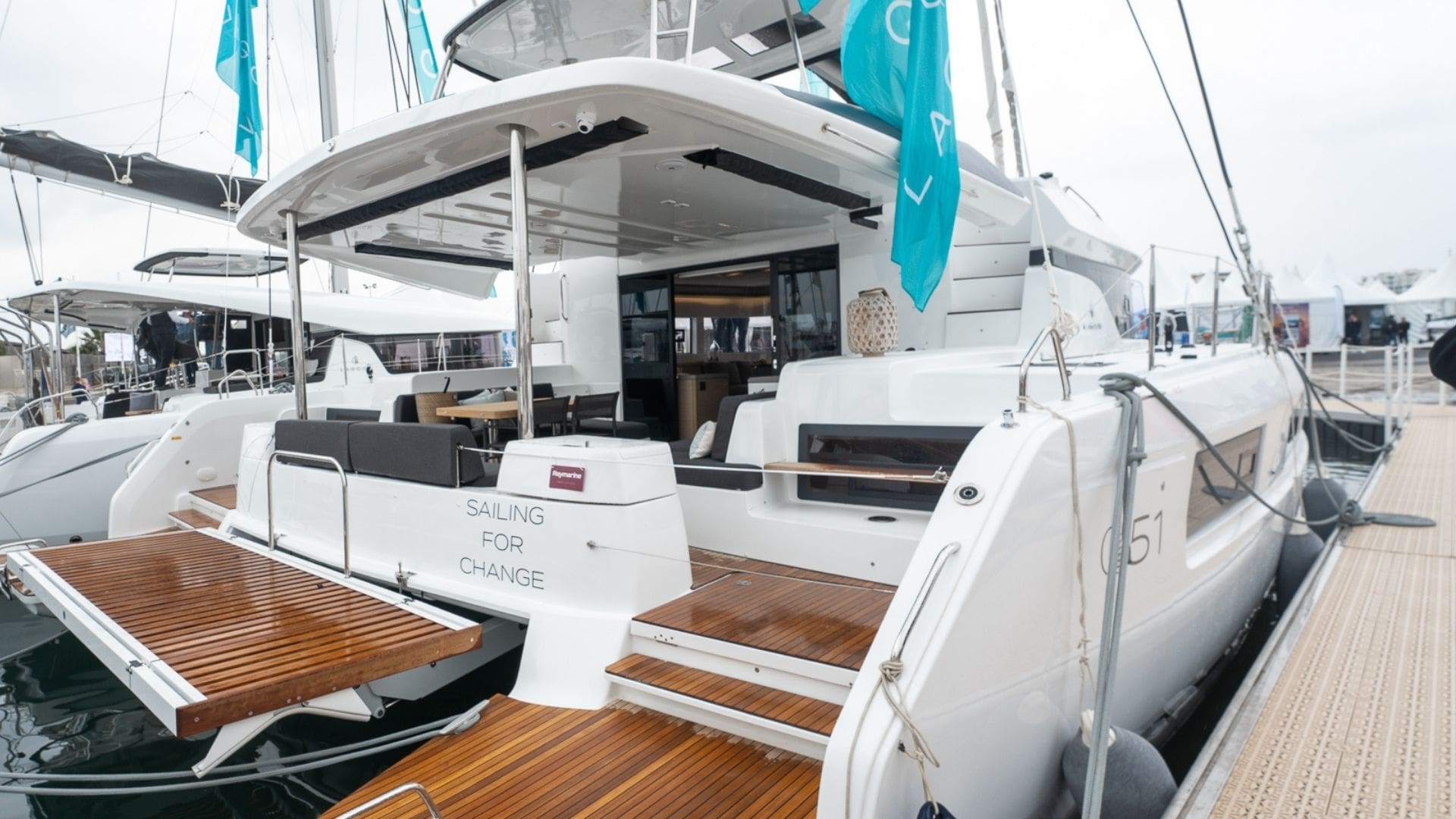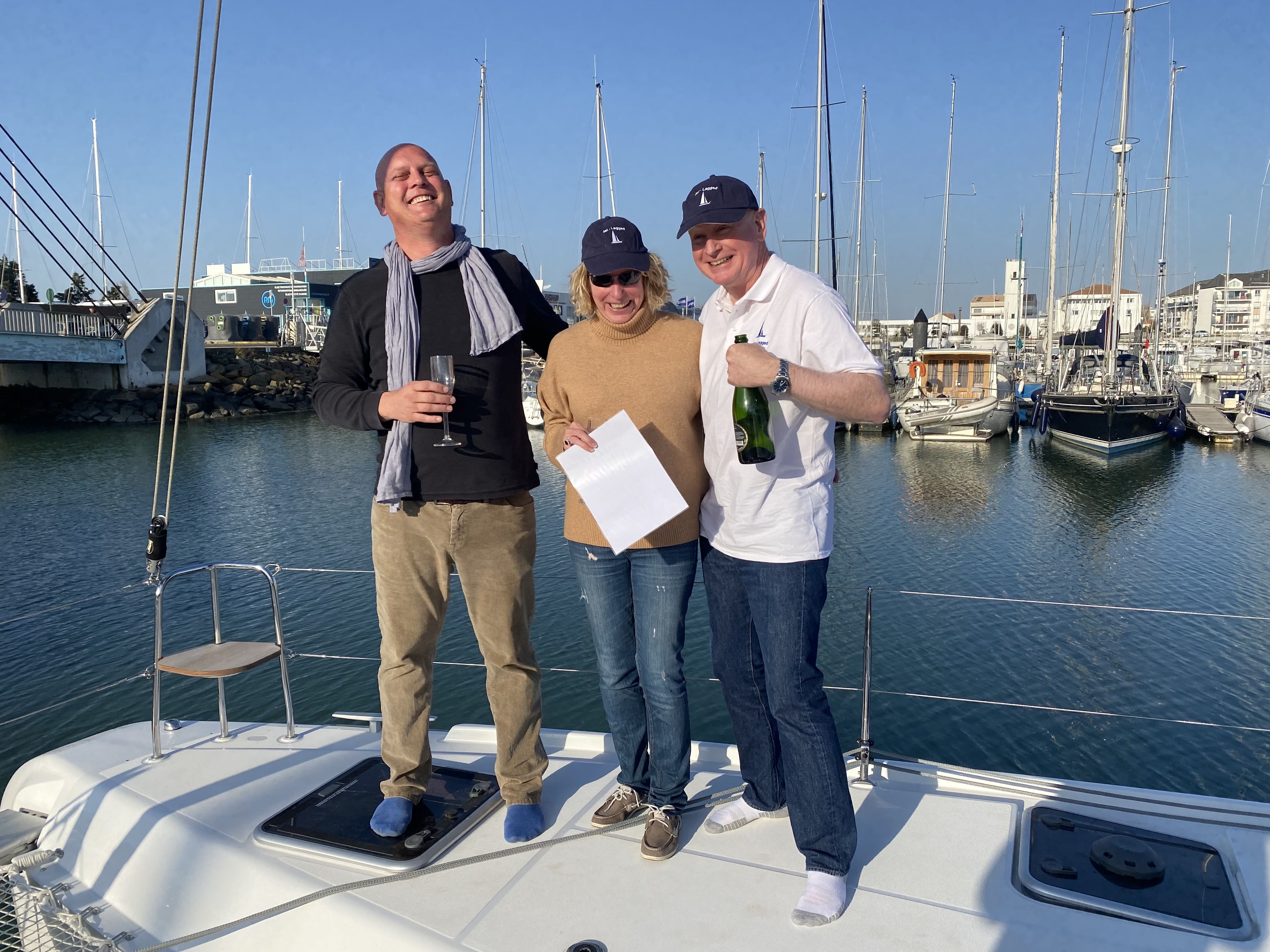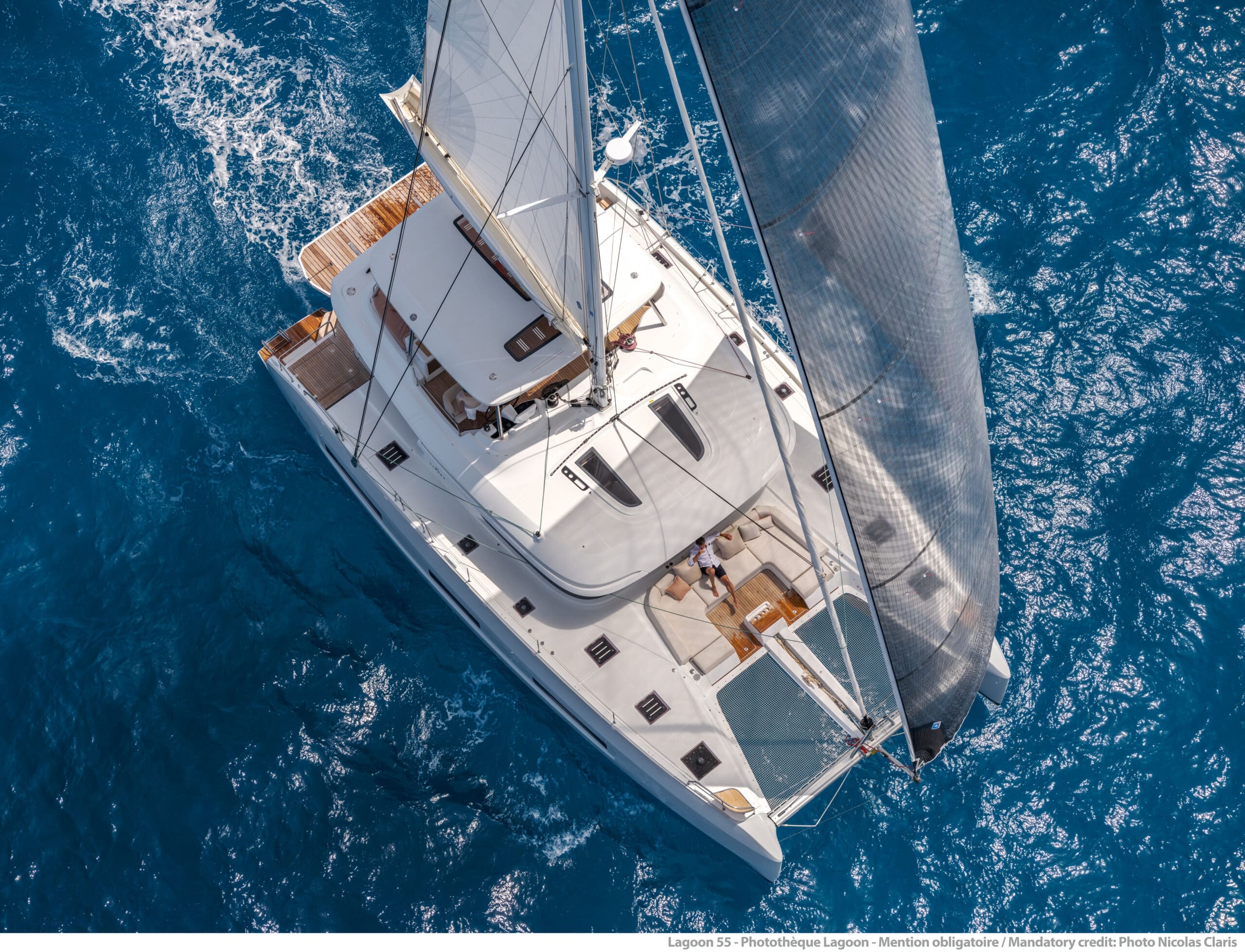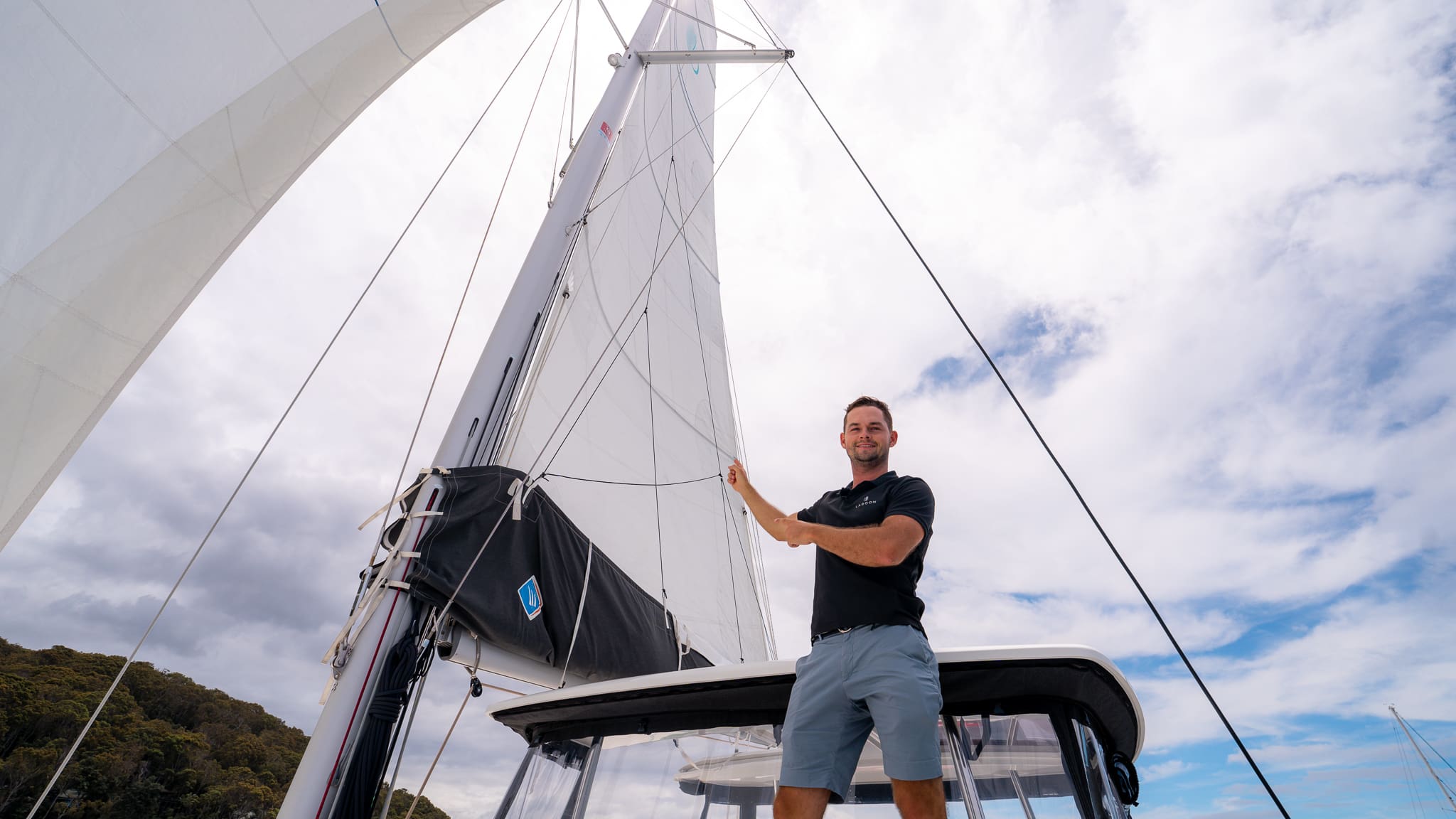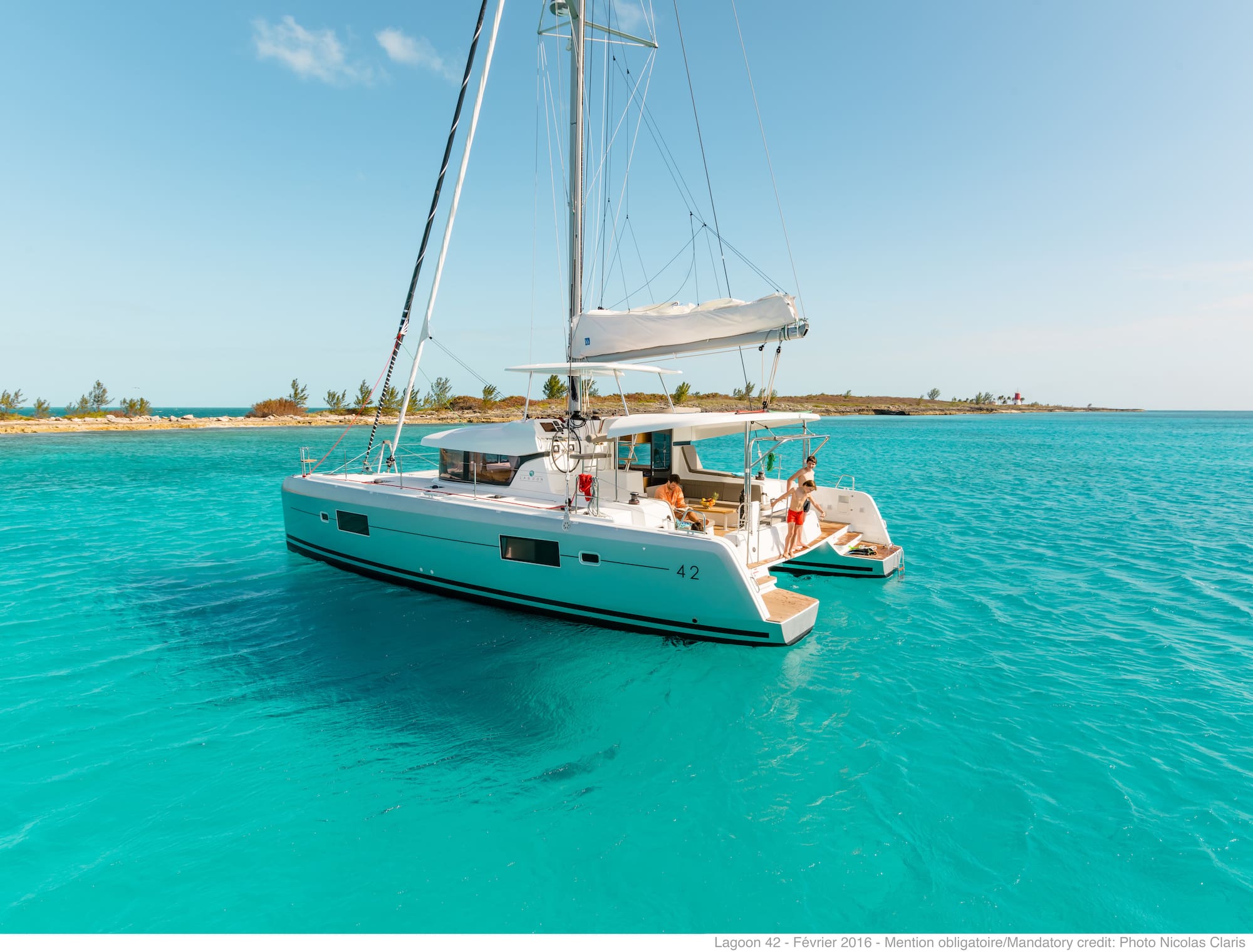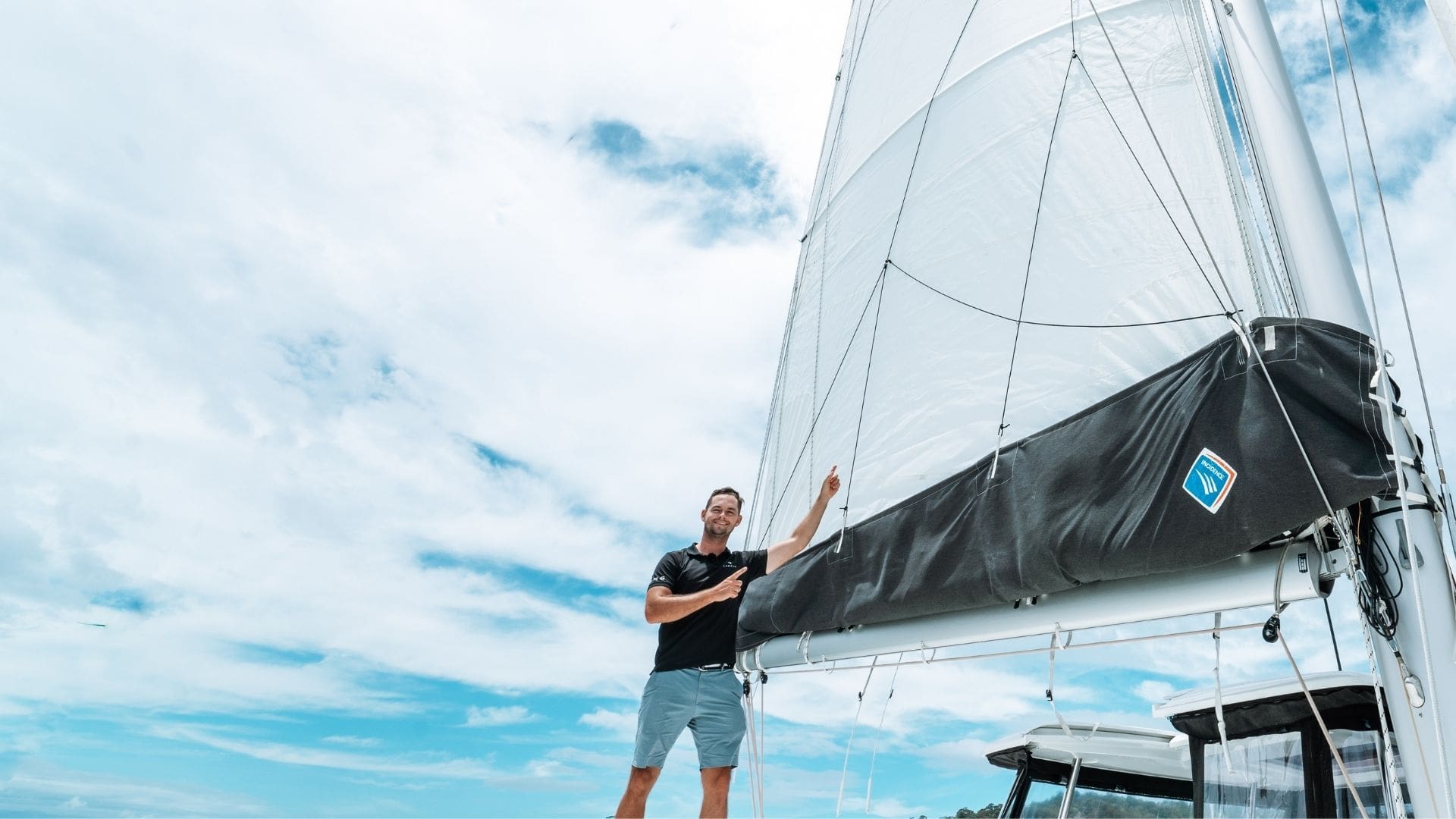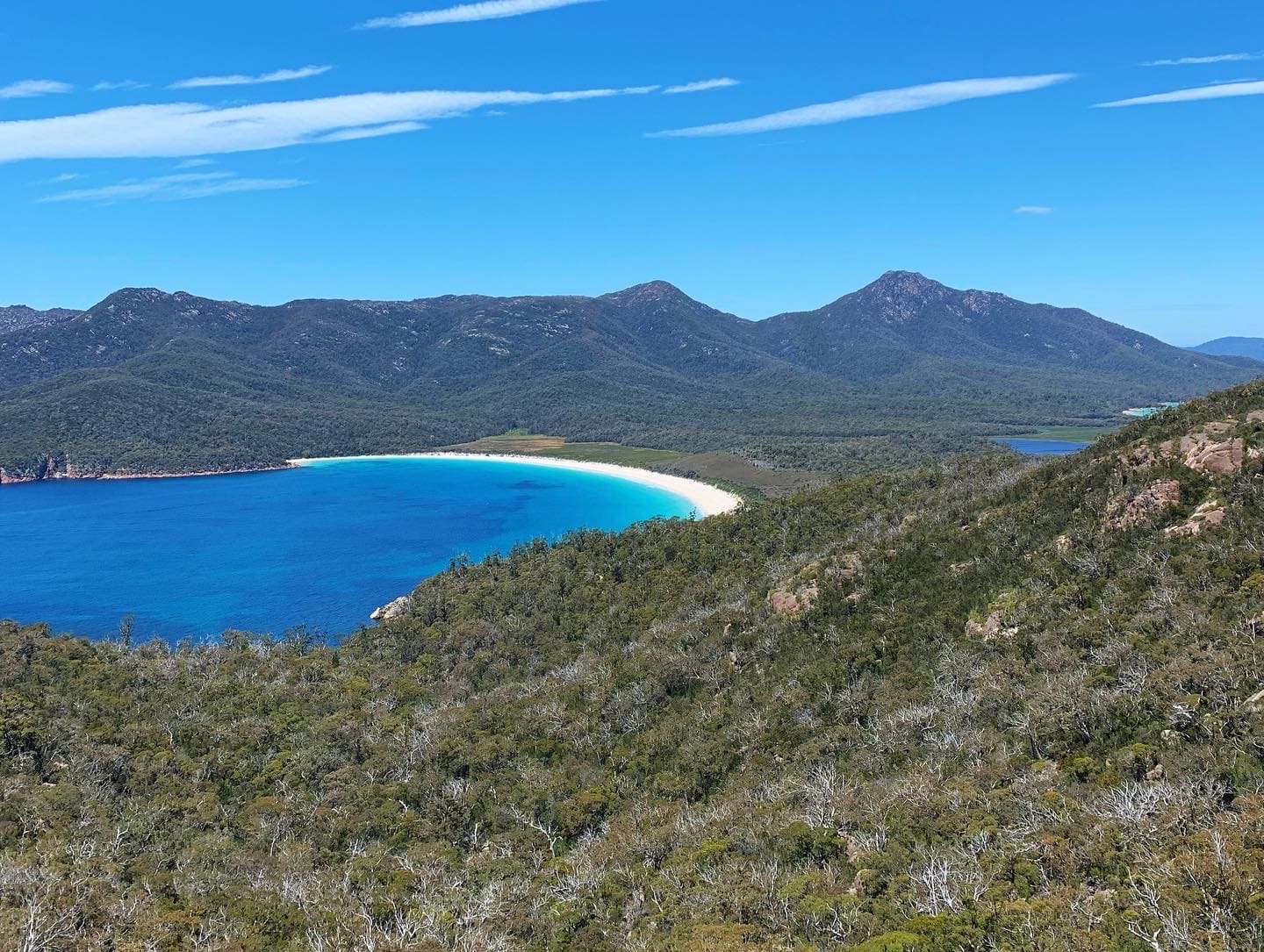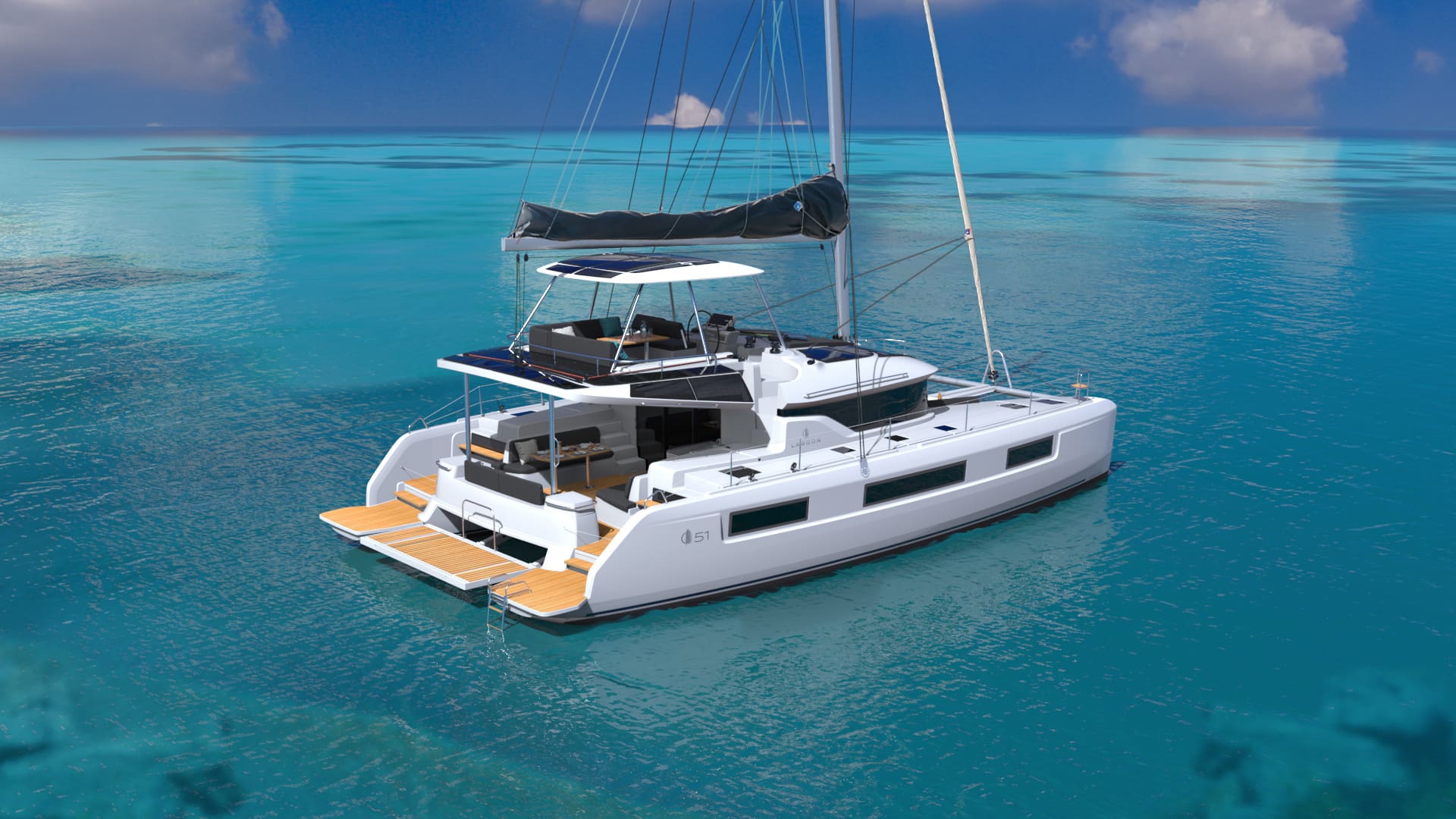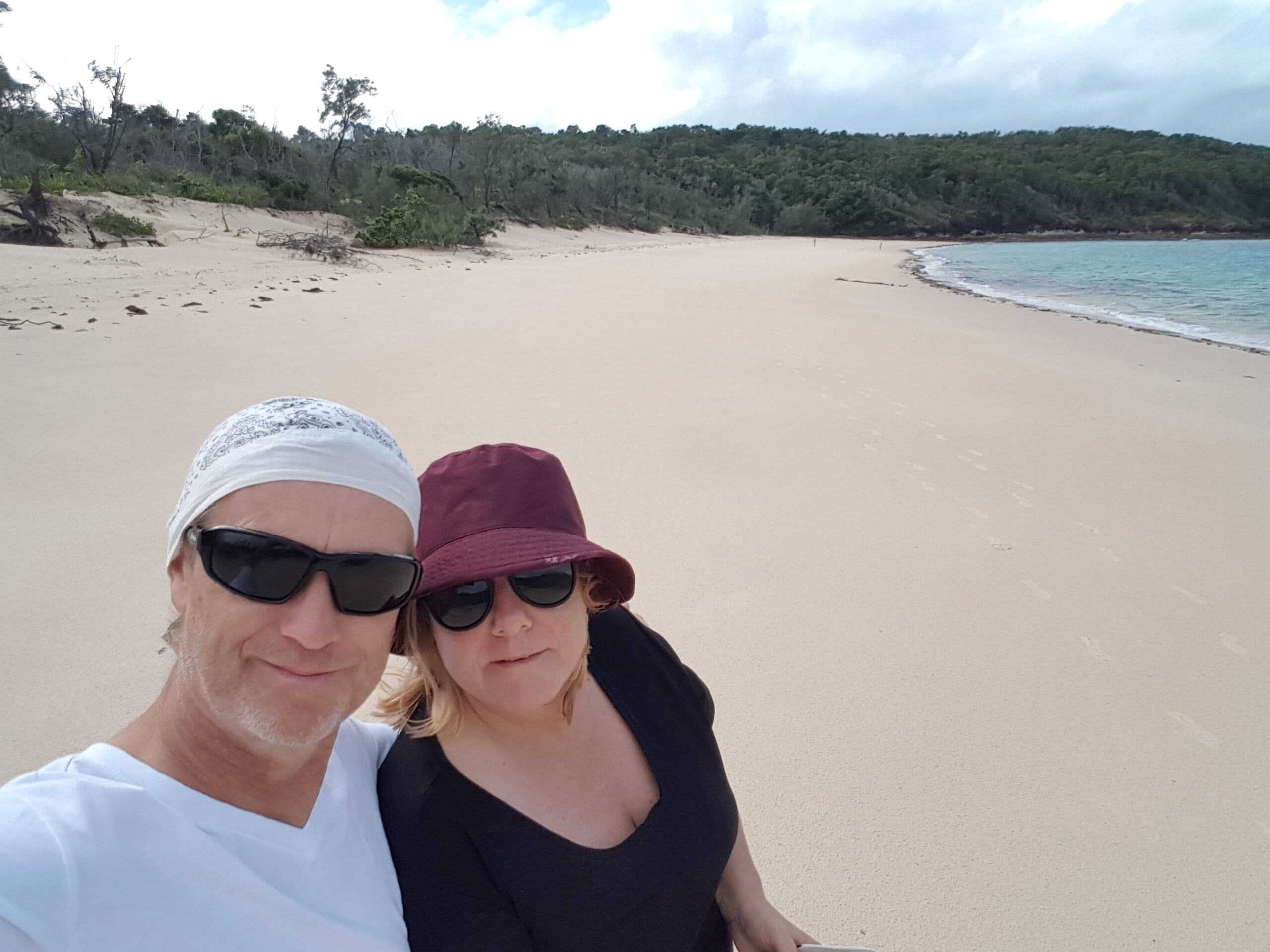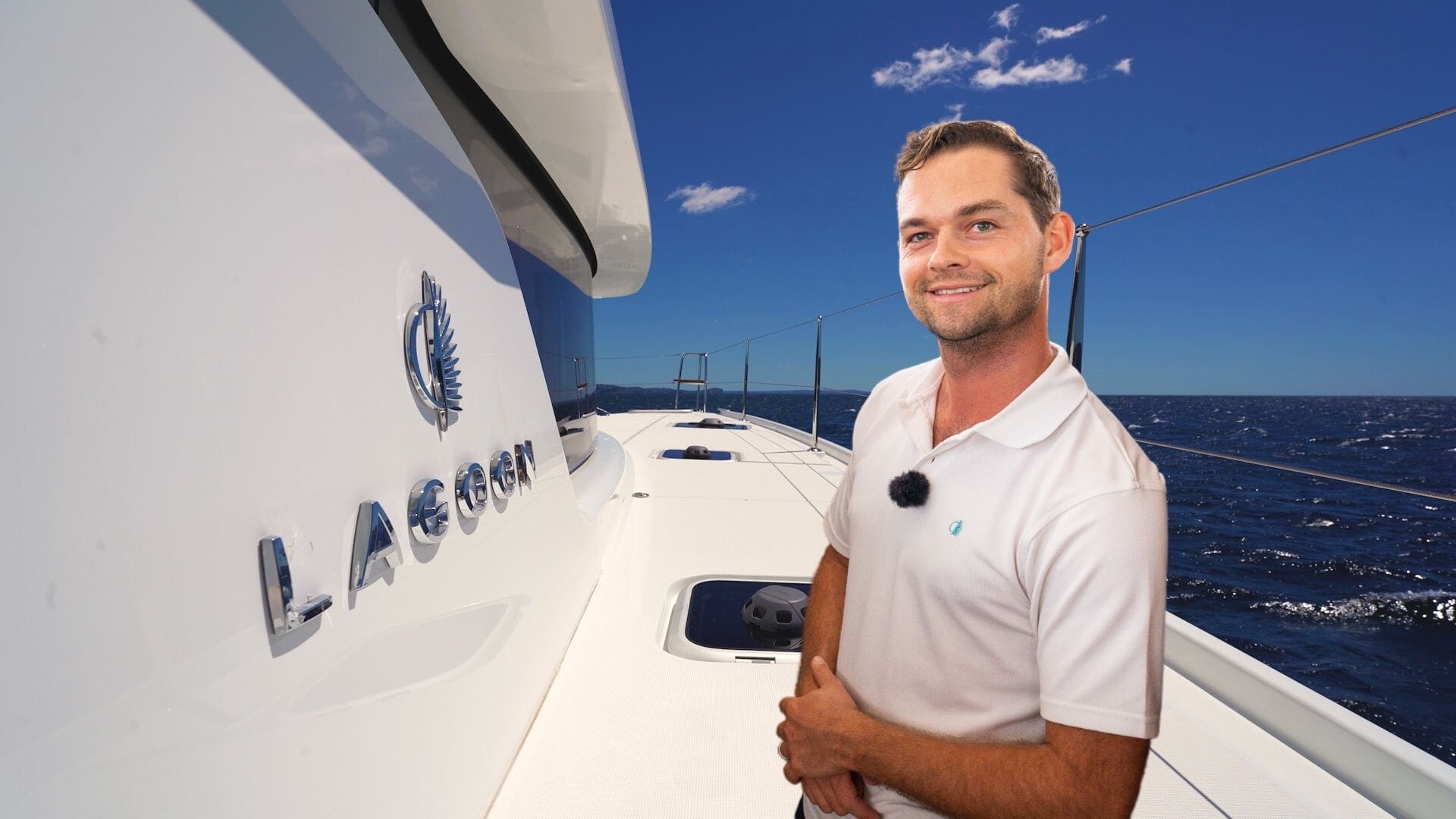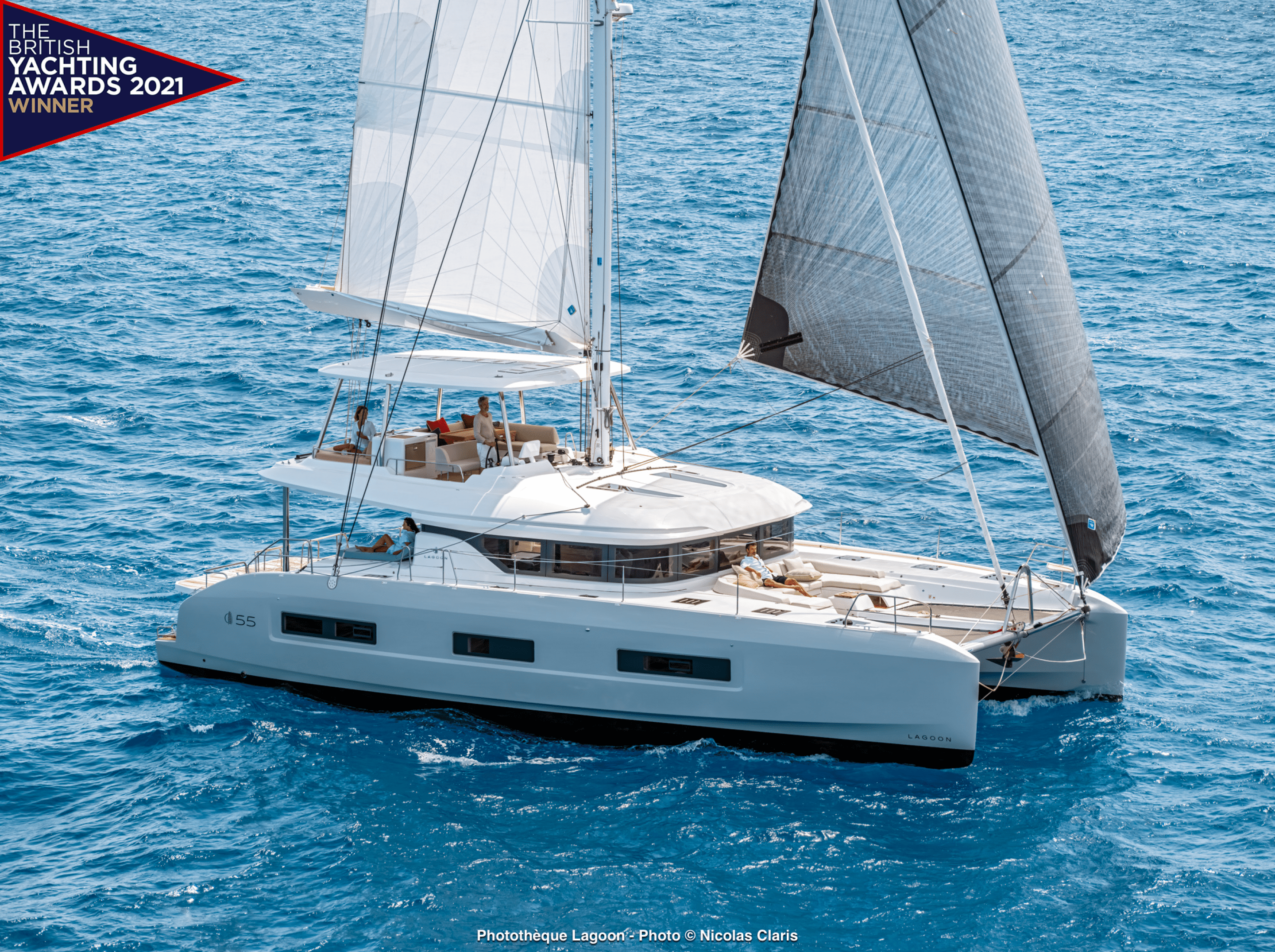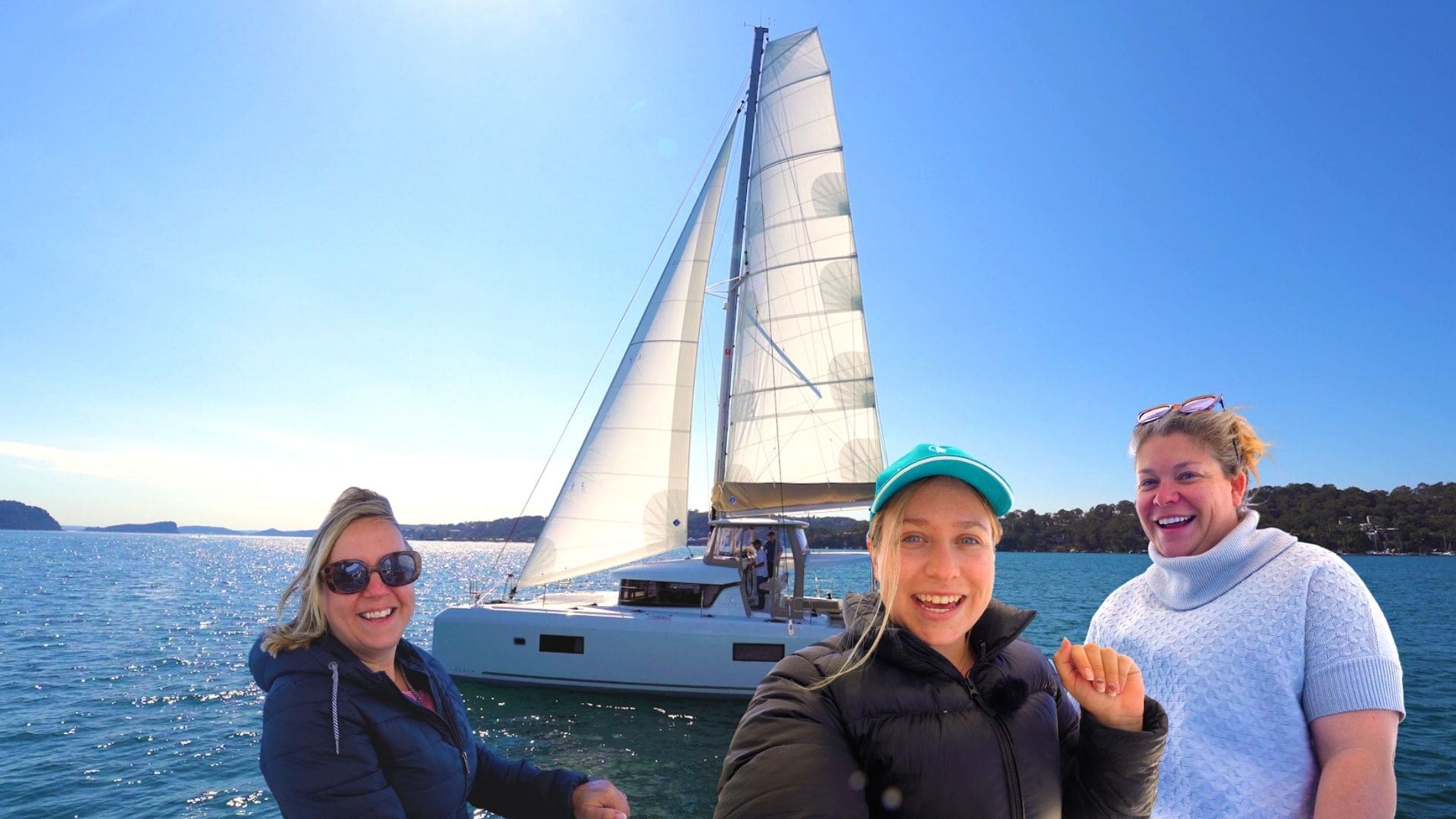In this new episode of Inspire and learn, we’re delving into the world of nautical terminology, sharing the top 10 essential terms for use onboard a boat or among nautical-minded people
LATEST FROM THE BLOG
TMG Yachts is dedicated to providing our customers with the best online cruising resources.
The Inspire and Learn Series was created as a safe space for you to learn about our multihulls and to be inspired by real experiences.
Our blog will keep you updated on the latest boating trends, give you trustworthy reviews and detailed walkthroughs so you know you are making an educated decision.
WELCOME TO TMG’S BLOG
A Family’s Whitsundays Adventure with Portland Roads
Join Rowan McMahon & family on an epic voyage aboard Portland Roads’ Lagoon 42 ‘Lawless’ at the Lagoon Escapade in Whitsundays!
Introducing the NEW Lagoon 43 Interview with Product Manager
Join us for an exclusive look at the highly anticipated Lagoon 43 with Quentin Beraut, Lagoon’s Product Manager.
Celebrating 40 Years of Lagoon
Dive into Lagoon’s monumental achievement: the completion of its 1,000th Lagoon 42. Witness history in catamaran construction!
Lagoon’s Milestone 1,000th Lagoon 42
Dive into Lagoon’s monumental achievement: the completion of its 1,000th Lagoon 42. Witness history in catamaran construction!
How to Fly a Code Zero on a Catamaran
In this guide, we delve into the intricacies of flying a Code Zero on a catamaran, specifically the Lagoon 46. Join our expert, Joe Fox, as he walks you through the setup, preparation, and manoeuvres involved in harnessing the power of this versatile sail.
Lagoon 60 First Look
Rowan travelled to France to witness the premiere of the cutting-edge Lagoon 60, where innovation meets luxury. With unique side access and an expansive aft terrace, this catamaran redefines cruising comfort.
Multihull of the Year Nominations 2024
by admin
We are thrilled to announce that the PRESTIGE M8 has been nominated for the Multihull of the Year Awards 2024.
Guide to Hull Maintenance & A Detailed Look Below the Surface
In this instructional piece, we delve beneath the waves to explore the underwater profile of the a Lagoon Catamaran. Join us as we dissect the key features and maintenance points of the Lagoon 46, offering insights into what to look for during routine upkeep.
Discovering Dream Destinations in Australia onboard Lagoon 40
Chris and Jill Rouse adore their Lagoon 40, “The abundance of space, from the bedrooms to the bathrooms, exceeded our expectations. From pre-delivery preparations to ongoing assistance, the TMG Yachts team have been phenomenal. Our journey is going remarkably well, thanks to their ongoing support and expertise.”
Prestige Yachts European Pickup Italy
Ever considered a European adventure onboard your own PRESTIGE Yacht. Discover Portopiccolo, the idyllic starting destination before cruising the Mediterranean and beyond, before returning home to Australia with the help of TMG Yachts.
Exploring the Lagoon 40: Inspired Uncut
In the latest episode of Inspired Uncut by TMG Yachts, we invited you to embark on a virtual journey through the sleek and sophisticated Lagoon 40, now this blog presents a detailed description of the key features onboard the 40 foot catamaran.
PRESTIGE Les Herbiers Shipyard
Step behind the scenes of one of the world’s largest yacht manufacturing facilities with an exclusive look inside the PRESTIGE Yachts Shipyard in Les Herbiers, France. Join us as we journey through the intricacies of vessel production, from the initial lamination process to the final testing and inspection.
The Untold Story of PRESTIGE’s Next Generation! Exclusive Interview with Eric Stromberg
Curious about what makes Prestige stand out in the fiercely competitive world of motor yachting? Join us for an exclusive interview with Eric Stromberg, VP of Beneteau Group, as we uncover the secrets behind Prestige’s success.
Lagoon 40 Owners First Sail – Gold Coast to Sydney
Chris joined the TMG Yachts team on the maiden voyage of his Lagoon 40, “It was a pleasant trip, I was impressed by the boat’s capabilities and smooth sailing,” adding, “it is all about the people and Mark Loader was exceptional.” Join the journey.
How Couple Found Their Dream Boat
Meet Helen, an avid boater and proud owner of the Lagoon 450SV “Prosperity.” In this exclusive interview, Helen shares her journey into the world of sailing, highlighting memorable moments aboard her beloved catamaran.
Inspired Uncut Journey through the Lagoon 51
by admin
Embark on a raw, unedited journey aboard the Lagoon 51 with Inspired Uncut by TMG Yachts. Join the immersive walkthrough, exploring the spacious cockpit, innovative features, and the luxurious master cabin as if you’re strolling through in person.
Discover PRESTIGE M-Line: Exclusive Interview With The Vice President Erwin Bamps
by admin
Join us as we meet Erwin Bamps, the ingenious Vice President of PRESTIGE. Dive into an in-depth discussion about the M-Line, focusing particularly on the mesmerising journey from concept to realisation of the remarkable M48.
Setting Sail into a Sustainable Future: Lagoon’s Eco Update
At the Cannes Yachting Festival, Joe Fox from TMG Yachts unveils the latest eco updates from Lagoon, a trailblazer in the yachting industry. Lagoon has consistently been at the forefront of innovation, introducing new products and systems across their range to enhance sustainability and reduce environmental impact.
Sailing The World On A Lagoon Catamaran For 13 Years
by admin
In 2010, Mike Houston embarked on an extraordinary adventure that would take him across the globe, all from the deck of his beloved Lagoon 440 catamaran. This is the story of Mike’s journey —a tale of discovery, challenges, and the beauty of the sea.
Lagoon SEVENTY 7 Skipper Interview
In this insightful interview, we had the pleasure of conversing with Luke Butchers, the skipper of a magnificent Lagoon SEVENTY 7. During our discussion, Luke shared his experiences, choices, and future plans for this remarkable vessel.
Exploring the PRESTIGE 460 Flybridge: A Luxury Boating Experience
by admin
Welcome aboard the PRESTIGE X60, a vessel that effortlessly combines modern style with timeless luxury. Rowan from TMG Yachts takes us on a journey through this remarkable yacht, showcasing its key features that make it stand out in the world of boating.
Lagoon 46 Gold Coast to Sydney in 48 Hours
Joe, Rowan, and Vlasis from TMG Yachts embarked on an epic journey from the Gold Coast to Sydney aboard a Lagoon 46 catamaran. With mixed conditions the 46 performed incredibly, completing this trip in 48 hours.
PRESTIGE Monfalcone Shipyard Tour
Discover the Beneteau Italia Factory in Monfalcone, where larger PRESTIGE Yachts are born – a beacon of luxury and sustainability by the Mediterranean.
A Journey with the Lagoon 42: Owner Story
“TMG were awesome. We walked in unsure, needing guidance and with questions in mind. Rowan just stepped in and said, ‘Here’s how I’m going to help you guys.’ Considering we’re a married couple sailing by ourselves, the dimensions of the Lagoon 42 really suit us.” – Lisa and Greg, Lagoon 42.
East Coast Catamaran Sailing: Lagoon 42 Owner Testimonial
“I first saw the very first Lagoon 42 that came to Australia at the Sydney boat show in 2015. I just felt that it had everything I needed, we purchased the boat through TMG and we’ve been looked after very well by all the staff. We’ve really enjoyed the boat the first 5 months” – Ross Smith Lagoon 42.
PRESTIGE X60 In-depth Walkthrough & Highlights
Welcome aboard the PRESTIGE X60, a vessel that effortlessly combines modern style with timeless luxury. Rowan from TMG Yachts takes us on a journey through this remarkable yacht, showcasing its key features that make it stand out in the world of boating.
PRESTIGE M48 In-depth Walkthrough
Discover the Prestige M48 with Joe Fox in this walkthrough. A 50-ft multihull with the living space of a 60-ft monohull. Luxury, versatility, and performance redefined.
Introducing the Innovative Lagoon 60 Interview with Product Manager
The world of luxury sailing has just been graced with the announcement of the Lagoon 60, and we couldn’t be more excited! To shed light on this magnificent vessel, we had the privilege of sitting down with Quentin Beraut, a product manager for Lagoon.
Navigating the Mediterranean: Jabulani’s Adventure Continues
It’s been one hell of a trip. The Mediterranean offers a rich history, culture, and stunning landscapes, travelling through different countries and exploring the local ingredients and cooking techniques has been an incredible experience. I don’t think we’ll ever lose some of the friends we’ve met, and we’re all living our dream… Our favourite features on our Lagoon are the flybridge, Code Zero, water-maker and generator.”
Lagoon Catamarans’ NEW Furling Boom System – Inspire & Learn Technical Feature
We’re excited to introduce you to a groundbreaking development in the world of catamarans – Lagoon Catamarans’ new Furling Boom System. This video and blog will delve into the details of this exciting development, featuring an interview with the mastermind behind the project, Bruno Belmont, Lagoon Catamarans’ multihull expert, as well as an exclusive first look with Joe Fox from TMG.
PRESTIGE F4 In-depth Walkthrough
John Cowpe, TMG Yachts Managing Director travelled to Italy to be amongst the first to view the PRESTIGE F4. Take a look through this new F-Line model.
Key features and differences of the PRESTIGE F4 with Clemence Cessou
Clemence Cessou, the Product Manager for PRESTIGE, gives us a glimpse into the fascinating journey behind the creation of the third generation of F-Line models and the highlights and differences of the F4.
Lagoon Escapade Whitsundays 2023: A Pirate-Themed Paradise
Discover the pirate-infused paradise of Lagoon Escapade Whitsundays 2023! From exhilarating cruises to swashbuckling beach games, read all about this unforgettable nautical adventure at Cape Gloucester Resort.
Highlights of the PRESTIGE M8 with Rosalie Le Gall
The PRESTIGE M8 has a revolutionary design in the world of multihull motor yachts. Rosalie Le Gall, the product manager behind this groundbreaking model, discusses the key features and highlights of the PRESTIGE M8 in an interview with TMG Yachts.
How are PRESTIGE Yachts Designed?
Discover the artistry of Prestige Yachts with designer Camillo Garroni. In this interview we discuss the Italian designers heritage, the design process and more…
Owner Story: Cruising the World on a Lagoon 46
Embark on an awe-inspiring journey with Saskia & Ross aboard their Lagoon 46 catamaran. Follow their life-changing adventure, sailing the globe, from conquering challenges to embracing the beauty of the Pacific and Australia’s stunning coastline.
A look inside the PRESTIGE 520
Discover maritime opulence aboard the PRESTIGE 520 Flybridge with John Cowpe.
Lagoon Shipyard Over 50 Feet – Bordeaux, France
Welcome to the CNB Factory in Bordeaux, France, the birthplace of the magnificent Lagoon 51-SEVENTY 8 Catamarans. We delve into the unique production techniques for each model, showcasing the outstanding craftsmanship that makes these vessels stand out in the industry, while also looking at Lagoon’s unwavering commitment to sustainability, exemplified by their various certifications and eco-friendly initiatives.
Lagoon Shipyard 40-46 Feet – Belleville, France
Welcome to Belleville, France, the bustling hub of Lagoon catamarans ranging from 40 to 46 feet in length. In this blog, we’ll take you on an exciting journey inside the Lagoon factory and explore the meticulous steps and processes involved in crafting these magnificent boats.
TMG Yachts Wins Asia Pacific Brand Ambassador 2023
In an unprecedented achievement, TMG Yachts has once again proven its place in the yachting industry by winning the prestigious Asia-Pacific Brand Ambassador of the Year award for Lagoon 2023. This remarkable accolade marks the ninth award TMG has received from Lagoon in under seven years, solidifying its position as a leader in the market.
Unveiling the PRESTIGE M8: Game-Changing Multihull Yacht Walkthrough
TMG Yachts are delighted to unveil the PRESTIGE M8, an extraordinary new multihull yacht that offers a truly exceptional cruising experience.
How to Trim Downwind – Basic Sailing Techniques
In this episode, we will delve into the art of sail trimming when sailing downwind. Whether you’re a seasoned sailor or just beginning to explore the boating world, understanding the nuances of sail trim can significantly enhance your boat handling abilities. Join our expert team as we provide insights, tips, and techniques to help you optimise your downwind sailing experience.
PRESTIGE 460S Walkthrough
Come onboard the PRESTIGE 460 for a walkthrough with John Cowpe. Discover the feature features as well as the differences between the F-Line and S-Line Model.
TMG Yachts Cruising Guide to Pittwater and the Hawkesbury
Surrounded by 30,000 hectares of unspoiled and spectacular Ku-ring-gai Chase National Park and only 35 km from Sydney’s CBD, Pittwater and the Hawkesbury are two of the most picturesque cruising destinations in New South Wales.
How to Trim Upwind – Basic Sailing Techniques
In this blog, we will look at how to trim your sails when sailing upwind. Sailing upwind is classified as sailing at any angle lower than 90 degrees to the wind. Sailing directly into the wind is not possible; therefore, to sail in the direction of the wind, you must continuously tack in a zig zagging motion.
TMG Yachts helps builds new reefs for each TMG Yachts boat sold
TMG Yachts is excited to announce our support of the Reef Restoration Foundation to help in the ongoing conservation efforts to protect the Great Barrier Reef.
First Lagoon 51 Handover
“Thank you, TMG for all the wonderful support throughout this journey of mine. Thanks to Joe, thanks to John I’m very happy with the service and delivery, it’s all been magnificent.” said new Lagoon 51 owner, Tony.
PRESTIGE Success Downunder Interview
John Cowpe chats to Jason Snashall from Orakei Marine, the New Zealand dealer for PRESTIGE to discuss why the brand has been so popular.
PRESTIGE 520 Walkthrough with the Owners
Discover all the key features that made this couple fall in love with the PRESTIGE 520. Paul and Bridget are second time PRESTIGE owners after owning a PRESTIGE 500 for several years.
PRESTIGE 420 Walkthrough Comparing F & S Line
Come onboard the PRESTIGE 420 for a walkthrough with John Cowpe. Come onboard the PRESTIGE 420 for a walkthrough with John Cowpe. Discover the feature features as well as the differences between the F-Line and S-Line Model.
Seeking a Yacht Service & Support Co-ordinator
We are looking to add an outstanding Service & Support Coordinator to our excellent team based at Quays Marina on Pittwater.
PRESTIGE Designer
Garroni Design, a renowned yacht design studio, has been crafting PRESTIGE yachts for 30 years in partnership with PRESTIGE shipyard. Garroni Design, led by father and son Vittorio and Camillo, blends Italian design with comfort and innovation to create unique and luxurious yachts.
PRESTIGE Yachts Selects TMG Yachts as exclusive importer for Australia
As an award-winning agency, TMG Yachts is proud to announce that we have been appointed as the sole distributor for the prestigious luxury powerboat manufacturer PRESTIGE Yachts in Australia.
PRESTIGE Construction
PRESTIGE Construction is a leader in the yacht building industry, known for their exceptional yacht design services and innovative approach to boat building. Their reputation for quality and beauty precedes them, with clients all over the world seeking out their services.
Yacht Solutions x Lagoon Catamarans
Buying a Lagoon 51ft-78ft, meet Yacht Solutions. Yacht Solutions are located in Bordeaux just steps from the CNB Lagoon factory, available to help with your aftermarket needs.
Australian owned Lagoon 450F Wins the ARC
“It’s fast if you sail it well. In those first few days, we were averaging 10-15kts which is what gave us the advantage.” If anyone says a “Lagoon is just a floating apartment” or “doesn’t sail well” they are incorrect. – Lagoon 450F “Aphrodite,” Class B ARC winner.
Lagoon 55 Walkthrough
In this video Joe shows off the key characteristics that make this 55 foot cat so special…
How to Prevent Chafing
In this episode, Joe teaches us how to prevent chafing and what the critical chafing points are on a cruising catamaran.
Why we changed our name to TMG Yachts
We are now TMG Yachts… but as “The Multihull Group” name steps aside, please be confident that the new “TMG Yachts” steps up with the same friendly, knowledgeable, and passionate team.
Team Profile JACO BRAND Vesseltec Service Co-ordinator
With 15 years of commercial sailing experience and 8 years as a full-time skipper / engineer on Lagoon Catamarans in the Caribbean, Jaco brings in an abundance of relative experience with a calm and approachable demeanour. With strengths in planning and detail, Jaco is a valuable member of the Vesseltec Service Team.
Lagoon’s Environmental Commitment Captivates IBI Awards
For the 2022 edition, the Lagoon 51 won in the category “Reduction of Environmental Impact in Manufacturing Processes”, thanks to its use of Solbian Solar technology.
Lagoon 51 Wins at British Yachting Awards
The Lagoon 51 has the wind in its sails: unveiled a few months ago at La Grande Motte, it has now won at the British Yachting Awards in the “Multihull of the Year” category.
Lagoon wins at Asian Marine & Boating Awards 2022
We are delighted to announce that Lagoon received the annual “Environmental Pioneer” award, created this year by the China Shanghai International Boat Show committee for honoring sustainable development.
Amazing Lagoon Catamaran Handover in Sydney
“We are very thankful to TMG for the amazing handover of our Lagoon 42. The whole process has been outstanding, from our initial sales with Joe Fox to the coordination of services by TMG’s service partner VesselTec.” – Vincent and Amanda, Lagoon 42.
TMG Yachts Cruising Guide to the Kimberley
It’s hard to narrow down a list of top places for this northwest corner of Western Australia that covers hundreds of thousands of square kilometres and is almost three times larger than the entire land area of England, however these are some of the “must see” destinations to explore in the Kimberley on your Lagoon.
Where Jabulani’s Journey Began
“Meeting the TMG team and being welcomed into the family was the start of the journey. They took the time to understand us, who we are and what we want to achieve from our dreams. TMG assisted us with the technical, the practical and helped us to navigate the process from purchase to delivery and beyond to reach our aspirations. Now we are living our dream, and it’s thanks to TMG… The 46 is next level. She meets all of our needs to entertain our family and cruise the oceans of the world.” – Mike & Linda, Lagoon 46 owners.
Cruising Directory British Virgin Islands
Welcome to the Cruising Directory of the British Virgin Islands, Caribbean.This guide has been put together by Jenny Brand, who spent almost a decade conducting sailing charters around the British Virgin Islands on Lagoon Catamarans with her husband Jaco.
Lagoon Escapade Whitsundays 2022
The Lagoon Escapade Whitsundays 2022 is a wrap and what an event it was! 15 boats and 50 attendees joined to celebrate the love of Lagoon Catamarans over the course of 2 days.
Lagoon Catamaran Storage Planning Tips: Cabins
In this blog we talk about planning where to store items in the cabins onboard your Lagoon Catamaran. By taking time to sort, organise and stow your belongings, you can maximise the impressive amount of thoughtfully planned storage areas on board.
Les Sables d’Olonne Tour
Les Sables d’Olonne is home to Lagoons ranging from 40-46 feet. Here is what to expect when picking up your Lagoon in Europe and what to do while in Les Sables d’Olonne.
Bordeaux Tour
Bordeaux is home to Lagoons ranging from 50-78 feet. Here is what to expect when picking up your Lagoon in Europe and what to do while in Bordeaux.
Lagoon SIXTY 5 Walkthrough
We walkthrough the luxurious Lagoon SIXTY 5 highlighting all the options available. With so many innovative new features and high quality finishings for those looking for a catamaran in this size, look no further than the SIXTY 5.
Lagoon SIXTY 5 First Sail
TMG recently took the chance to head out for a sail in Barcelona on the incredible new Lagoon SIXTY5.
Lagoon Catamaran Storage Planning Tips: The Galley & Saloon
In this blog we talk about planning where to store items in your Lagoon Catamaran’s galley and saloon. By initially taking time to think about which items you use most frequently and which items can be stored further away, everyday use of the meticulously designed living zone becomes effortless, providing maximum enjoyment and ease of living for all onboard.
How to use a Winch
Learning to sail is all about the little things… In this episode we discuss how to safely and successfully use an electric winch similar to the Harken 2 speed (most operate similarly).
Lagoon Catamaran Owners Waste Mapping
AnimaMundi teams up with Lagoon Catamaran Owners to work on mapping the unfortunate heavy marine pollution found in the Caribbean Sea
Lagoon Owners Handover Experience with TMG Yachts in Europe
“The handover with TMG went without a hitch. We had a very warm welcome and nice introduction to a jet-lagged John Cowpe. Thereafter, John Gamlin spent time aboard answering questions and helping to ensure the sail rigging was accurate and in good shape. Overall, we were extremely pleased with the handover from TMG.” – Shannon and Paul.
TMG Yachts Wins Global Brand Ambassador 2022
TMG has just racked up the 8th award under the company’s name in under 6 years. This further cements the strong partnership between Lagoon Catamarans and the Australian dealership.
TMG Yachts Getaway Port Stephens
A fleet of Lagoons sailed to Soldiers Point Marine, Port Stephens for a weekend of fun. Despite the June weather the crew enjoyed this excuse to meet other goonies!
What is Seanapps Interview
This interview is with Xavier the project manager at Seanapps, discussing all of the features and how it will be a great edition to any Lagoon.
How to Furl the Jib / Genoa
In this episode of the Inspire and Learn Series, catamaran expert Joe Fox talks us through how to unfurl the jib / genoa on your Lagoon.
Lagoon 51 Design Interview
This interview is with Bruno Belmont the design director at Lagoon, discussing the Lagoon 51 rig design and other new design features.
Best Anchorages of Queensland
Whether you’re looking to plan some anchorages along your cruising route or to find a few hidden gems to explore, Queensland is blessed with an abundance of anchorages. And with so many to choose from, it was hard to narrow our favourites!
The Future of Lagoon Catamarans
Last month Marnie met with many of the people working behind the scenes to bring Lagoon to life. The first interview was with Lagoons Director Thomas Gailly to discuss the future of Lagoon and some of his favourite key features on the new Lagoon 51.
Long Awaited Lagoon 46 Handover
“Jenny and I have to thank everyone, during our elongated gestation period, for not only your exceptional support but also your friendship. So a big thank you to TMG for delivering on all their undertakings.”
How to Unfurl the Jib / Genoa
In this episode of the Inspire and Learn Series, catamaran expert Joe Fox talks us through how to unfurl the jib / genoa on your Lagoon.
New Lagoon 51 In-Depth Walkthrough
Hopping onboard the Lagoon 51 it is clear the designers have taken on every piece of feedback owners have had on the range. Join us for a tour.
First Lagoon 51 Preview
Come onboard the first ever preview of the incredible new Lagoon 51 at the international premiere in La Grande Motte, France.
European Lagoon Handovers and Shipyard Tours
“The handover with TMG went without a hitch. We had a very warm welcome and nice introduction to a jet-lagged John Cowpe. Thereafter, John Gamlin spent time aboard answering questions and helping to ensure the sail rigging was accurate and in good shape. Overall, we were extremely pleased with the handover from TMG.” – Shannon and Paul.
5 ways to maximise your next boat show experience
As the exclusive, multi-award-winning Australian importer of Lagoon Catamarans, the world’s Number 1 Catamaran brand, the team
How to Lower the Mainsail
In this blog we are going back to basics. Joe Fox talks us through how to lower the mainsail.
Dreaming of buying a new catamaran in Australia?
As the exclusive, multi-award-winning Australian importer of Lagoon Catamarans, the world’s Number 1 Catamaran brand, the team
How to Hoist the Mainsail
Here is how to hoist the mainsail on a Lagoon and similar catamarans. We walk you through what you need to do from leaving the dock to setting sail.
Cruising Directory Tasmania
Welcome to Tasmania’s Cruising Directory. Using the experience of Lagoon owners Kerry and Bryn Wellington, the cruising knowledge of sailors Tania and Greig Ebeling we have created the ultimate guide to exploring Tassie by sea.
Introducing the Lagoon 51
The Lagoon 51 marks the beginning of a new generation of Lagoons while maintaining Lagoons DNA, prioritising circulation, fluidity and onboard living spaces.
Buying a Catamaran in the Middle of a Pandemic
Buying a catamaran and deciding to wrap up your life on land to sail the world is a life-changing decision, one made a little harder when caught up amongst the pandemic and uncertainty it caused.
So we turned to new Lagoon owners Ian and Jackie who put together an incredible story to give you the reality of what this experience was really like for them.
How to Prepare for Departure on a Boat
We go back to basics with this video on what to do before leaving the dock. Here is your boating pre-departure checklist.
Lagoon 55 wins British Yachting Awards
The Multihull Group is delighted to announce that the Lagoon 55 has won the Multihull of the Year award at the British Yachting Awards 2021 !
Three Girls Sailing Offshore onboard Lagoon 42
After a fabulous weekend on Sydney Harbour showing off this brand new Lagoon 42 it was time to sail back to Pittwater.
With expected westerly winds of 20-25kts it was definitely a shock for Claire who had never sailed before when we experienced gusts up to 32kts.

